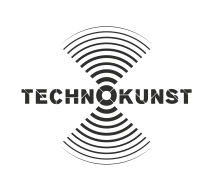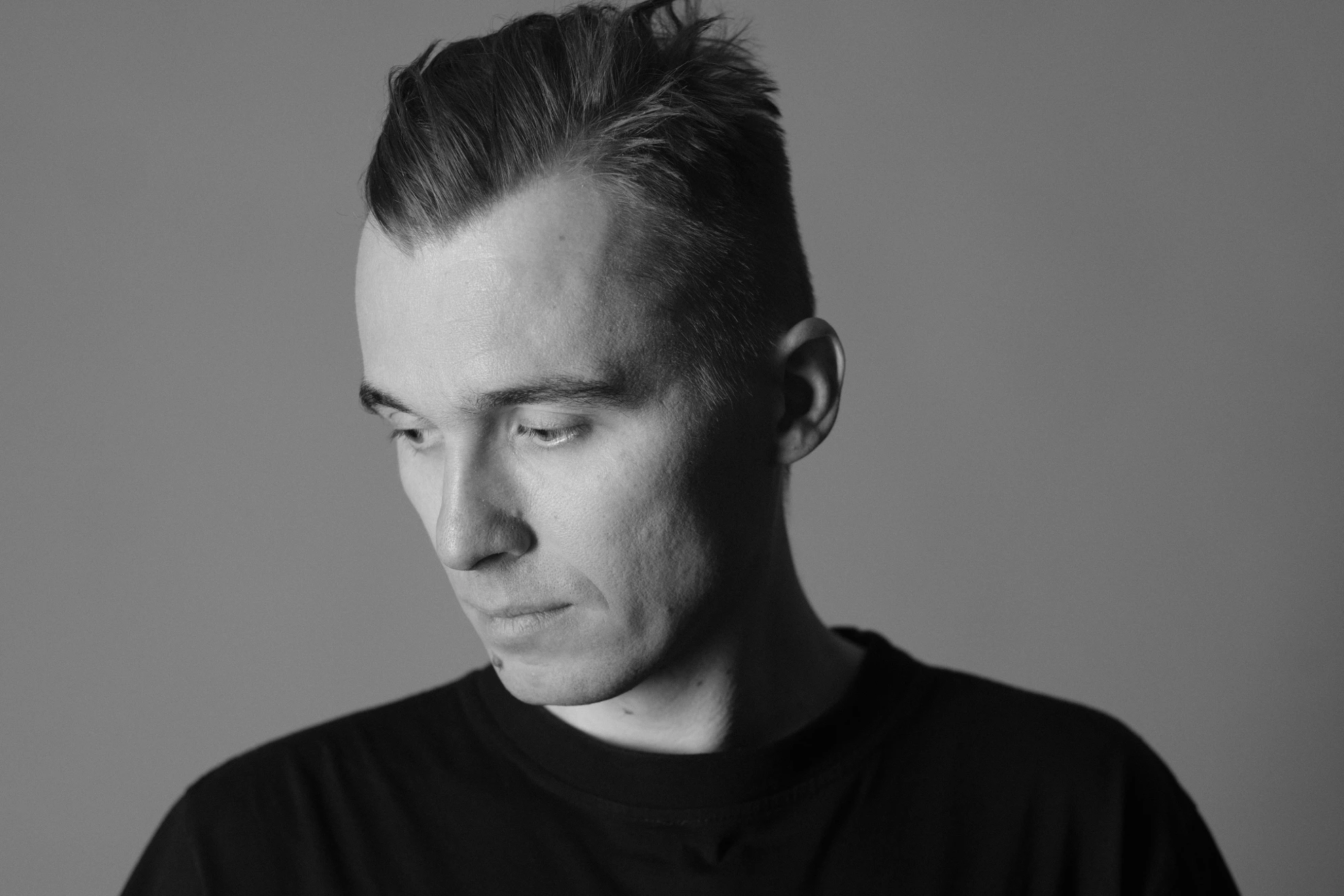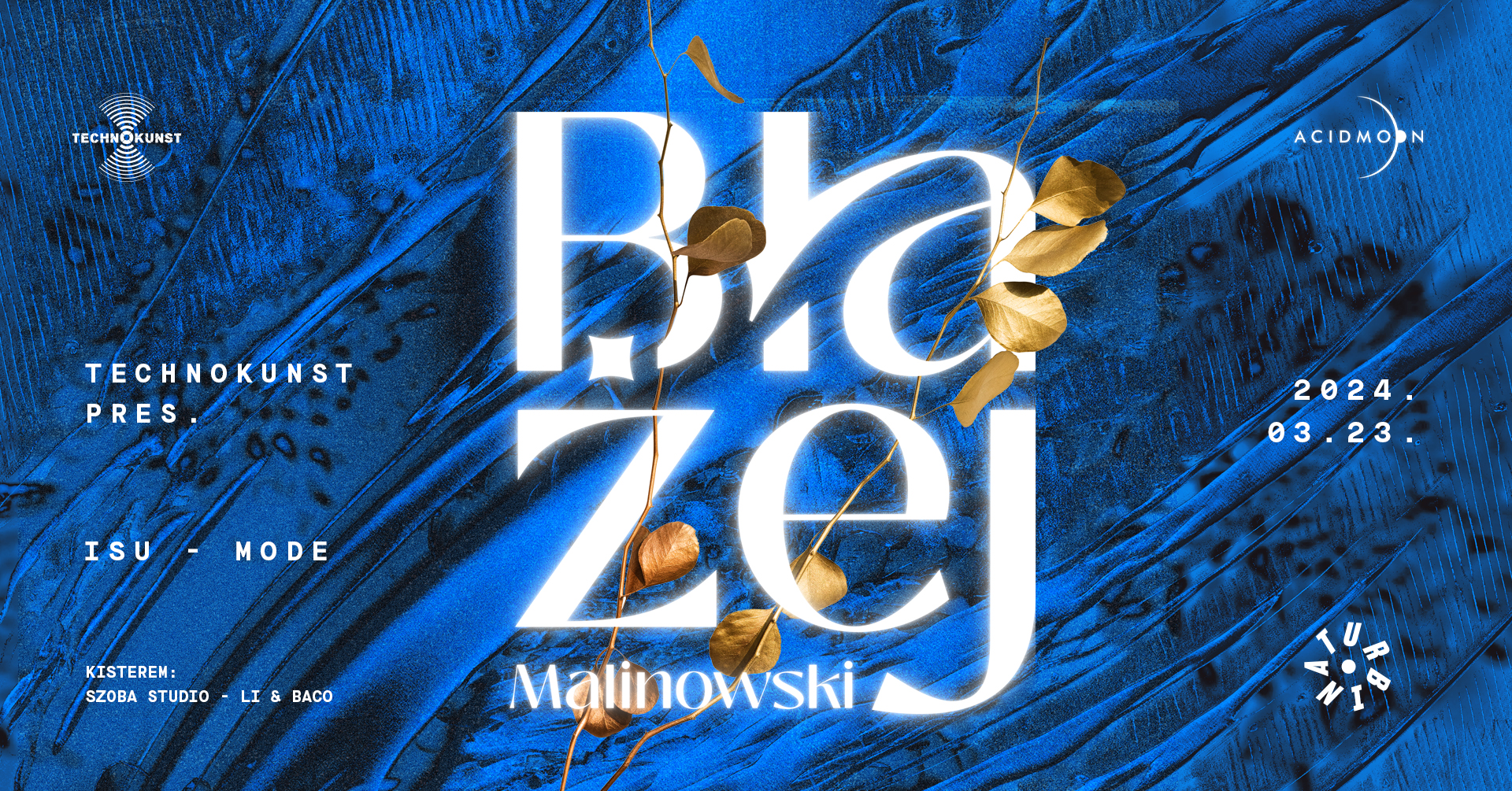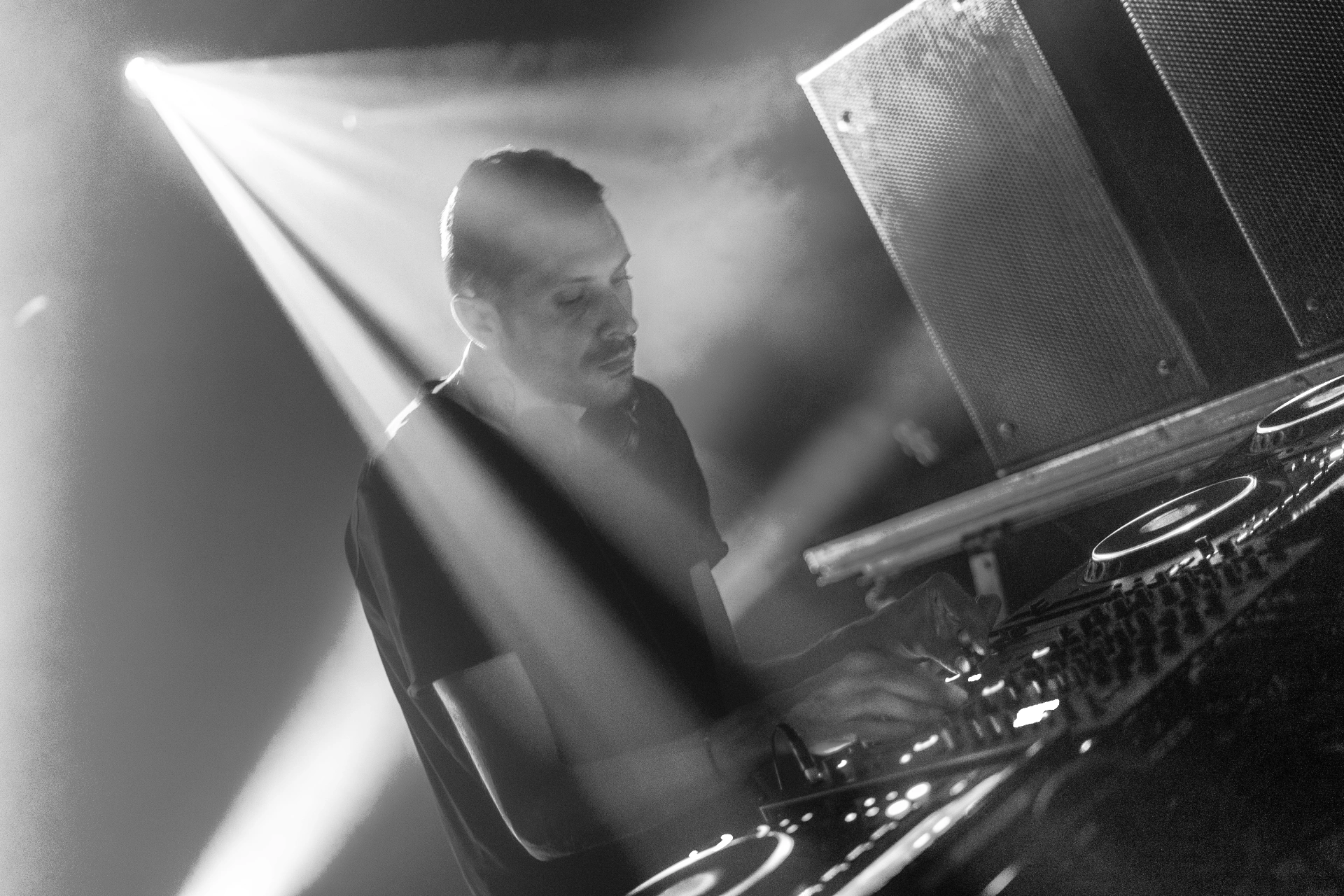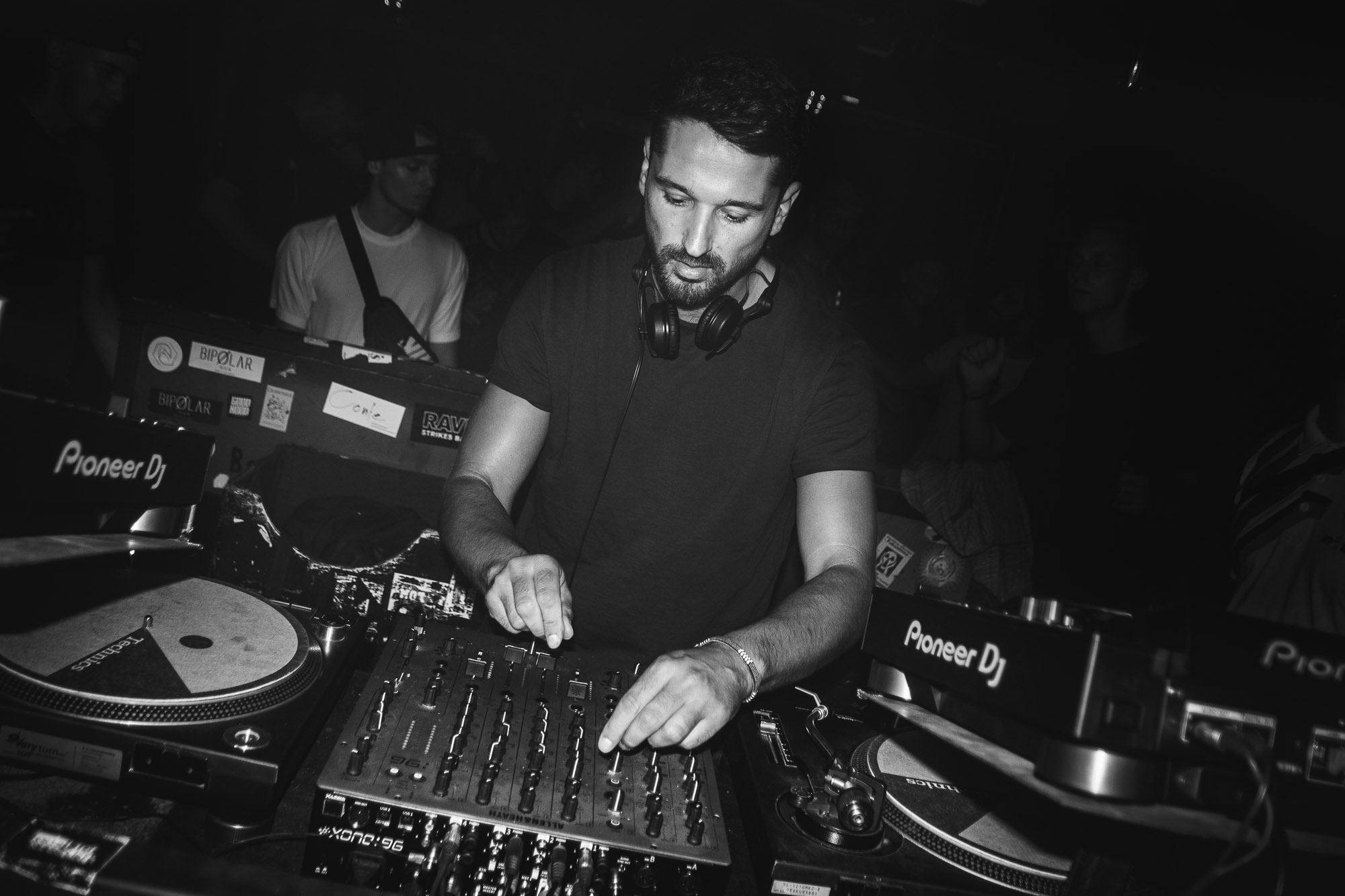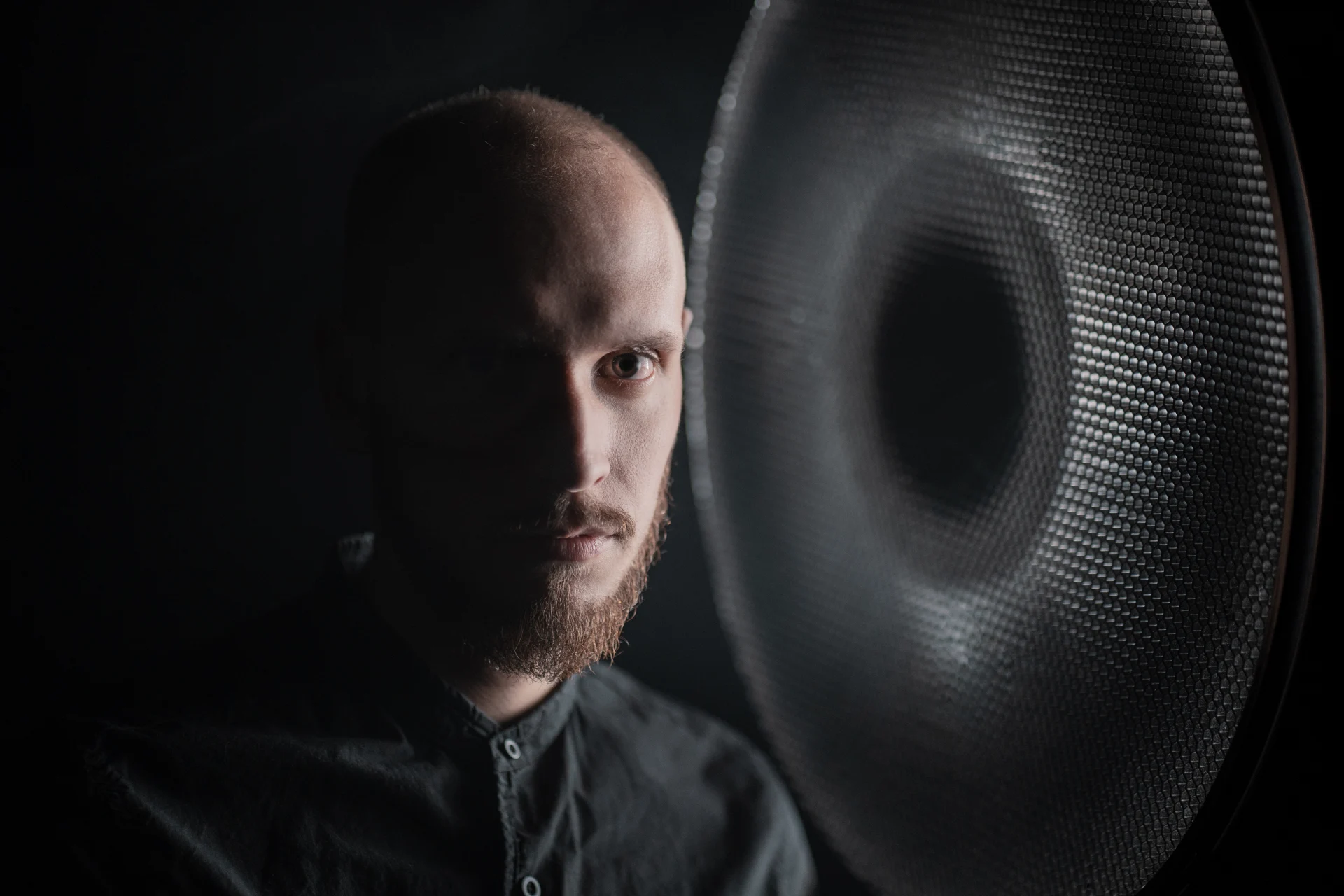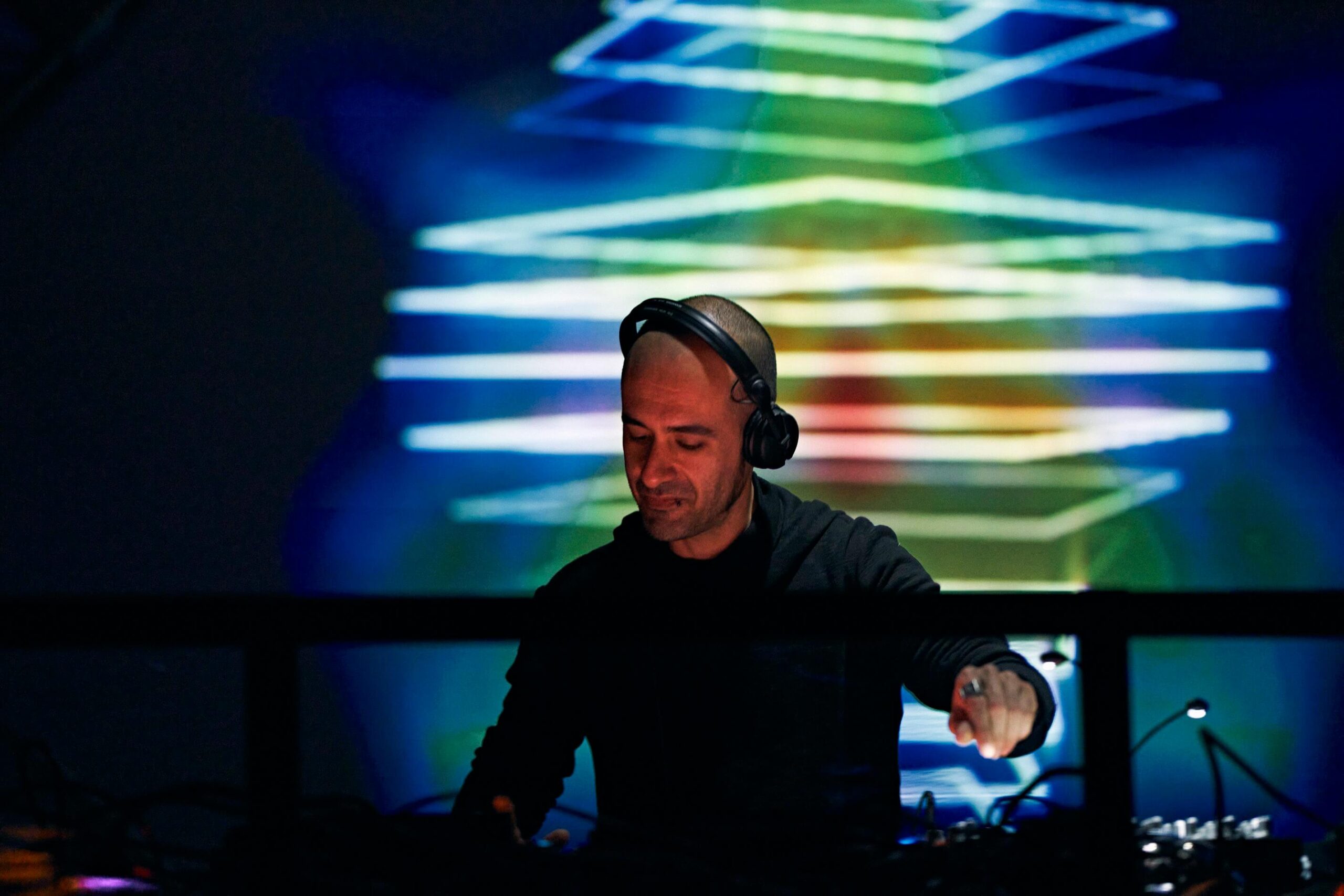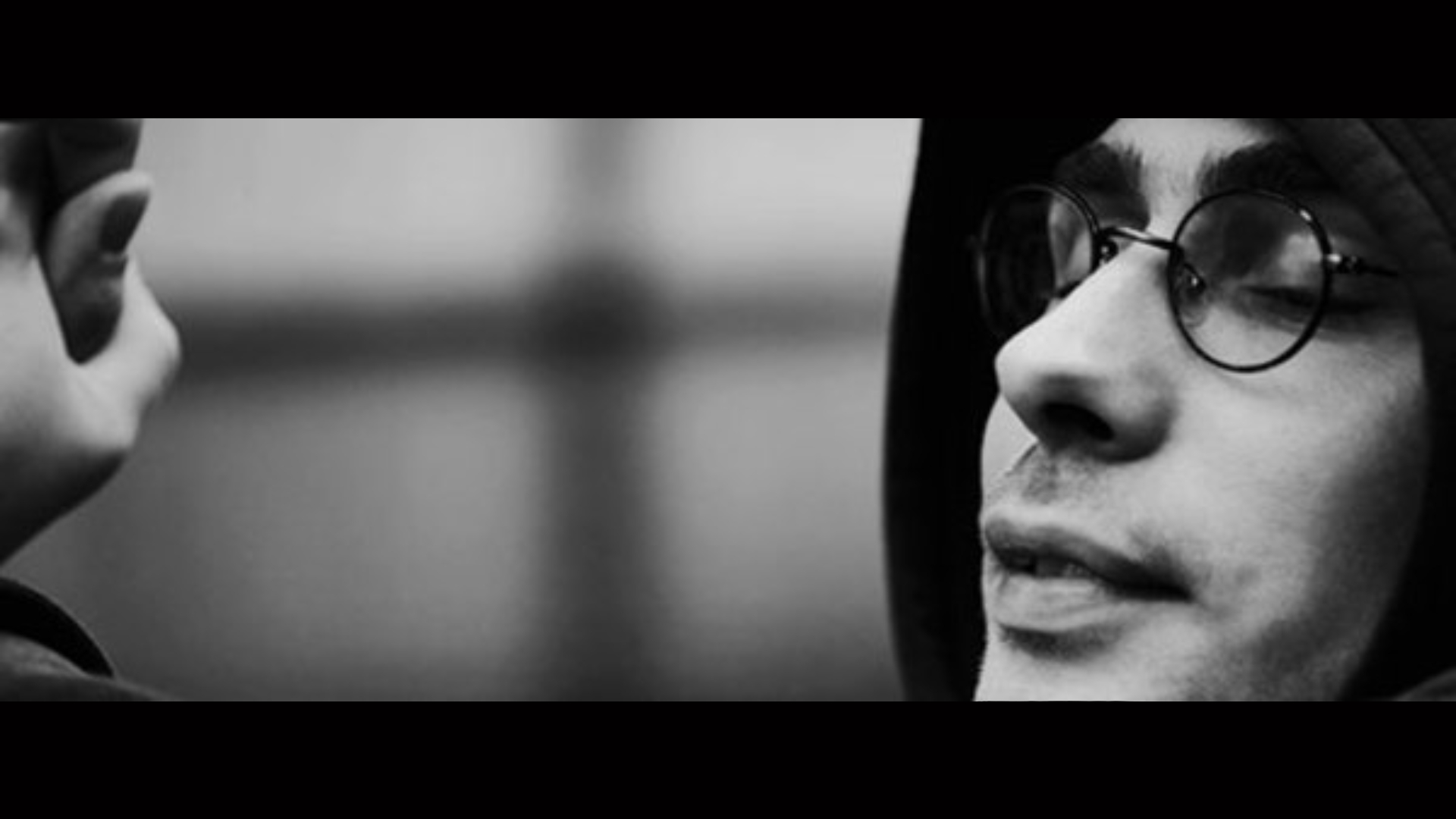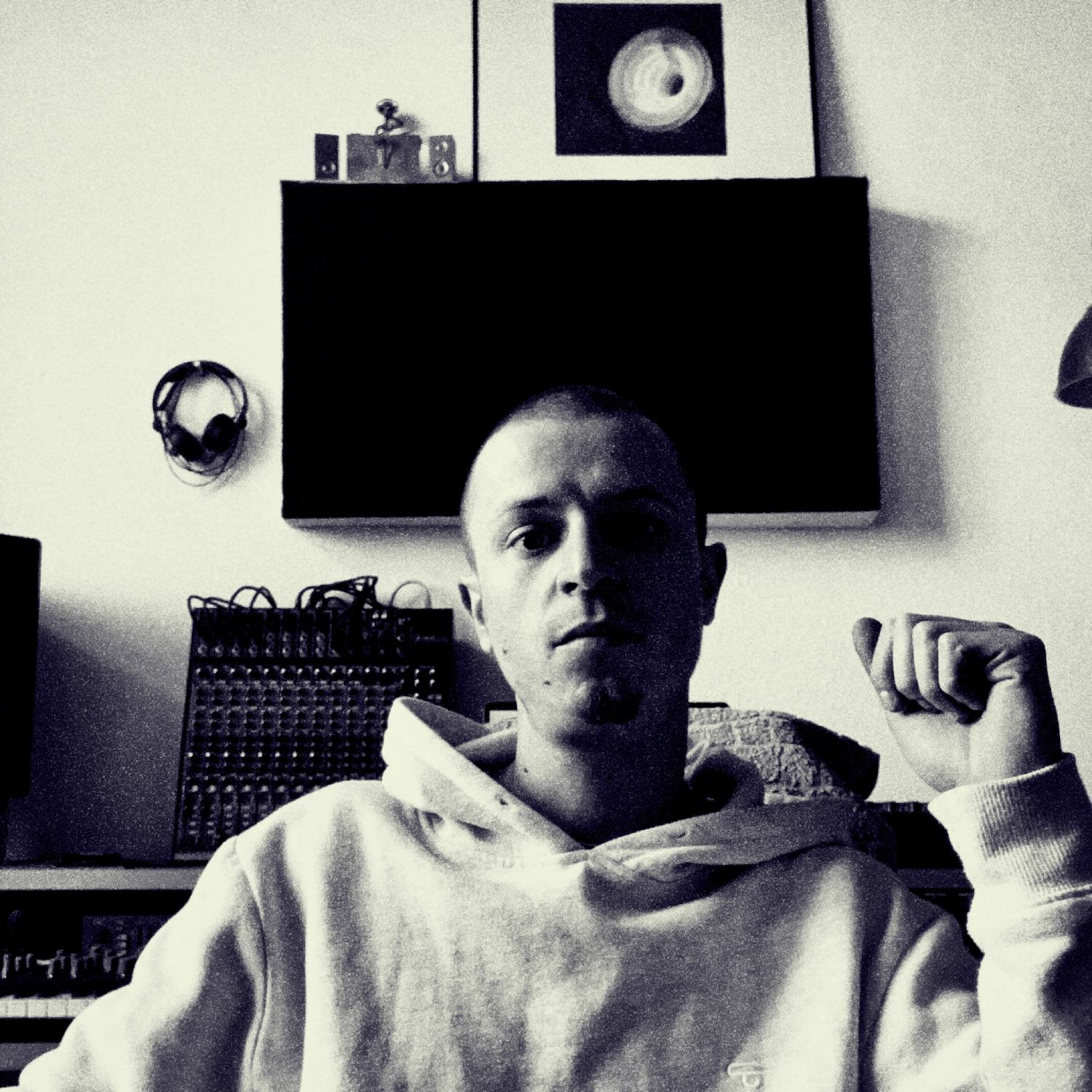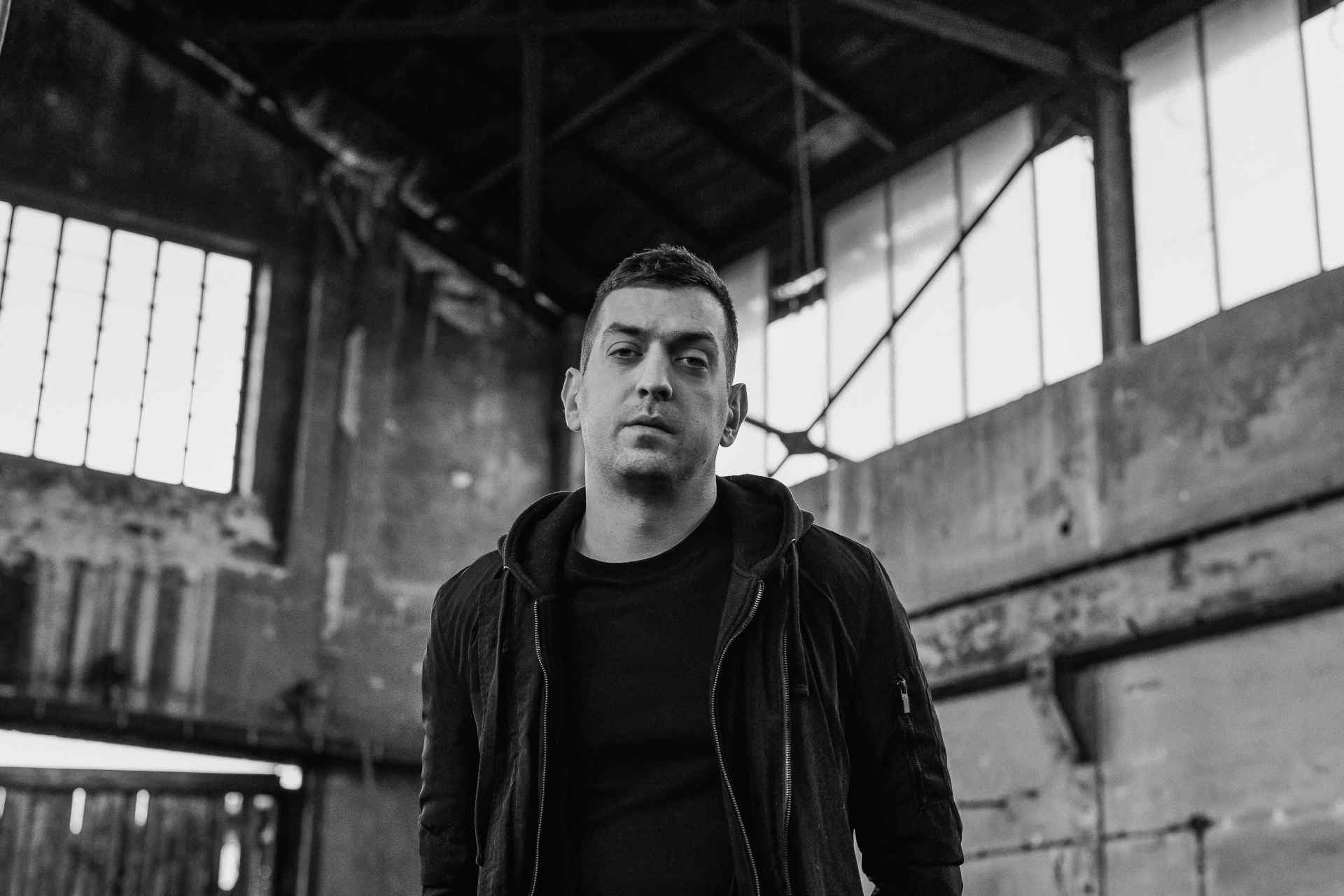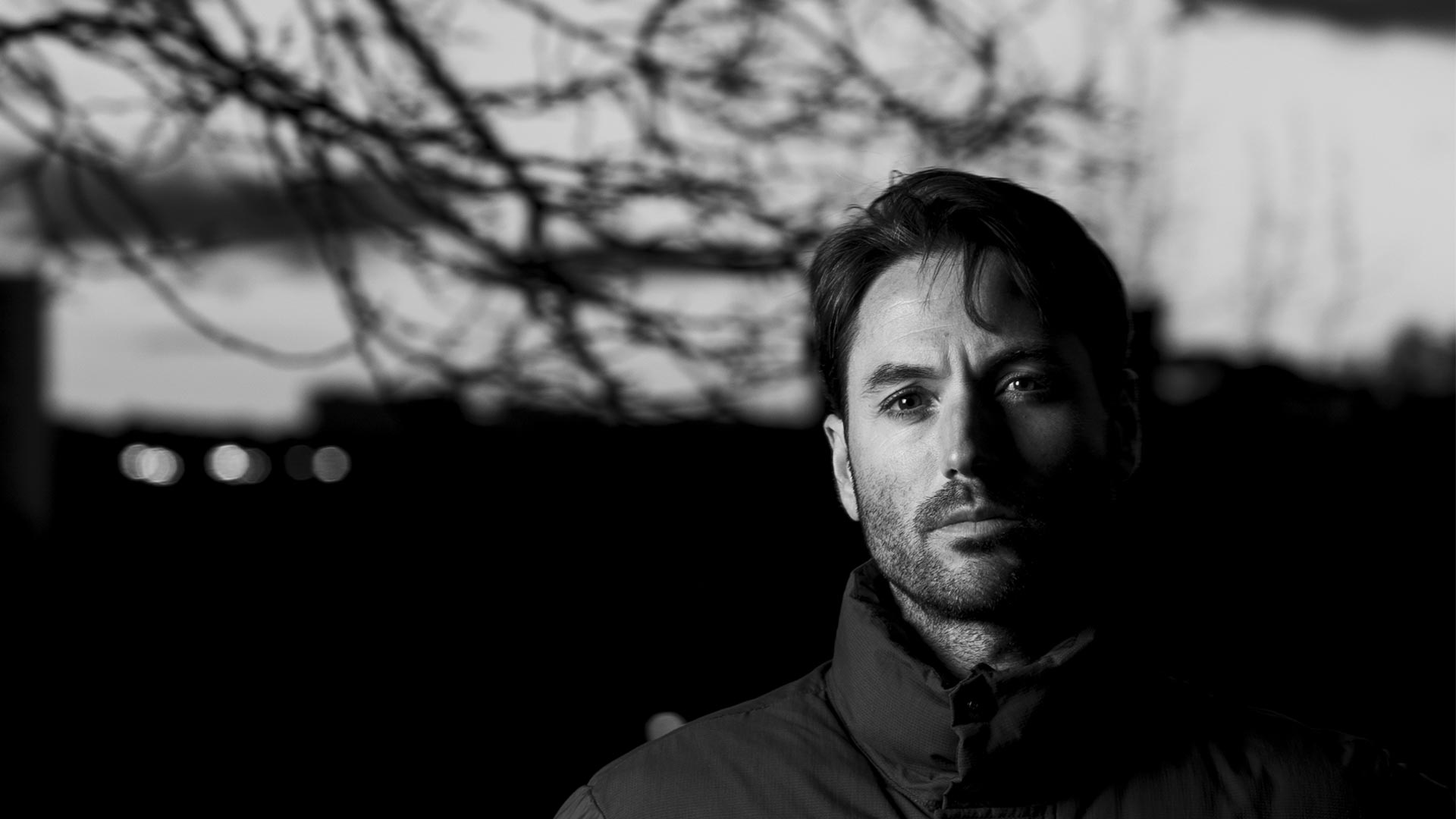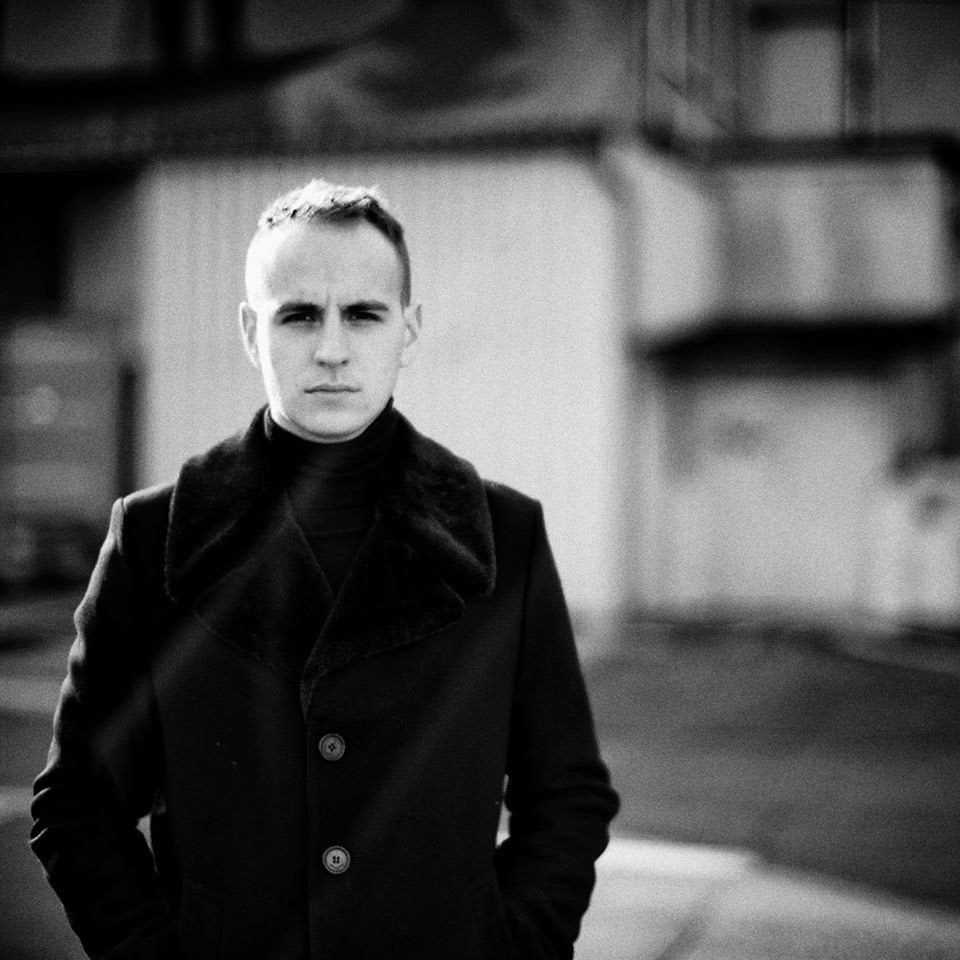Technokunst Asks: Blazej Malinowski
Hey Blazej, thanks so much for being available for this interview. How is 2024 shaping up for you, and how has the previous year been?
Thank you for having me both here for this interview and also for the upcoming Technokunst event. Last year was filled with many releases on my part, including a few EP’s and two LP’s: one solo album titled "Between Method and Madness" and another under the new Keen Distress project, which I created together with Robert Matysiak. After spending some weeks trying to figure out what I wanted to do next, I began recording music at a faster pace, which feels both natural and liberating to me. So, I have to say, I feel very good at the moment. Finalising new projects always gives me sense of emotional balance and inner peace.
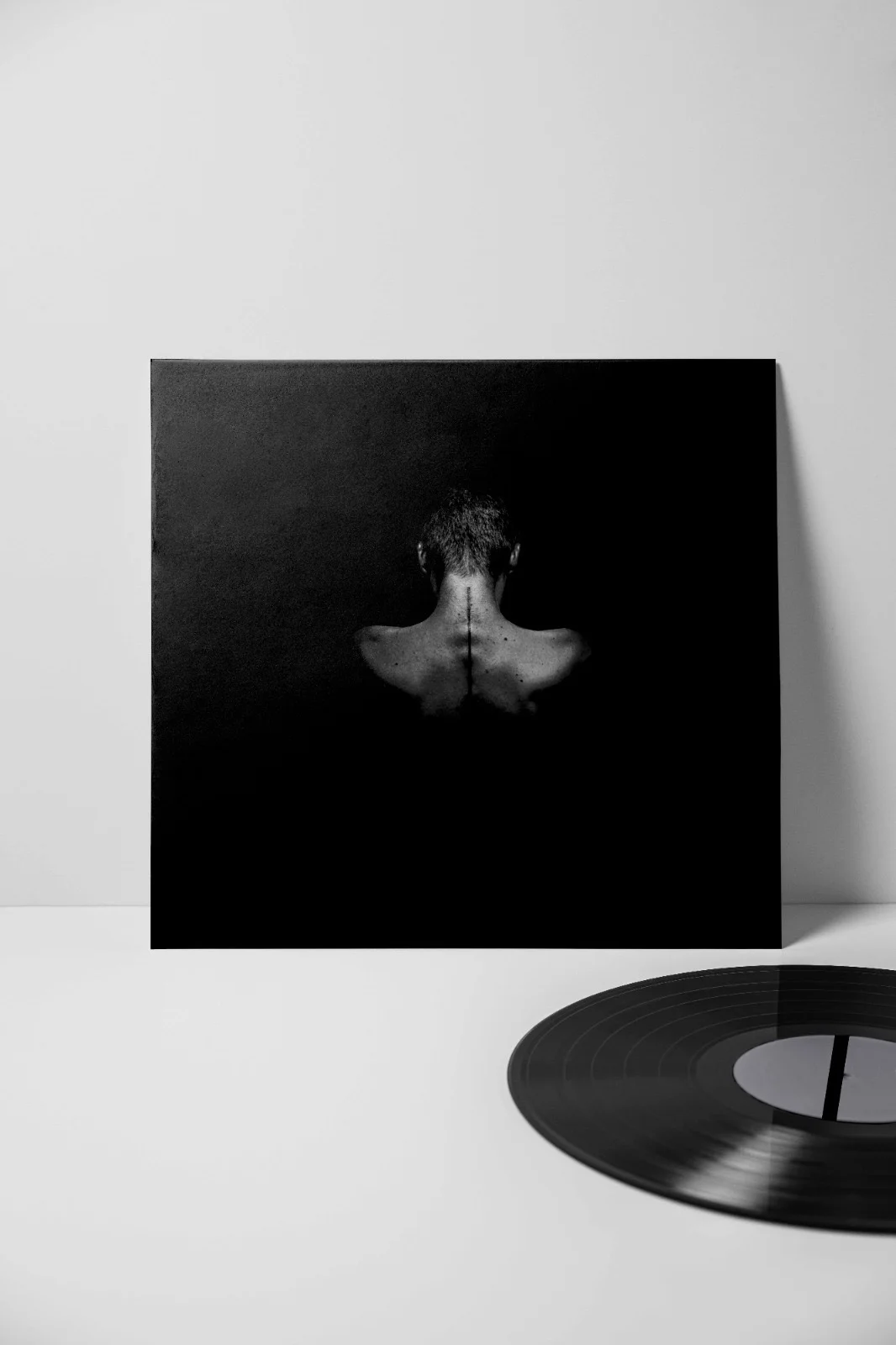
Let’s go back in time a little bit. Growing up in Toruń in Poland, what core childhood memories or experiences first ignited your passion for music, especially hearing about an early fascination of yours with vinyl records?
My earliest memory involving vinyl records and music in general is a vague recollection of listening and dancing with my mom and sister to Stevie Wonder (I still have this record to this day), probably around 1988. The turntable that we had as a family fascinated me from as far back as I can remember, but my love for electronic music and clubs came later in life. I believe it was during my first parties around the age of 17 when I began attending house events in my hometown. Additionally, I listened to a lot of jazz and hip-hop music. After moving to Warsaw two years later, I discovered proper venues and vinyl shops, and that's when my passion for it really took off. Since then, I've been trying to figure out how to get started. I made the decision to go to the USA to work there for five months, taking up part-time jobs including sandwich-making, among others. After two months, I could afford my own turntables, and I've had them ever since. It's hard to believe, but it will be 20 years in August since that moment.
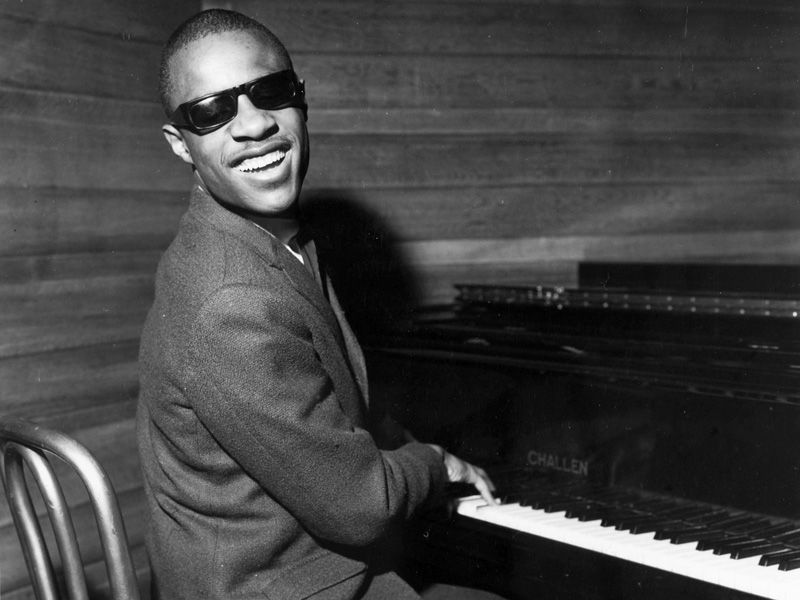
You have spent some time in the USA. How did this experience influence your taste in Techno or music in general?
As I mentioned, my short stay in the USA revolved around working and earning money for my own turntables. Towards the end of my stay, I was fortunate enough to visit the Amoeba Music store in San Francisco (I'm pretty sure it is still there). I remember being incredibly impressed by the vast collection of new and second-hand vinyl records all in one place. I ended up purchasing around 50 records spanning many genres, including music from Jeff Mills, Mix Master Mike, DJ Premier, Charlie Parker, among others. While I already had some records at home, this experience marked a shift in how I thought about my collection, and upon returning to Warsaw, I began focusing more consciously on techno releases and music in general.
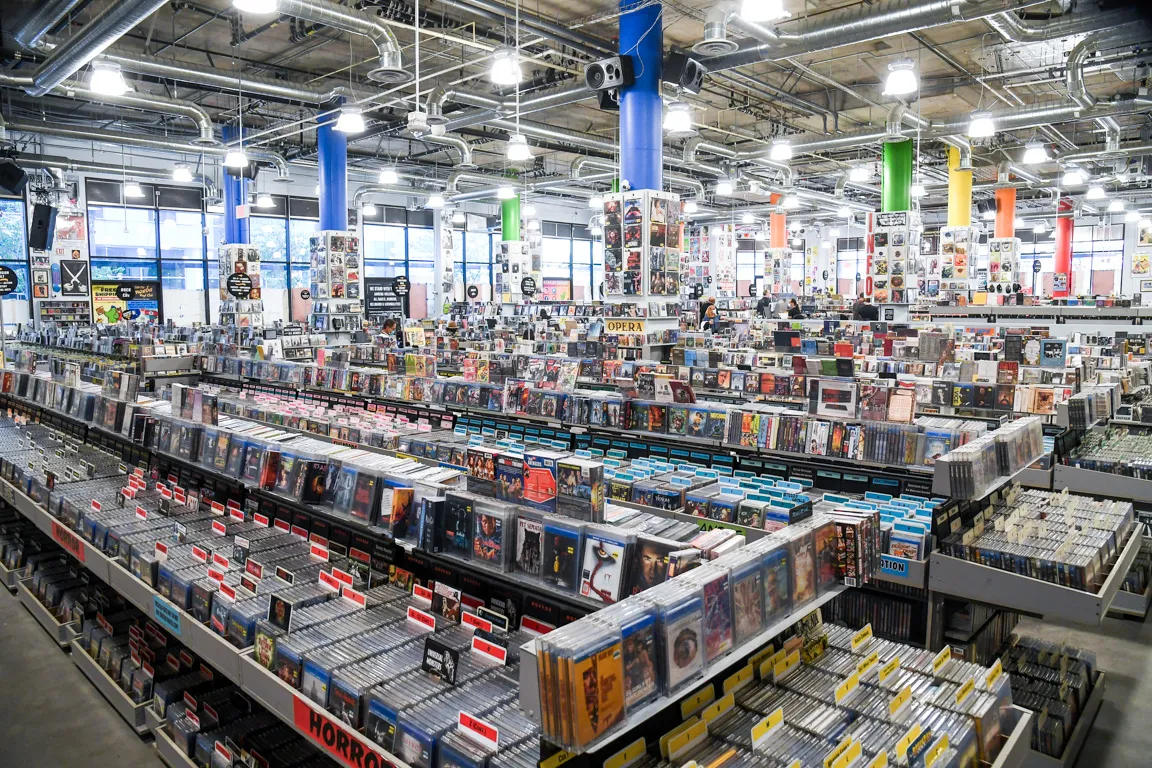
It is always hard to put feelings around music into words, but could you try to summarize why Techno as a genre works for you?
For me personally, Techno has always been and continues to be incredibly open in terms of sonic explorations. It never confines itself to being merely danceable or functional music. In my view, Techno encompasses a broad spectrum of emotions that resonate with various minds, whether at home or in clubs. That's why it remains so fascinating to me to this day and continues to surprise me on a daily basis, although you need to know where to look for it…
How is the Techno scene in Poland? Is there interference from the government and is politics embedded in the scene, like it traditionally has been in Berlin or more recently in Tbilisi for instance? Have you seen any interference in night life from political leadership in the past years?
In Poland the government is not interfering that much but at the same time it’s not very supportive especially with smaller projects. With bigger festivals it’s much easier to get the funding from the city but in general scene is build from the ground up with the huge effort from promoters, clubs and artists themselves.
You’ve been based in Berlin for some time now. Arguably it has been the best location for Techno in the past years, how are you finding your footing there?
I moved to Berlin with my family 8.5 years ago, and back then, it was incredibly refreshing to experience how things worked in the city's music industry. Fortunately, after a while, I began playing regularly in clubs here, and now I can easily call Berlin my home. When I relocated, my daughter was only 6 months old, so I discovered the city from a very different perspective. I've always prioritised my studio work, being a good father, and a partner. That's why I quickly realised that Berlin has much more to offer than just parties.
I have to say, I still enjoy it a lot!
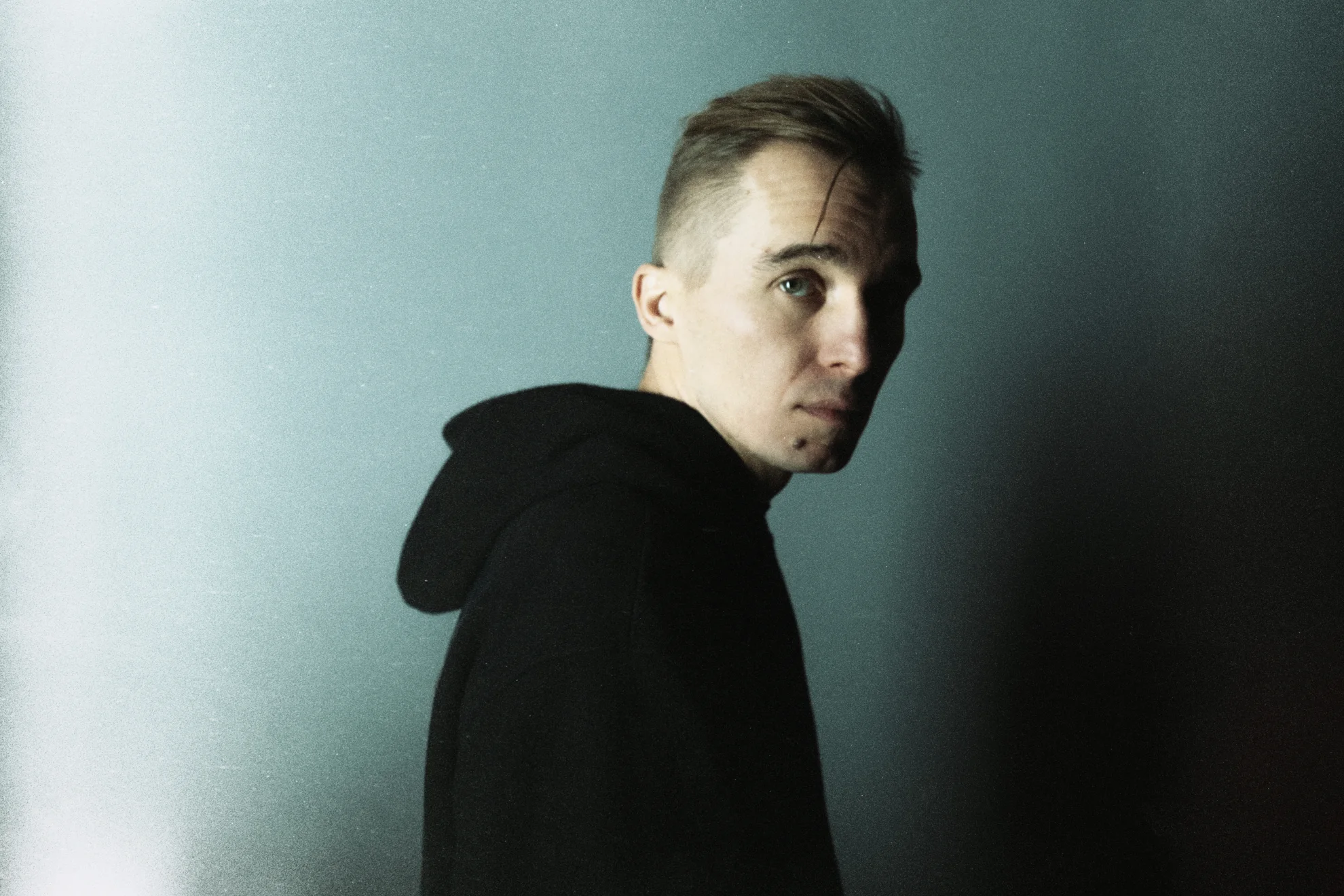
You have worked as a radio host, a label curator, a producer, a DJ and a promoter. Which role is closest to your heart and why?
Creating music will always be my main focus. It gives me drive to make everything else you mentioned. Of course it is all linked, without gigs we, as artists, can loose a connection and those special moments of sharing the music with the crowd, meeting like-minded people, and enjoying the music together. My journey with radio was quite extensive, spanning 12 years and exactly 600 shows on Radio Kampus (together with Michał Wolski). It was a beautiful experience to freely play music every Sunday, inviting artists to perform and discuss their work outside of the club environment. Creating a label was always a dream of mine, and now I could not imagine my life without it. Since I've been promoting my own events for years, it was more than natural to make them under Inner Tension name as well. As I mentioned it’s all connected and it complements each other. Working on all these aspects brings me a lot of satisfaction, yet playing in front of people energizes me enormously, and I simply love every aspect of it.
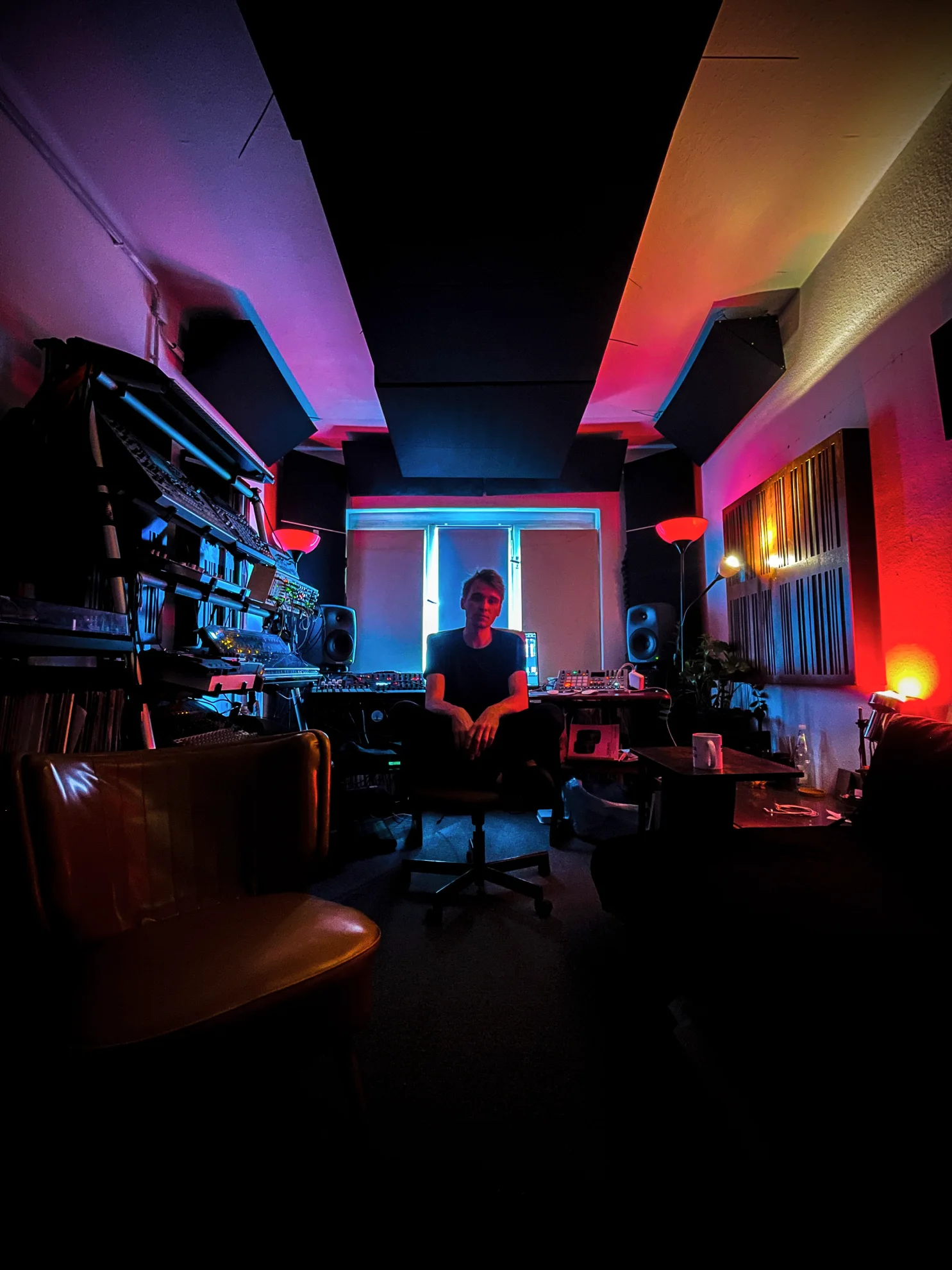
You have released on some great labels out there, including Semantica, The Gods Planet, Kvalia Records or Monday Off. You seem to be the type of person that likes to collaborate. Is there a trick to how you approach working with labels?
At the very beginning, I was quite closed off to collaboration, but now it provides me with a lot of inspiration. I never compromise my own vision, but engaging with other artists in my workflow can lead to unexpected and beautiful results. That is more on collaborating on a personal level. With certain labels, besides music, I've been able to build a specific trust, so working could feel natural. Particularly after the first record for a certain label, I can easily predict what I would like to create next. In a world where most things are consumed very quickly, I can create music that fits both the curation and my personal view on music. I have always valued those long-term connections and friendships built on a shared love for specific music, yet without expectations on both sides.
We just had an amazing event before the New Year with a good friend of yours, Claudio PRC. Have you known each other for a long time? You’ve released music together on his label, 012.
On April 26th, it will be exactly 10 years since we first met each other. Since that moment, we've shared a very special bond, upon which we've built a friendship and mutual support. Claudio is one of the kindest people I've met in the scene since the beginning of my music journey, and I'm happy to say I can call him my friend. Besides collaborating on releases like 012, we've also released music on Semantica and my own label. He will always have my respect as an artist, but most importantly, as a human being.
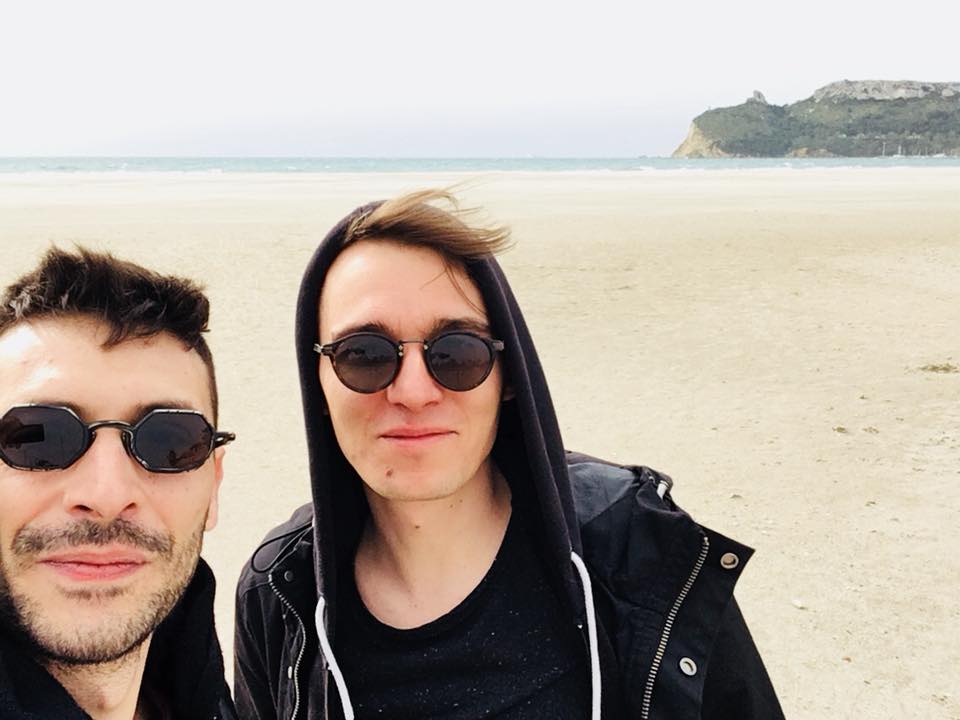
Speaking of Claudio, I’m sure you had plenty of friends play for Technokunst in Budapest already. Do you ever talk shop about promoters like us and share some insider info with each other?
It happens, especially when we go somewhere for the first time, we often exchange thoughts about the venues and events.
With Technokunst was the same although I’ve seen what you are doing on daily basis so I’m pretty sure that it would be a very special night and did not ask around that much :)
I need to add that I always wanted to play at your event and can’t be more excited and ready to experience it!
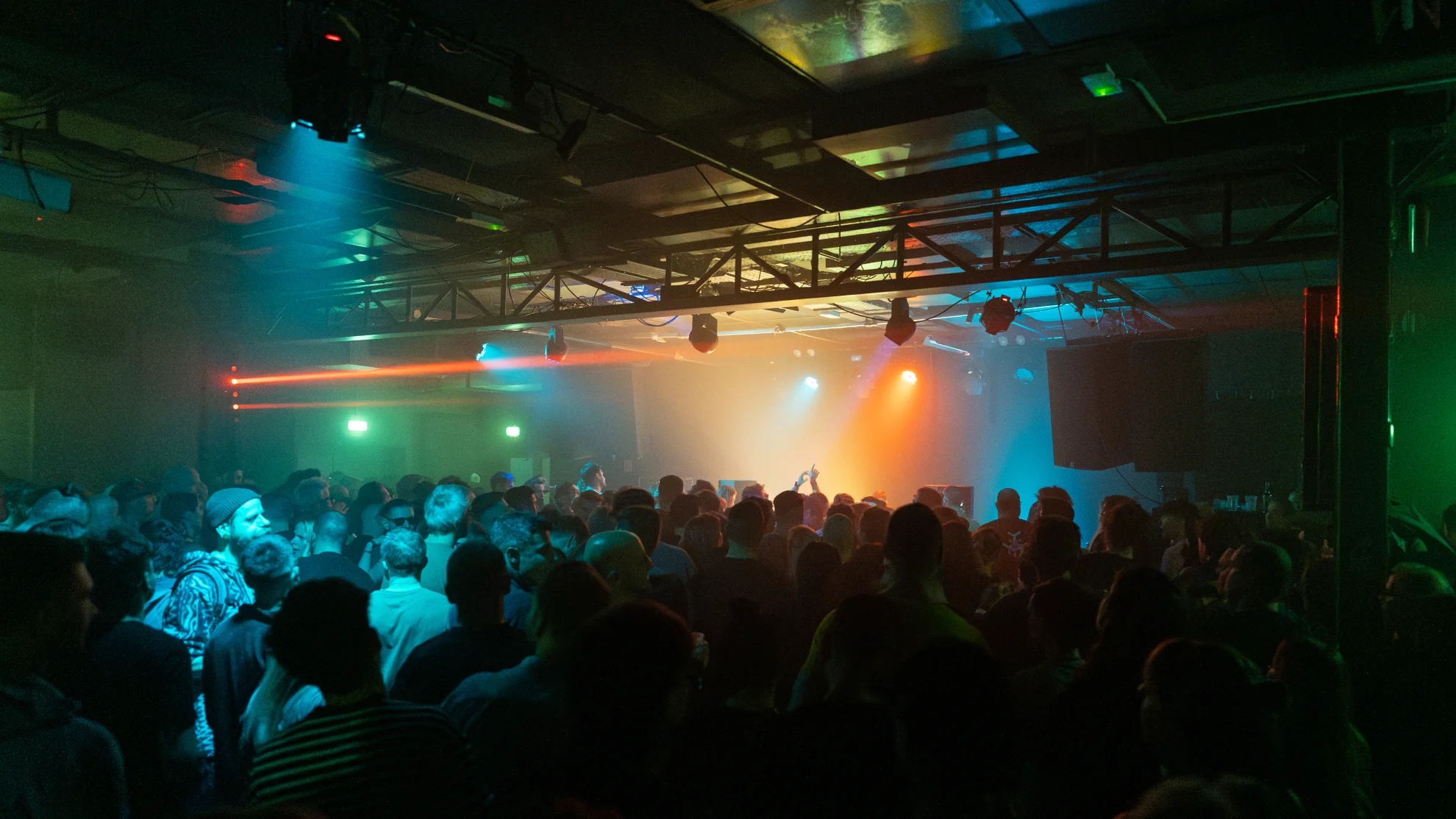
We have pleasant memories of your set at Alkototabor in 2021. What changed since in terms of the type of sound and sets that you play?
It always depends on the party, sometimes it might a bit more intense but not in terms of bpm’s but more in layering and tracks themselves. The core still is the same and it’s about the unspoken connection that can be created between the crowd and myself.
Deep yet danceable.
Also in 2021, you have launched your own label, Inner Tension. This seems like a significant point in your life as an artist. What was your vision for it and how do you curate the output?
Inner Tension is a direct reflection of my taste in music, and as I mentioned, it was my dream to curate my own label on my own terms. Like my own music, each release has to feel right at that specific moment. Initially, I focused more on my own productions, but currently, I'm finalising the first major VA release featuring very inspirational artists I know. Many of them I met or discovered while touring, and I'm extremely excited to bring them into the label.
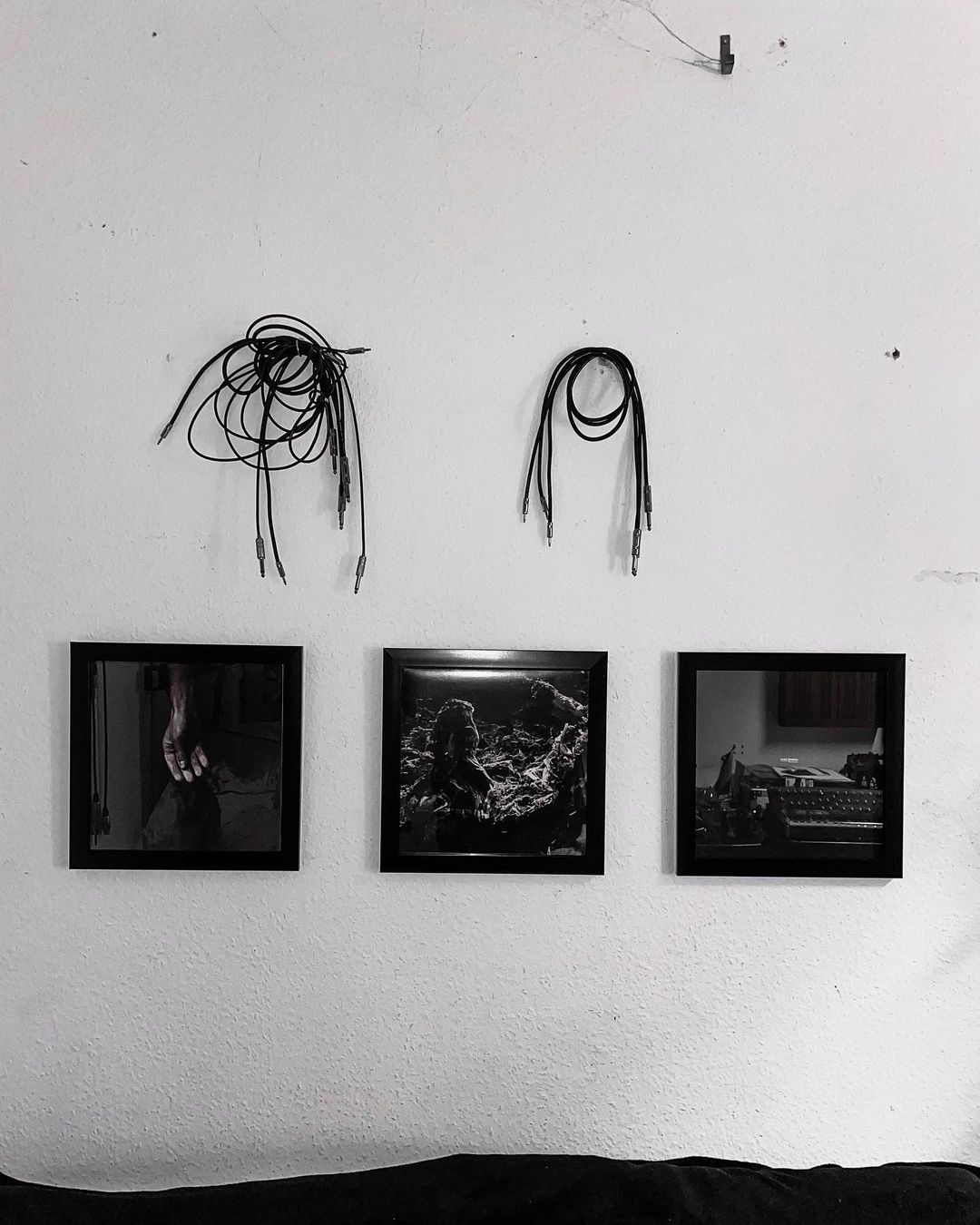
Can you tell us a little bit about your ‘Why So Silent?’ project? How did this concept come about, and do you have any plans for future events? Are you doing any other type of work as a promoter in your home country or in Berlin?
The Why So Silent? project is currently on the back burner, but I'm trying to organise at least one event a year. To date, I've hosted 44 events under this concept. It involves a unique fusion of live electronic music and experimental silent movies. From the beginning, I've been drawn to the idea of inspiring my guests to prepare live or DJ Sets to specific titles, and I must say it has attracted many people, especially in Warsaw, where I've held most of the events.
Talking about production - in terms of studio work, what are your favourite tools for creating music and preparing live sets? How do you choose between hardware and digital instruments? Care to show some bits of your studio?
To be honest, I completely stopped thinking about it. Over the years, I've collected many hardware instruments along with digital ones. When it comes to my DJ sets, I've played with both vinyl and digital formats. For my music creations and live performances, I've used both hardware instruments and Ableton. Ultimately, I choose what feels right in the moment especially in terms of studio and working on my own music.
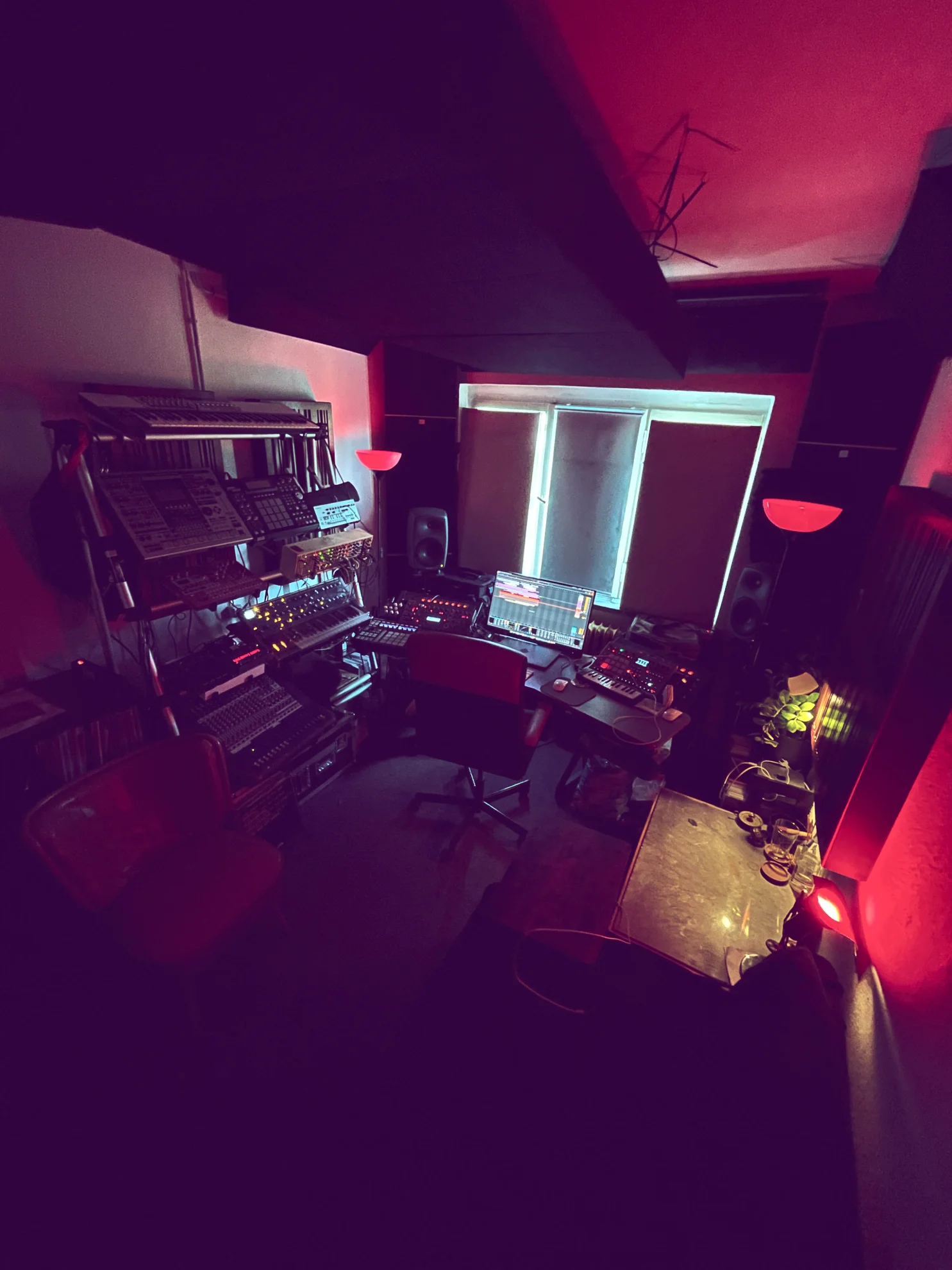
How do you balance hypnotism and “deepness” with usability in a club environment, and how do you change the priority of these aspects? Where do you think is the deeper sound of Techno headed?
Personally, I would describe it as “focused”. Being on the dance floor or in the studio completely immersed in sound. For me, that is the key to everything, regardless of the words used to describe it.
How is 2024 looking from the perspective of scheduled releases?
I'm currently working on a big project, and I have a very specific plan for the next chapter. However, as usual, I prefer to focus on sharing the things that are right in front of me rather than discussing the things that are still in the making.
Still working. Still creating. Still caring.
Thank you.
Blazej Malinowski.
Technokunst Asks: Claudio Prc
Hi Claudio, thank you for being available for this interview and for our questions! Instead of immediately jumping into the middle of it, we usually start our interviews by touching on how the artist has gotten to where they are now. Can you tell us a little bit about your upbringing in Sardinia, and how you came in contact with electronic music and specifically Techno?
Hi guys, thanks for having me with you! Well, I am coming from a small town in Sardinia, during my college years I started going to several clubs around my area, as well as to record shops, where I really came into contact with the first Detroit, Berlin and Roman techno records. At the time there were many events of different genres that regularly hosted international guests, I mainly attended the techno ones, where I proposed myself as a DJ at the age of 18 more or less, from there I began my adventure as a DJ, then further as producer. The electronic music scene on the island has always been quite active and a source of great inspiration.
How do you remember your time at the Music Conservatory in Cagliari? Have you had other interests in areas of art, particularly painting or graffiti?
It has been a time that made me grow and connect with great people, teachers and colleagues. I learned many things especially on a conceptual level which helped me to have a broad vision of music. I’ve been into graffiti during the teenage age, it was my first passion let’s say. I like art so much, any kind, it inspire me when I play with sounds.
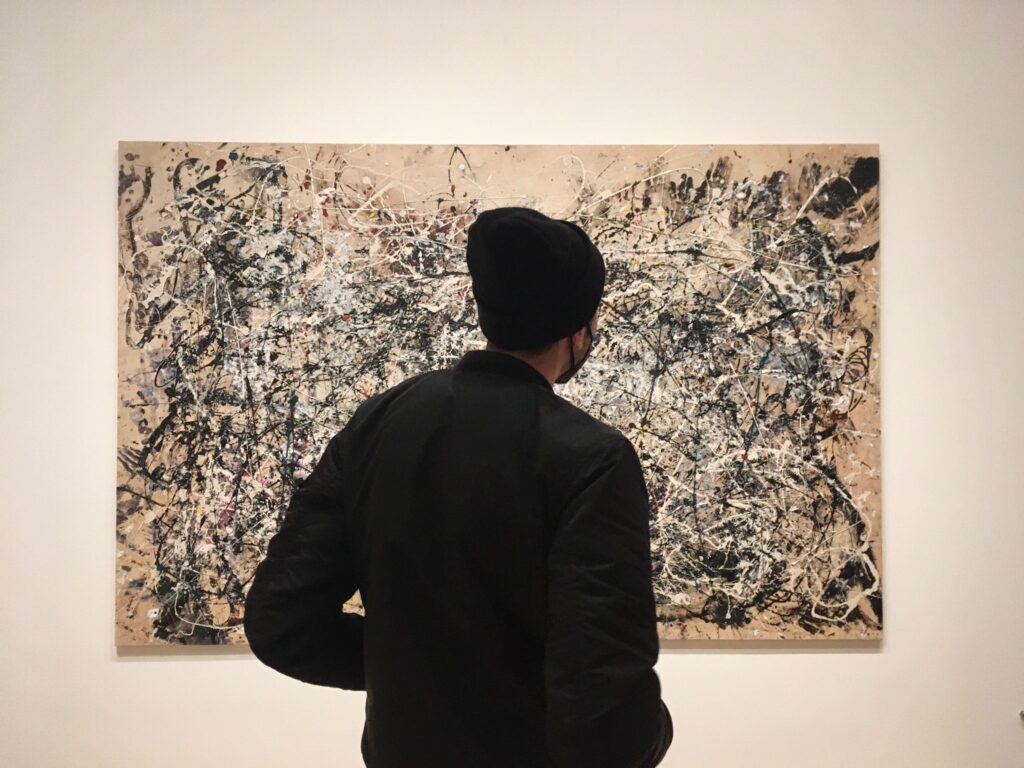
In an earlier interview, you mentioned, that Techno from Detroit, particularly the work of Richie Hawtin and Robert Hood, has left a lasting impact on your music. Do you feel the same way now in Berlin? Are there artists in the scene that influence you the way the Detroit greats have done back in the day?
Of course, these artists you mentioned keep to inspire me till today. The points of reference that carry the scene forward and that are examples to follow are always there, it depends on which path we want to follow, I keep to have mine as I always have. I am influenced by many things and in Berlin there is always a lot of stuff going on where to get inspired.
How about your fellow Italian colleagues, Donato Dozzy, Brando Lupi, Dino Sabatini, Giorgio
Gigli or Gianluca Meloni? What did you think when you heard the deep sound that they released
in the early 2000s?
Exactly them, they have been and always keep to be an artistic and stylistic point of reference for me regarding that type of sound. When I heard their music for the first time I found the right direction and the right compromise between different hypnotic and deep styles that matched well with my taste and vision of techno. It was something very special that then evolved over time up to today.
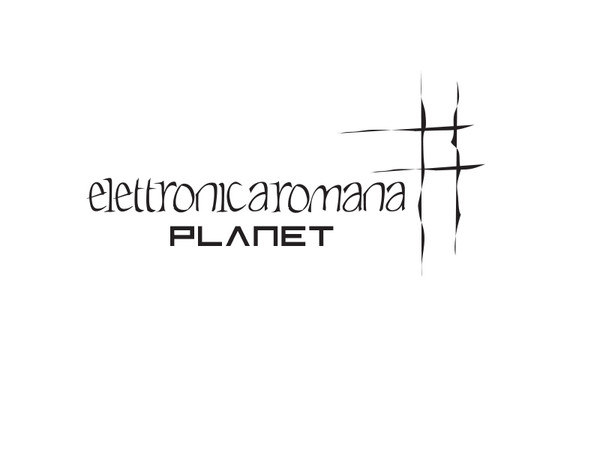
Where do you think this Deep Techno sound might be headed in the coming years?
It's really hard to predict to be honest. Music changes so rapidly now, the deep techno sound can still have a wide interpretation and above all an evolution that can adapt to the current times we are living in. The perception that artists and people have regarding a "deep" sound is really subjective because the techno music scene is really wide now. In reference to this sound, as far as I'm concerned, I see that there is always a good interest in what I do as well as I see that there are many artists who match perfectly with the musical line I am following.
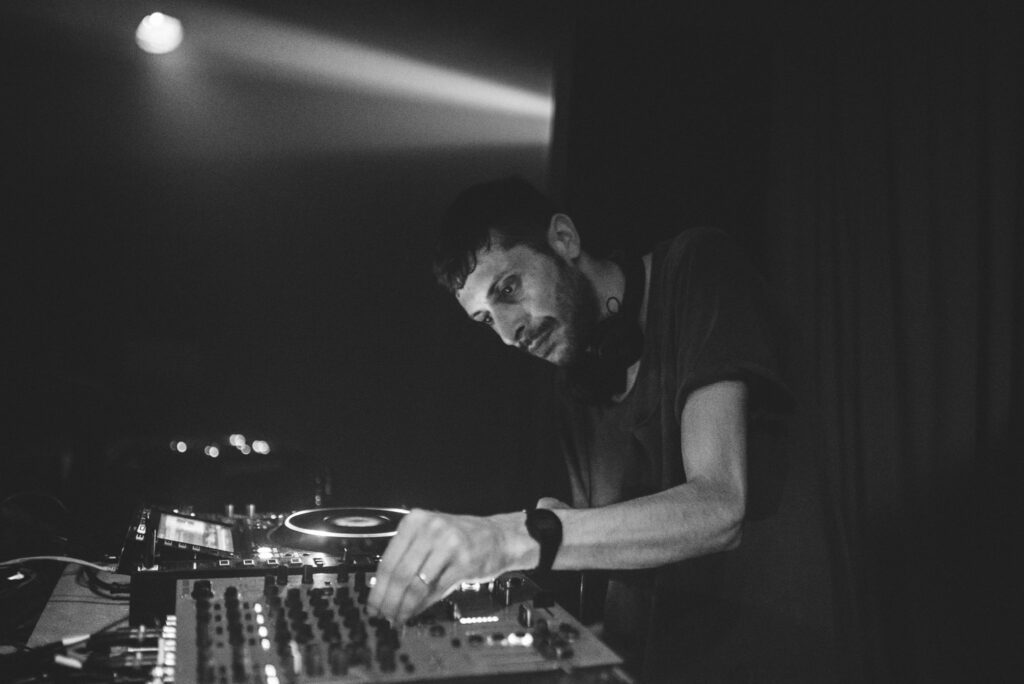
Your three albums, ‘Inner State’, ‘Volumi Dinamici’, and ‘012’ represent distinct chapters in your musical evolution. How do these albums reflect your personal and artistic growth, both technically and conceptually?
These albums, together with the latest ambient LP "Unda", represent the technical and conceptual evolution of my vision of electronic music, chapters that summarize my experiments in the field of techno and ambient/experimental music up to now. They represent the fulcrum of my artistic and spiritual journey.
The quote “Be water, my friend” by Bruce Lee appears in your album “012” Can you tell us how Bruce Lee’s philosophy resonates with your approach to music and life?
It's a philosophy and a great teaching that, when I follow it, helps me approach life in a way where I feel in balance and harmony. Like everyone, I'm surrounded by so many distractions that sometimes it's not easy, but I make sure to always remember it, that's why I wanted to include it in the track.
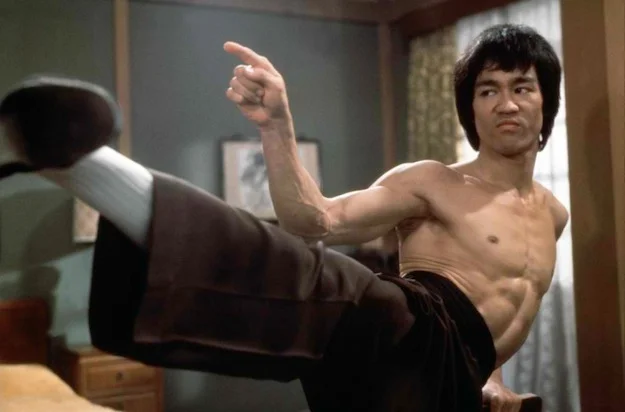
‘012’ as an album seems to have great impact for a second reason, as it turned out to be the name of your record label. But before we get there, can we touch on The Gods Planet just shortly?
The project came to an abrupt end, but we heard some chatter, that you and Ness are in touch again. Is there any chance of collaborative work again?
The Gods Planet project was a beautiful artistic period, a truly very important project, which honestly reached its peak for me when I decided to leave, as many things were changed and for me it was ok to not be part of it anymore. It has been a journey, perhaps it will still be one in a different form, who knows. We are in contact with Andrea, of course, it was nice to reconnect.
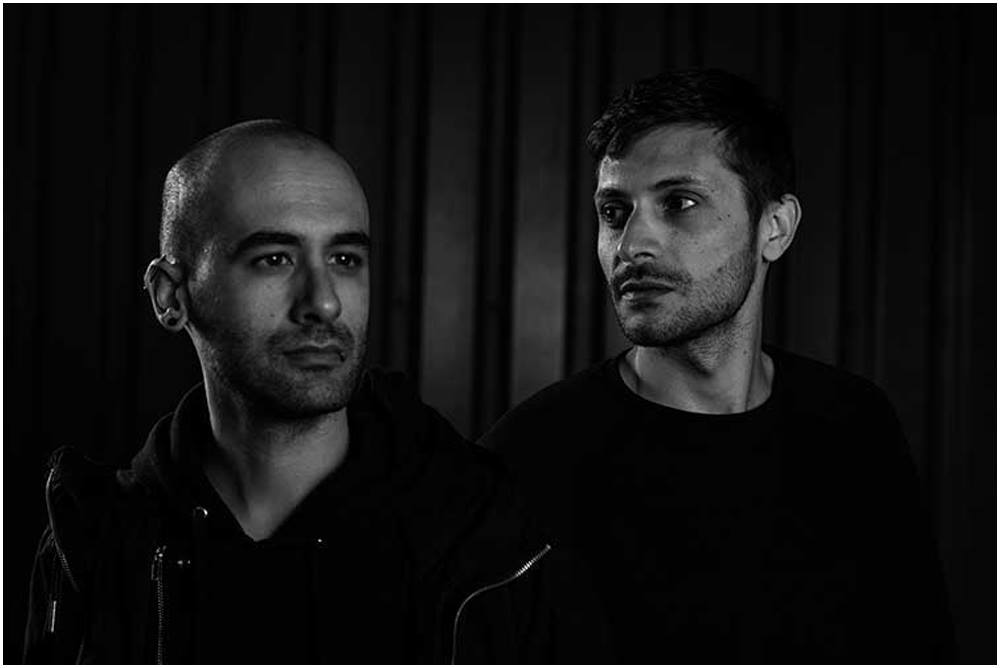
Let’s talk about 012, your own label. We have seen a VA release and an ambient LP from you this year. How do you curate the output, and what are your plans in terms of future releases?
In terms of style and concept I try more to follow the musical line I represent, especially that of the artists who produce the tracks that I mostly play in my DJ sets and who are very close to my type of productions. I try not to plan a lot of releases, I want to leave room for what influences me in a given period, both visually and musically, for collaborations and experimentations with sounds and arts in generally.
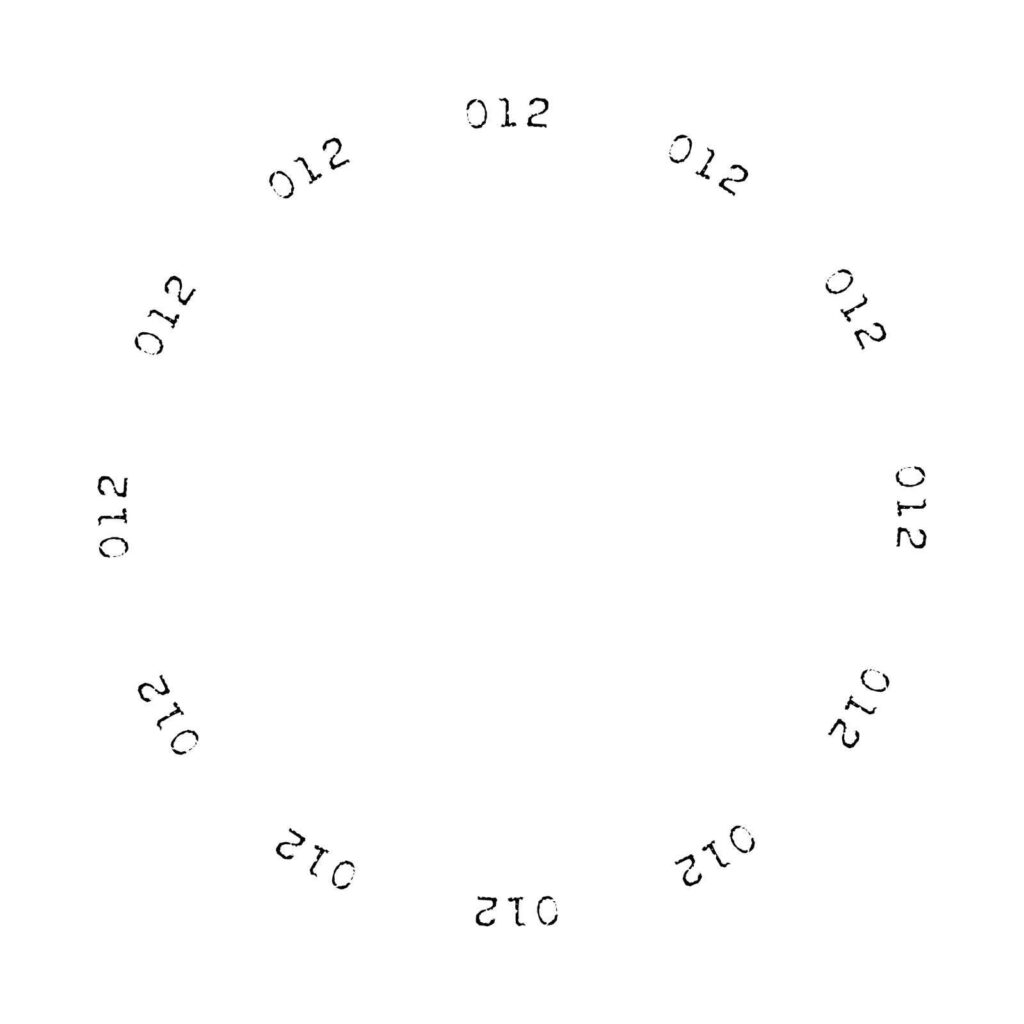
Did you do a lot of field recordings for your recent LP, ‘Unda’? How do you usually approach this, what sounds are you looking for?
I work a lot with field recordings, I like to create special moments, adding and modifying them within my music. For "Unda", a project that is linked to the sea and the waves, I went directly to the beach where I usually go when I return to Sardinia, not far from my home, a place where I grew up and which is a source of great inspiration for me. In general I am attracted by even simple everyday sounds, especially when I'm traveling, and I try to record them and use for my productions.
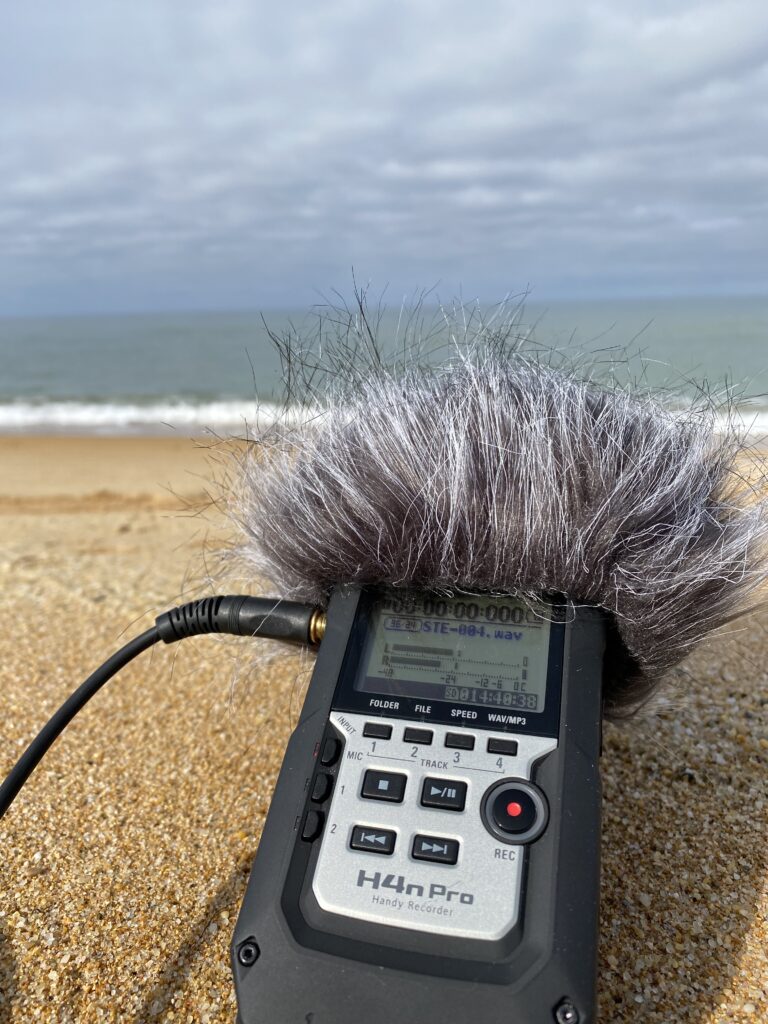
Any chance to share with us some of your production techniques, and how your studio looks like? Do you prefer working with hardware, software, or a combination of both?
I work mostly at home, I have a small corner with a few machines, including synthesizers and drum machines, here I mainly produce my tracks, then I have a small studio shared with other people where I go to mix them. Let's say I use half and half, I don't have much equipment anyway because I like to make full use of what I have at the moment until I feel it's time to change and move on to something else, but it always takes me while to change, both for hardware and digital plug-ins.
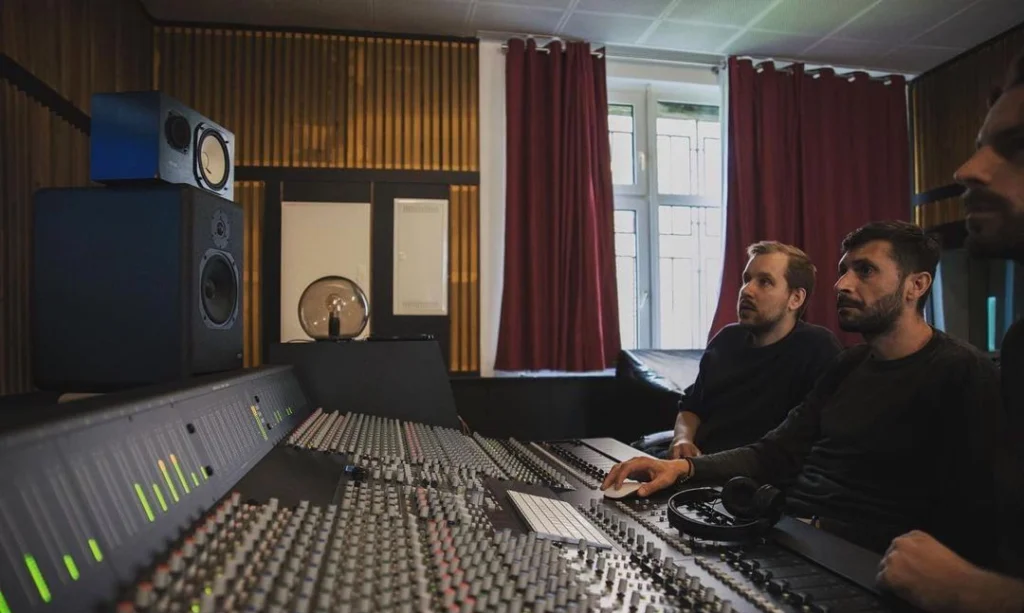
credit: Artefakt
You’ve had impactful DJ experiences in various venues in and around Budapest already. How do different spaces, like the forests around Kolorado Festival, or clubs like A38 or Turbina influence your DJ sets, and do you have a specific approach when adapting your sound to differing audiences and environments?
Every place is special to me, especially all the ones I've been to in Hungary, whether they were festivals or club nights I've always had wonderful experiences. Each trip is an experience in itself, generally every time I prepare for an event I prepare the music specifically for that specific event, or otherwise, more recently, playing in many different places, I am experimenting with a sort of more or less fixed selection and to not change so much the playlist as I like to see how people react differently from country to country, each place has its own special reaction. When I played at Kolorado the set was quite long, so I was able to create a fairly broad journey in which I was able to range across different styles and shades and create the right progression, the right story telling.
To create a story for me is always very important regardless.
Given that we are at the end of the year, we should ask - how has 2023 been for you?
What a year it has been I must say! It was a really intense 2023 for me, I worked a lot both with gigs and in the studio, I played in many clubs in different parts of the world, released a lot of music and achieved important goals such as the Awakenings Festival for example. It has also been a year of choices and changes, I am truly grateful for everything this year has been, now I am very motivated and focused on moving forward on my path, I have many things on plan for the next year!
What can people expect from you from the Technokunst gig on the 30th of December? Do you
have some current favourites you tend to play a lot?
I really can't wait to play for you again, the audience is always fantastic and I hope it will be the same this time too, but I'm sure of it! I want to leave you the pleasure of waiting to listen to a lot of unreleased and upcoming stuff!
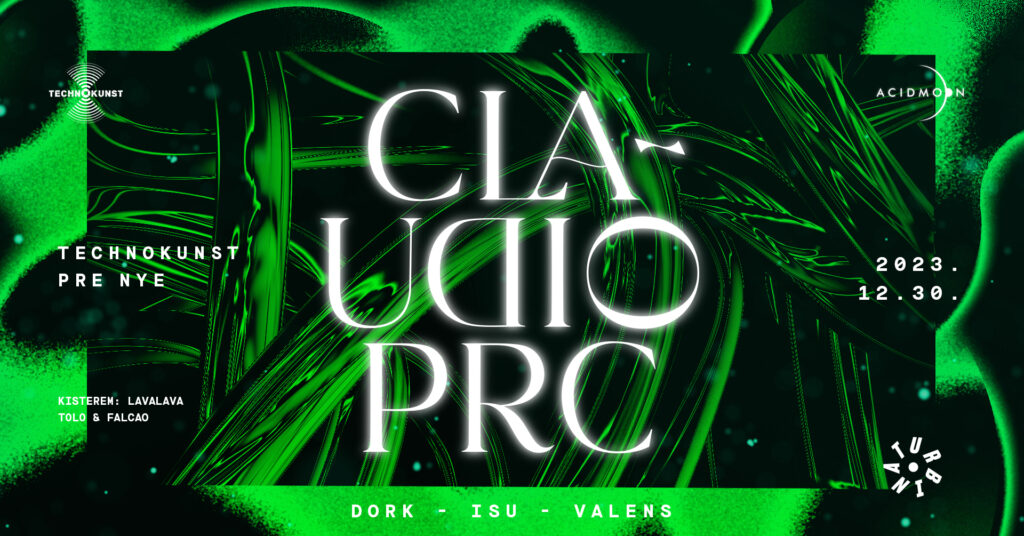
What are some of your long-time favourite albums that you wish more people heard?
I have many, I can tell you which have been my favorite ones this year between LPs and EPs, in any kind of style:
Ryuichi Sakamoto - 12 [Milan - Sony Music]
Monolake - Hongkong (reissue) [Field Records]
Moritz von Oswald - Silencio [Tresor]
Formant Value - Nucleo Profondo [Lowless Records]
Ricardo Villalobos - Alcachofa (reissue) [Perlon]
Shaun Soomro - Aquaplaning On The Secret Freeway [LMD Recordings]
Rene Wise - Lucky Number 7 [Bassiani Records]
Trolley Route - Vibrant Colours [Semantica Records]
Luigi Tozzi - The Deer Hunter [Mental Modern]
Reeko - Energía Magenta [Delsin Records]
Zemög - Daxita
Technokunst asks: Oliver Rosemann
Hi Oliver, thank you for answering our questions!
Can you tell us a little bit about your background and how you got in touch with Techno? What are
some of the initial influences that shaped your sound?
At that time electronic music was new and came over me like liquid night haha. The first things I
really celebrated were Depeche Mode, The Prodigy then Labels like Communique and Dance Mania
or Plus 8 and so on. I was influenced by everything that was released in 97/98/99, I think. But also
from technology, computers and science, like quantum physics, which fascinates me very much.
How was growing up in Leipzig like from a clubbing perspective and how have things changed in
the last few years?
Growing up in Leipzig wasn't bad. We had good illegal parties, clubs and events. E.g. of course the
"Distillery" and also the "10/40" But it seems to me that partying used to be more carefree back
then. Without the Internet, for example, and fewer things that could be discussed to the ground.
Back then there were more bubbles, maybe more individuality, because trends took a long time to
get from one place to another. So there were simply several different trends from place to place.
That’s interesting! Today, everything is global, everyone has access to the same trend through the
Internet. As a result, many people do the same thing and many things become boring. For example,
the musical individuality from one city to another. Chicago sound, Detroit sound. I don't know if there
can still be such differences today. But maybe I'm wrong. Just my idea at the moment when I think
about it. Also of course the internet has advantages, haha.
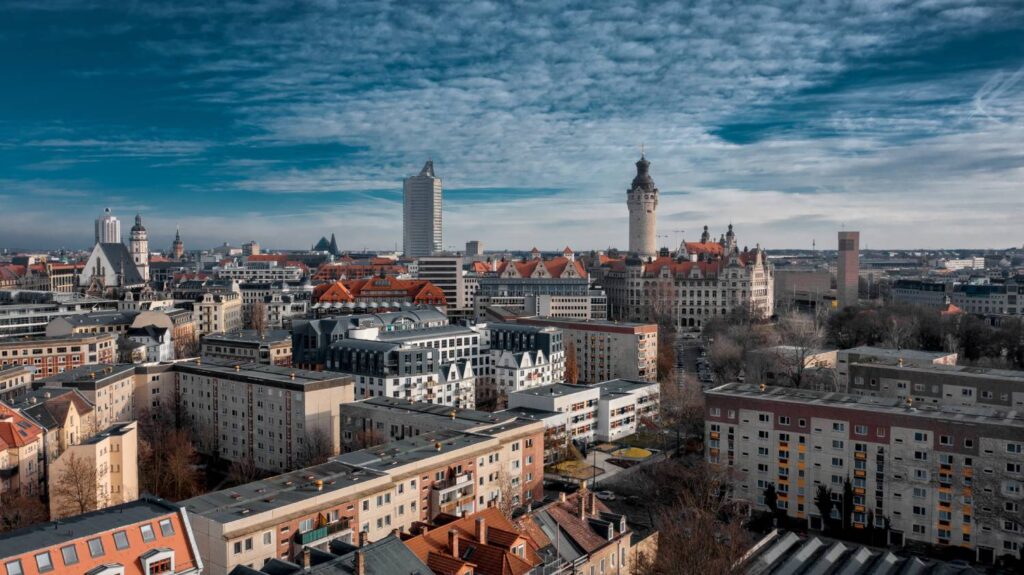
How do you think your “sound” has evolved over time? Is there a signature that you can attribute
to your productions?
I think my influences have remained noticeable, but of course the quality of the sound has improved.
On the one hand you learn a lot, you gain experience. But at the same time, the tools you have at
your disposal are getting better and better.
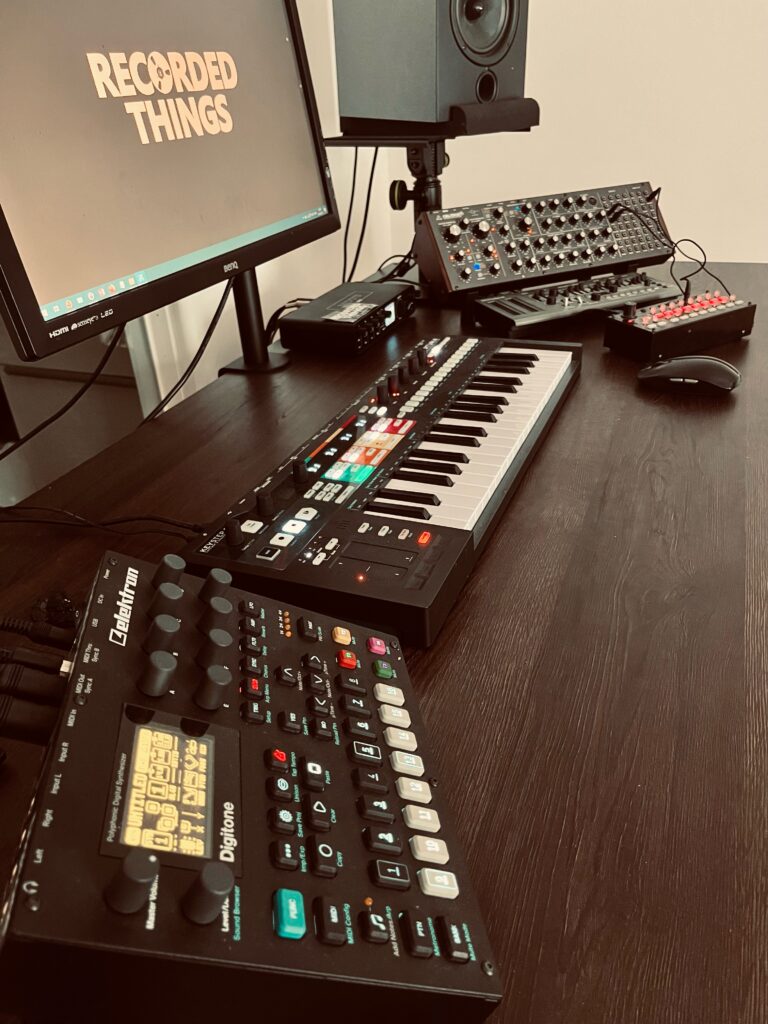
Is there anyone out there who helped you grow and learn, or did you pick it up all by yourself?
How do you find working with other producers in the studio? Specifically asking because it seems
you have really found the common ground in production with Pfirter.
I taught myself everything. But that's because of the way I live. I love exploring things, experimenting
and always finding new ways by my own and perhaps discovering the undiscovered. It's been that
way since I was a kid, and not just in music. Collaborating with other artists is always very gripping
because it takes things in a different direction. It's very interesting. With Pfirter, it's a perfect
direction. I love this collaboration!
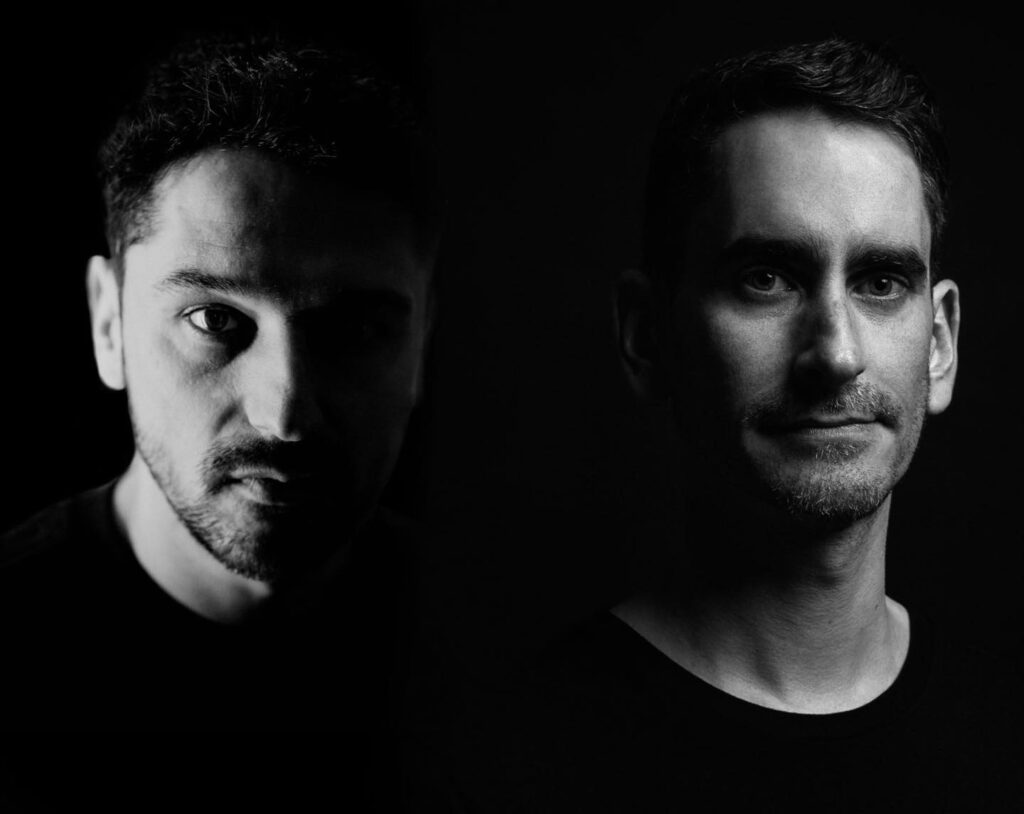
We see that your label, - Recorded Things - is mostly a means to release your own music with full
creative control, but we also see some guest appearances - such as Sweden’s Lakej or Spain’s
PWCCA… How did you arrive to the decision with your friend Sebastian to start the label together,
and how do you curate the output?
It's more of a means to release my own taste in music with full creative control. PWCCA and Lakej are
a very good example of that. I love their music! But stand fully behind every release on the label. All
stuff that I would play in sets as well. Starting a label has always been in my head and with Sebastian
we finally started the adventure.
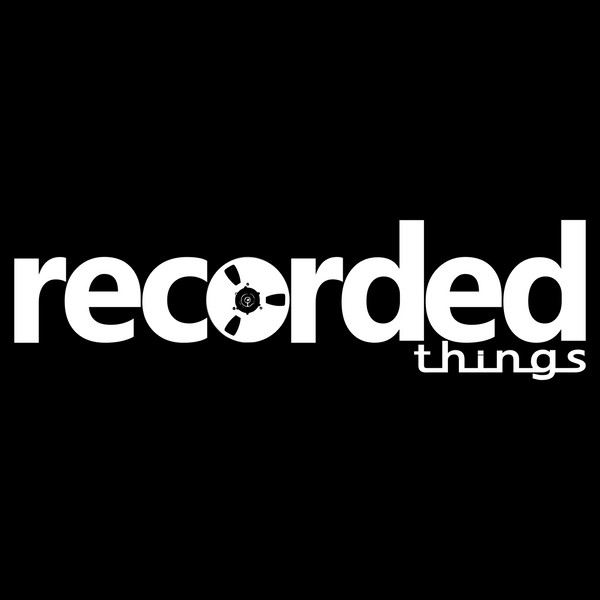
Is the name of the label a reference to recording tracks live, in one go? Sort-of how for example
Mike Parker has been working, straying away from a more widespread method of production
where tracks are built up in a DAW program?
No with the name i just wanted to express that i don't want to serve a special genre. it's my
understanding of techno. And it names the purest form to make music audible for someone else
when it's not live. You have to record it. And so it's Recorded Things.
Technokunst is a collective of artists who embrace the tradition of vinyl dj-ing, so we are happy to
see labels like yours still release records. Is it important for you to keep records going, or is it
merely a nod to some DJs and collectors out there? How do you decide on what to press and what
to keep digital?
We definitely wanted to offer vinyl as well. I always really liked having something in my hand. To be
happy to unwrap it, put it on and listen to it. I'm sure this will create a different perception. Recorded
Things will mainly feature the release of the "Season" series on vinyl.
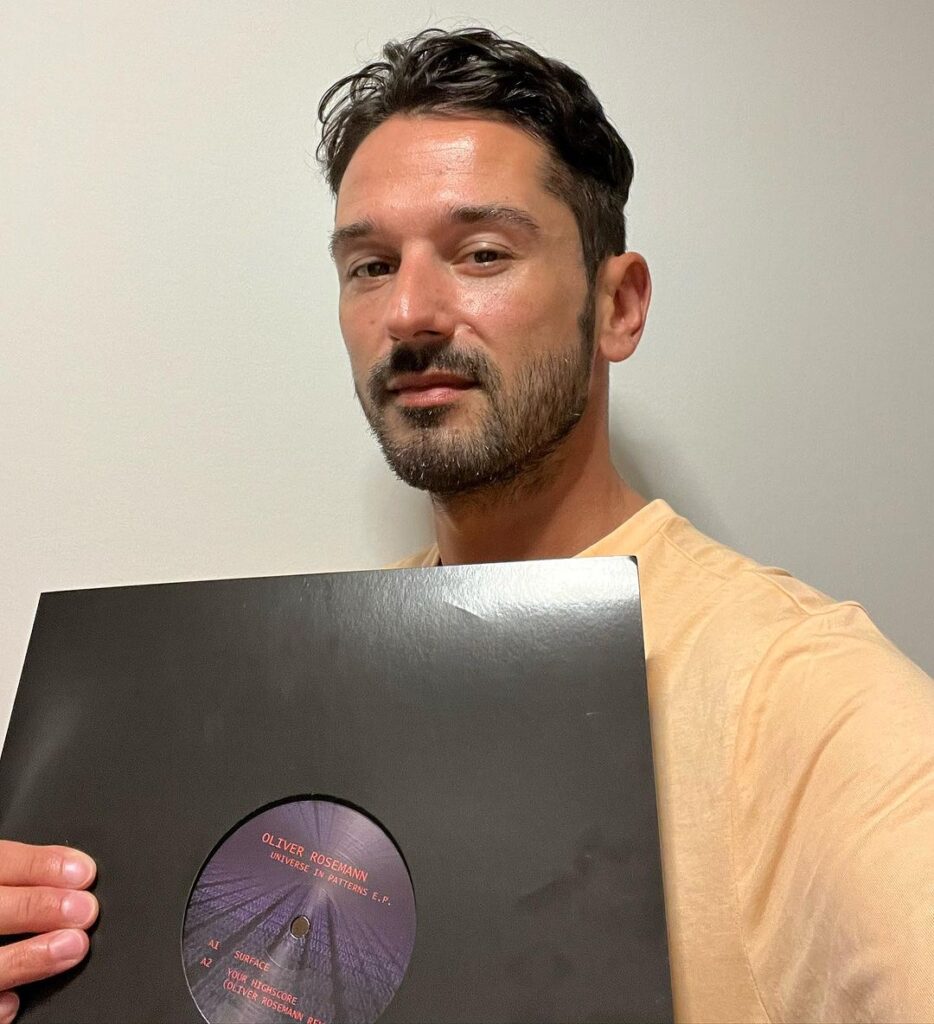
How does your production setup look like? Do you prefer using software, hardware, or a
combination of both? Can you show us your studio and your favourite tools for production?
I use things from both worlds, as I want to explore both. Currently I use the Elektron Digitone, the
SH01a, the Behringer Neutron, the Keystep Pro, the Drumazon 2 as well as the Roland Cloud 909.
Xfer Serum, Massive X and a few more.
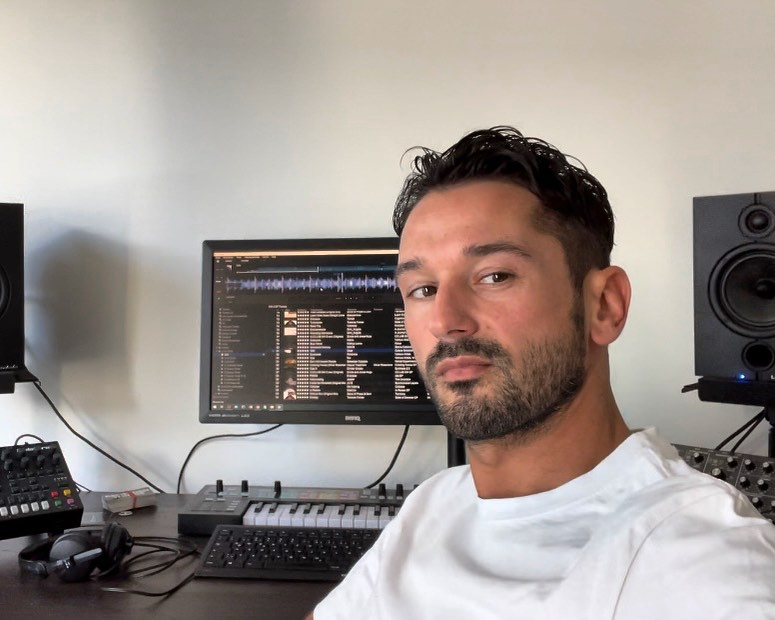
You are playing on a Technokunst event on the 21st of October. What are some of the tracks that
have been staple parts of your sets, that those attending can expect to hear?
Yes, that's right and I'm really looking forward to it. I also like the name "Technokunst", because
Techno is art and should always be!!!
Right now I'm pretty much always playing Animal Noise by Endplate! A monster track. But I also
always play some personal classics from the 90s from my record collection, which I digitized for this.
But what exactly I play, I can't say. I never prepare too much. I have my bag packed and I always let
the vibe in the club guide me, from start to finish.
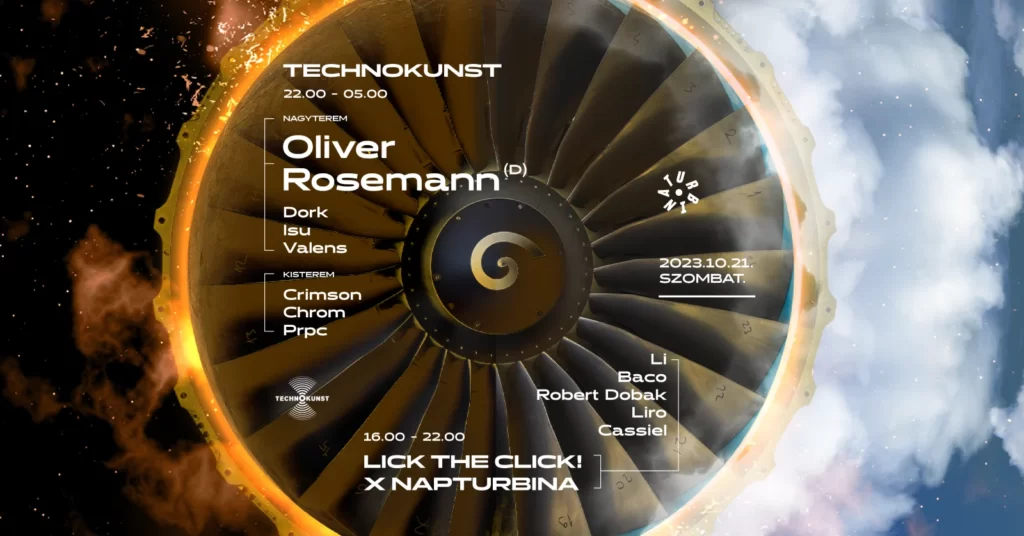
Can you share some of your favourite music, - perhaps not from the realm of Techno - that you
wish readers of this interview heard?
I like many things. One of my own weaknesses is probably to decide for anything. So now after 2
hours of thinking about which song or band to give you, I decided against it. HAHA. I like 90's hip hop,
the raw and dirty style. Also 60’s / 70's psychedelic rock. Would have loved to have been at
Woodstock! Also Nirvana (Now I named a band exactly^^), Roots Reggae and Dub Reggae.
OK 3 Songs are maybe George Harrison - Art of Dying,
The War On Drugs - Come To The City
and
Gravediggaz - 2 Cups Of Blood. I just picked them random from my playlists.
Technokunst asks: Zemög
Hi Zemög, many thanks for accepting this interview request.
To start, lets talk a little bit about your cultural background and upbringing in Colombia. When did you first discover Techno and what prompted you to start music production? Looking at the things you share about yourself, it looks like you spend a lot of time outside in nature. Has this been a vital source of inspiration for you?
I grew up in the middle of a musical family and in an environment that was also somewhat technological. A
music lover father and collector of vinyl records of tango, bolero, salsa and old Latin music; and brothers who
broadened my musical spectrum to rock, pop, hip-hop, and reggae. I learned to play the guitar at the age of 13
and on the other hand there was always a computer in my house, which my mom used for accounting, so from
a very early age I already had DAW programs like FL Studio to make sounds on my own and explore. I entered
to study music production in Manizales and there I discovered electronic music for the first time seeing the
use of turntables to mix music. I became a recurring attendee at Techno events for a few years and that's how my interest to start producing and playing started in 2012.
Without a doubt, nature is a fundamental part of my inspiration when it comes to creating. I try to spend as
much time as possible hiking mountains in my free time or even on touring, so I can get to know the different
natural environments of the cities I travel to play. I am fortunate to live in a highly biodiverse country that has
everything for me to be discovered.
How would you describe your creative process when incorporating tribal elements and nature-leaning
ambience, field recordings, or textures into your music, and what inspired you to merge these together? What emotions or states of mind would you like to convey to your audience through your music?
As I love being in natural environments, I also like to record them, and modify them to my liking, there is nothing more organic than daily listening, of which we are often unaware. That is precisely what I am looking for with the recordings, to give the music I compose a space to experiment with the direct sound of the life I live and the spaces I inhabit. As I am an audiovisual sound director, throughout my career I have collected documentary recordings with indigenous and Afro-Colombian instruments, songs and rituals, environments and Foley elements that continue to build my own library. That closeness that I have developed with my roots has led me to mix it with the music that I make. I don't pay attention to conveying a specific mood when I compose. It will depend many times on my own state of mind and surely that will be what I transmit. But mainly I seek that through repetition, sampling, and hypnosis, the audience feels comfortable and immersed in listening, as well as on the dance floor.
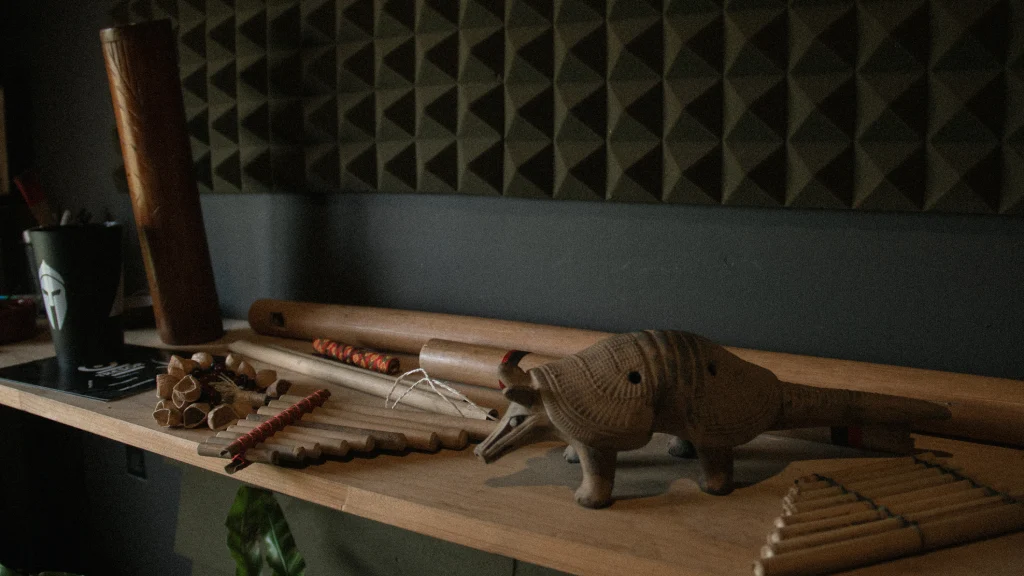
Colombian folk music is very colorful, being influenced by African, Caribbean, Spanish and Indigenous roots. Do you take anything from these traditional genres, have you sourced and sampled any traditional percussive instruments for example?
I feel very identified with the African sound of the Pacific coast and with the indigenous ritual music of
Colombia. Both have a truly inspiring cultural and folkloric wealth. I have played and recorded some favorite
instruments like the Marimba, also called the jungle piano, some Pacific drums, the Guasá and the indigenous
Rattles, and handcrafted wind instruments like the Rucu, made from a type of bamboo that only grows in
Colombia, and the Ocarinas made of clay in the shapes of Shamans, animals and zoomorphic figures.
How is the scene in South America and particularly in your home country, Colombia? How easy is it to release music through traditional channels, such as vinyl records? How is the club scene and how "accessible" is Techno for Colombians?
Releasing music in vinyl format in Colombia is not an easy thing, it is only possible through limited Lathe Cuts.
And it is extremely expensive, plus the very high shipping costs from Colombia. So I don't see it as profitable
right now. But on the other hand, speaking about the club scene in my country, it is possibly the strongest in
all of South America. Techno is accessible to everyone, even with the high costs of producing an event and the
accelerated devaluation of our currency, there are high-quality events, serious promoters and clubs, very good
artists, and audiences that are increasingly educated and devoted to the cause. So I think our scene is
constantly growing, not just in the central cities but in the periphery and small towns.
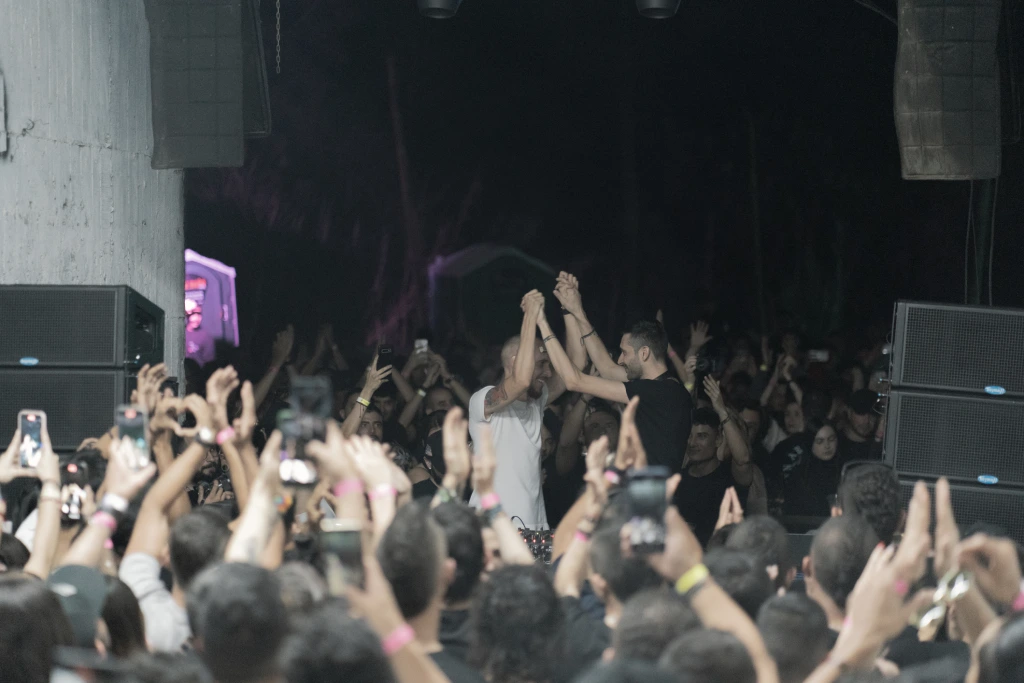
Matteria is a collective union of 5 friends (4 of them are DJs). We founded it in 2018 after having organized events many years before and having our own club. So, it's the result of a lot of learning and a cultivated audience. We have become an important collective for the establishment, development and visibility of club culture in the Eje Cafetero region and throughout Colombia, establishing ourselves in Pereira, a very strong and musically educated city at the Latin American level. We focus on providing the audience with highly sensory experiences through audiovisual experimentation, high-quality sound, and setups inside and outside the club, inviting authentic artists and projects that represent our vision, among which we have been able to have: DJ Nobu, Claudio PRC, Marco Shuttle, Sigha, Rrose, Anthony Linell, Adriana Lopez, among many other artists.
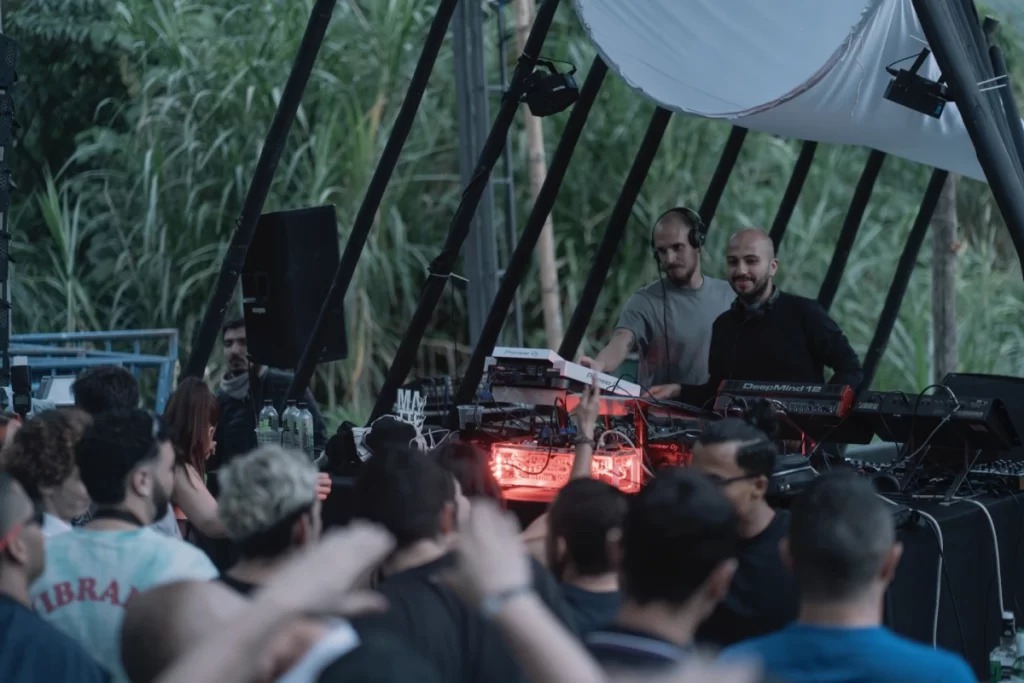
You have launched your own label, Tepuy, releasing on Bandcamp. Interestingly I understand the label is
named after large sandstone plateaus found in South America – hinting at a deep connection with nature?
Beyond a connection with nature, Tepuy is a connection with our first ancestors, they are the oldest mountain
formations in the world, so I feel that they faithfully represent my intention to connect with my roots. I had the
pleasure of hiking and climbing a place of Tepuy in Vichada next to the Orinoco river and that changed my life
forever, it was a very deep connection. I also want the label to be an exhibition of the indigenous arts, cave
paintings, metalwork and architecture that represent the ancestral cultures of Colombia.
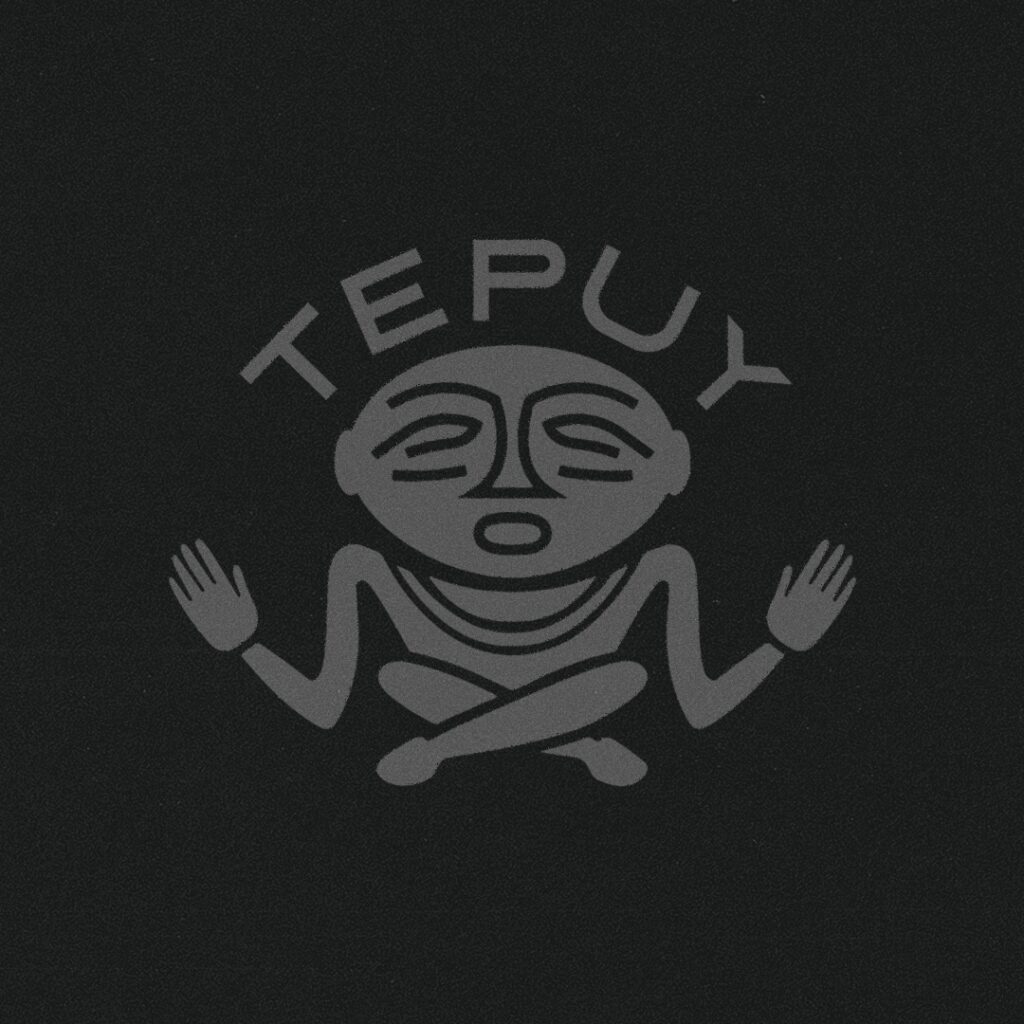
Did you have your records pressed in Europe or were you able to get everything done in South America? How has Bandcamp as a platform worked for you so far?
The vinyls of the first release were made in Medellín and were limited copies. But the idea with the second release is to be pressed in Europe. Bandcamp has been a great help for the exposure and sales of the label. It has worked incredibly well and the label has been very well received around the world. I am happy that there is a platform like Bandcamp where it allows you to be an independent artist or label having complete control of your moves.
What is the label "ethos" of Tepuy and what are your plans for the releases? Is it your own creative outlet or do you plan on releasing music from other producers?
I plan for the first few releases to be just own releases with remixes from my favorite artists. In this way I feel that I can express the whole concept and aesthetics of the label more precisely . Then I want to do some VA, mainly to help indigenous peoples and poor communities in Colombia. There will also be some releases from other artists in the future.
Your new release on our good friend Daniel Danieli's Whispering Signals label is just out now. Can you tell us a little bit about this record?
This release has been composed over the last 2 years. Time where I met Daniel and we connected very well
musically. When I sent him the tracks, he was delighted and invited me to be part of his label. The sound aesthetic of this EP is deep, minimalist, tribal and some meditative, with the intention of taking the audience to a state of contemplation. It was also very important for me to have been in charge of the cover art design, where I was able to visually connect the intentions of the release and the aesthetics of the Whispering Signals label. On the other hand I am delighted that Neel has been the mastering engineer, since I admire his work and his project very much.
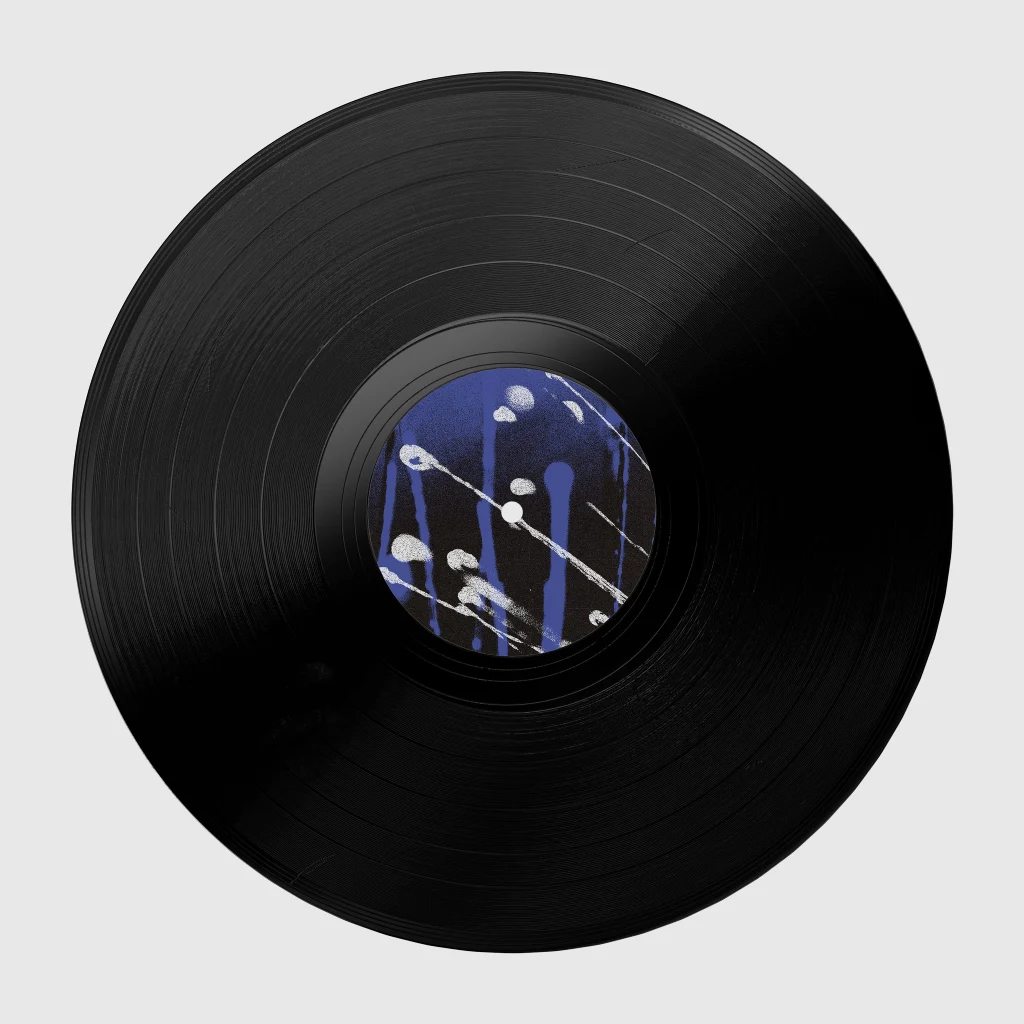
How do you prepare for a live set? What equipment do you use? Do you pre-compile stems of tracks or is it a completely open arrangement of instruments and you build the music on the fly?
It's funny, but I've only played once live and that was when I founded the Zemög project. But now I'm working to
do a live act, possibly this year it will come out. I plan that it will only be for very special occasions, where it is really worth showing myself in this format. To make Live I don't plan to go out with a lot of hardware, I feel that with the computer and the right instruments you can do enough, I am a faithful believer that less is more. As for the way I play it, I like the idea of pre-recording samples and stems to have a basic order at different moments of the act and showcase some of my own productions, but I also love the idea of building music on the fly. So I guess I don't limit myself, as long as the music sounds the way I want it to sound.
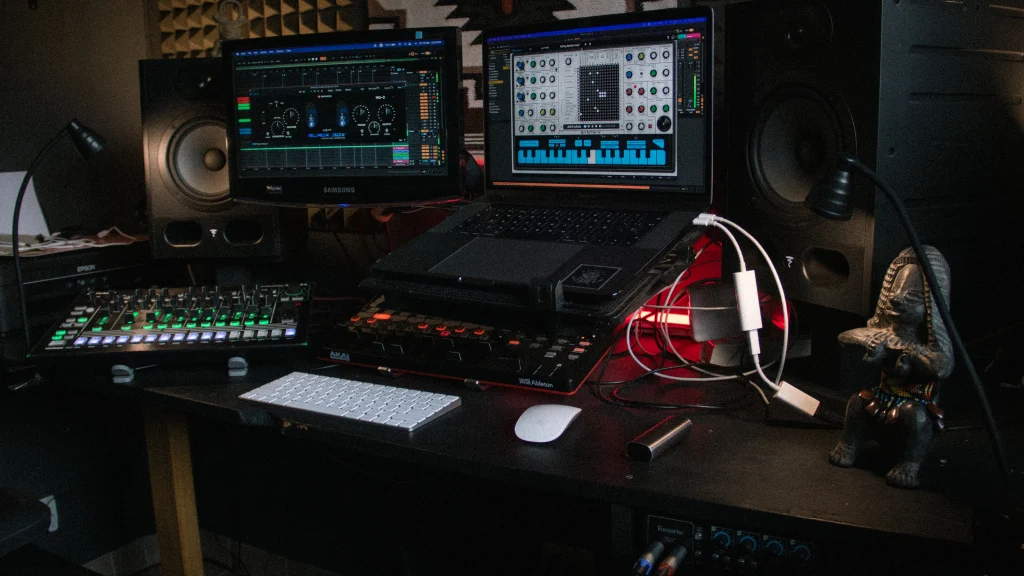
We know you are also playing vinyl sets. Has this physical carrying medium played an important role in your discovery of music or in the way you interface with it as a DJ? Do you primarily think of yourself as more of a DJ and selector or more of a producer with the added ability of playing your productions for audiences?
Collecting and playing vinyl changes a lot of the rules in the way you consume music and art. When I buy a
vinyl I not only buy it for its music, but also often for the art of its covers, sometimes there are vinyls that I
only buy to listen to at home, I like the idea of putting on a vinyl and listening to it completely from side to side
side, appreciating every detail, something that does not happen with digital music, which most of the time you
don’t listen to an entire track. When you play on vinyl, you just play differently, you think faster, you have to
be more focused, it takes you much longer to select and you have to make the mix faster and more dynamic.
So you have to put all your skills as a DJ, however, in Colombia it is not much appreciated that you play in this
format, so I don’t do it very often in events here.
Although I spend a lot of time producing and developing my own sound, I consider myself more of a DJ and
selector. It is what I have been doing for more than a decade and what I feel most comfortable with to convey
my message in any slot of an event. I love exploring music every day, keep seeking what artists and labels are
putting out, and finding a place for it in my library.
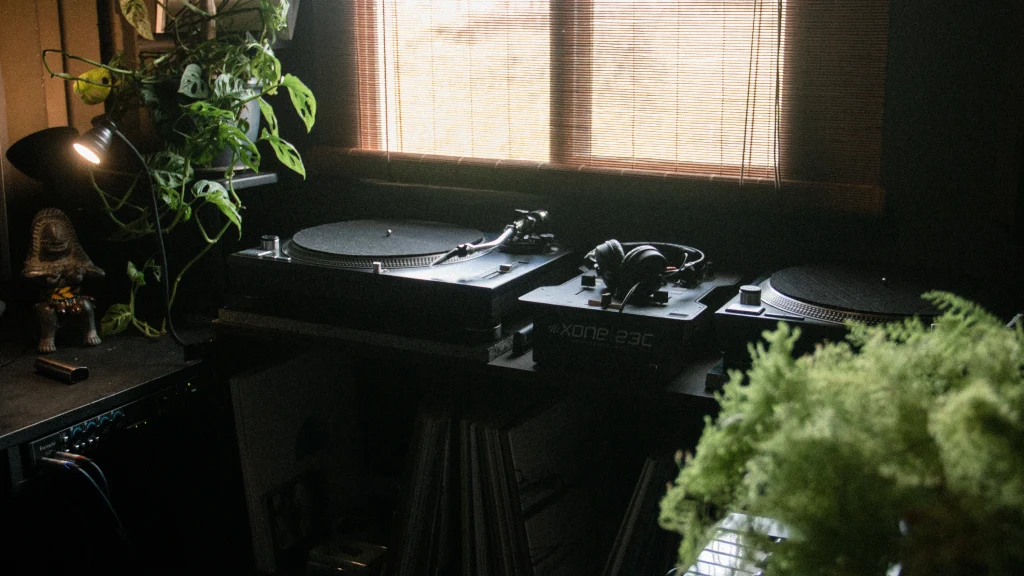
Care to show us your studio and talk us through your production workflow? Do you use any hardware synths or effects?
I don't have a lot of hardware in my studio, a Novation Peak synthesizer, an Akai APC40 II controller, a TR-8, an old5 octave controller piano and a Focusrite Safire Pro 26, I use some plugins that among my favorites are the Reaktor libraries and Kontakt, the Buchla. I also tend to process the signals a lot with filters and modulators like the Hypnus Slink, tube saturators like the Black Box and effects like U-He and Waves, and of course the typical reverbs and delays. All executed in Ableton Live. In addition to that, there are the field recordings, acoustic instruments and Foley that I process through the same effects system. Although I like to structure my compositions and know exactly what I'm doing, I also like to improvise by manipulating functions and letting it flow, so I feel free when composing and finalizing a project.
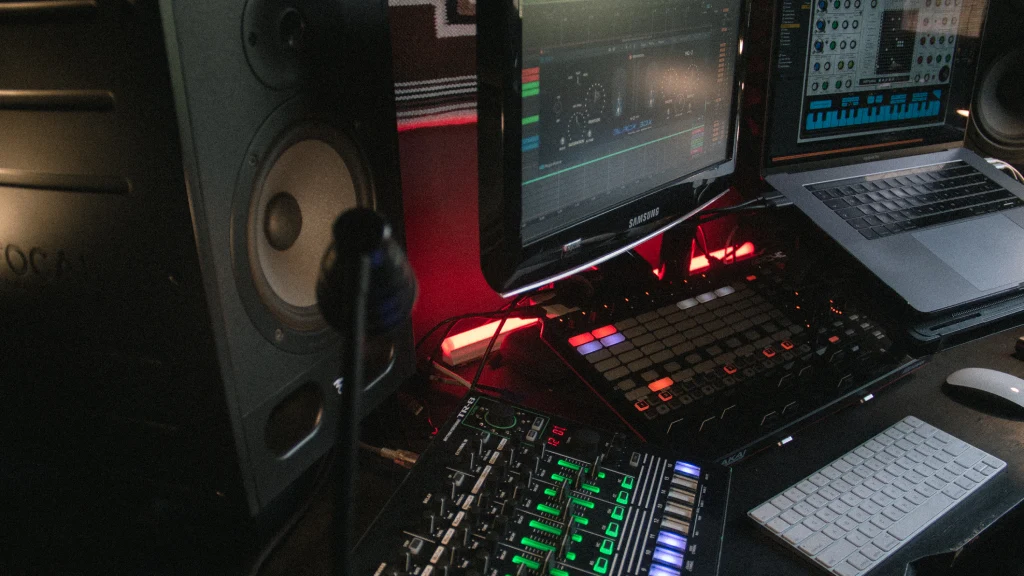
Can you tell us about your plans for 2023 and the releases you have lined up?
This year I hopefully plan to do my first tour in Europe. Maybe for the summer, but that is still to be defined. As for releases, after this EP on Whispering Signals, comes my first full length Album on a label that I admire a lot and feel in complete connection with my music, a project that i have dedicated most of my time in the studio in the last few months and I hope to finish very soon. Some other remixes and VA on 12” are coming too. These are busy times in the studio. On the other hand, I am also part of the hosting of events with Matteria, one of the most respected collectives in Colombia, and this year is undoubtedly one that brings very enriching experiences to our scene and I am very happy for what is to come.
Finally, can you share with us some of the music that inspired you the most and that you would like readers of this interview to listen to?
I personally enjoy listening to full albums. I feel that most of them are very personal works, more
accomplished and that perfectly describe an artist's state of mind or aesthetics. So I'm going to recommend 3
of my favorite albums, which have taken me to unique states.
The first would be Voices From The Lake - Voices From The Lake, a true jewel of deep acid, repetitive and
ritualistic. A masterpiece published in 2012 by my favorite artist Donato Dozzy and Neel.
The second would be Wanderwelle - Gathering of the Ancient Spirits, the sweet spot of deep, melancholic and tribal shamanism. Released in 2018 by Silent Season and composed by the talented dutch duo. Its cover is a beautiful illustration that immerses us literally in a hidden island with ancestral spirits.
The third would be my favorite album of experimental music, Midori Takada - Through The Looking Glass. It's
never enough every time I listen to this album. It's just perfect. The most impressive thing is that it was
composed in 1983 with a sound architecture ahead of its time. I would describe it as full instrumental
harmony with a very high level of creative improvisation. Composed by the amazing Japanese percussionist,
using marimbas, gongs, bells, flutes, and Coca-Cola bottles that were blown as flutes. The illustration of its
surreal cover is not less important at all.
Technokunst asks: Ness
Hi Andrea, thank you for accepting this interview request.
I would like to start with your youth and how you got in touch with electronic music in general. What were the initial influences that shaped your taste? What were you looking for in music and what grabbed your attention the most? Has Trance music been a deep inspiration for you?
From early childhood through a computer that my father brought home in 1985, I got inspired by the 8-bit sounds. Then when I was a teenager, I was mostly listening to pop or to dance music and later to trance, progressive and electro. During that phase of my life, I wasn’t even thinking of DJ-ing, but I think danceable music in general is the one that grabbed my attention the most. With Trance I explored DJ-ing in the beginning of my journey, losing interest a few years after due to the different approach in technique that Techno had to offer for a DJ, which ultimately made it more interesting to me.
How have you shifted towards Techno, and specifically a type of Techno that brought over elements from Trance music?
It was about the sound and the approach to DJ-ing, as stated before, I believe the aesthetic of Techno became more appealing to me than any other genre. In music production there’s a wide spectrum to explore, I believe that contaminations make music evolve, it’s happening all the time. Bringing in my music some elements from Trance came quite spontaneously to me, specifically the psychedelic ones.
What came first, DJ-ing or production? What prompted the idea to produce your own material? How would you actually define the type of sound you are going for?
I started with DJ-ing, vinyls and CDs, music production came few years later. The idea of playing my own music still excites me these days, so that was a good drive back then too. It’s hard to restrain in one or two words the type of music I’m willing to produce or play, so I would say that among the other things I look for when I’m creating are depth and tension, but also playfulness and drama, these are moods / emotions. If we are going to shrink it into few genres the boundaries are staying within the realm of Techno, Trance and Dub music.
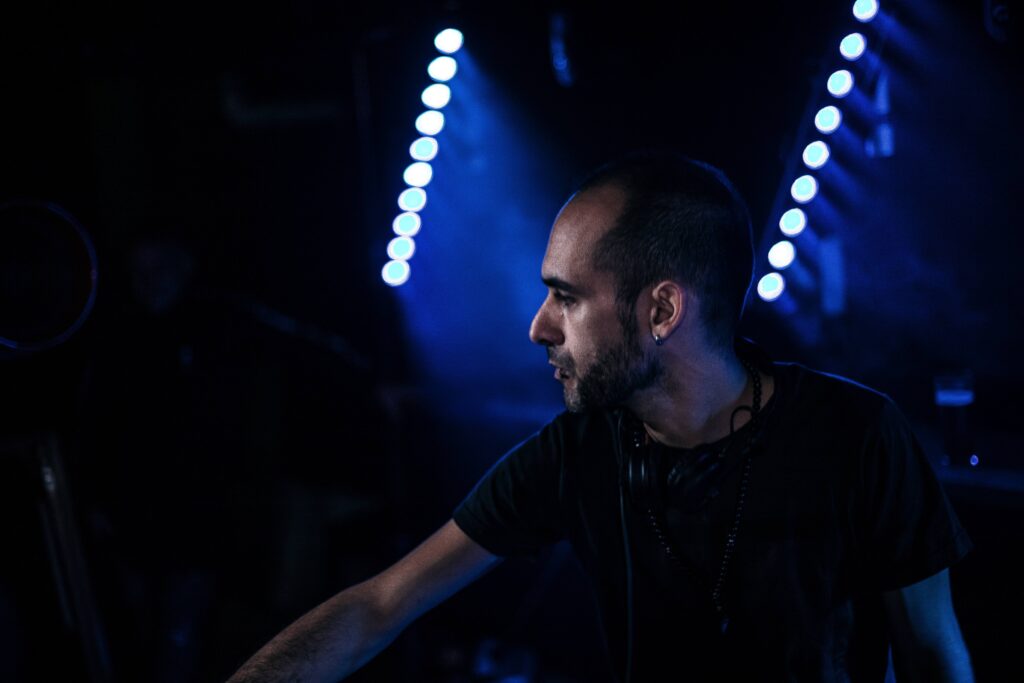
How did you get to opening your record store in Sardinia and how did you manage with it?
The record store was one of my little dreams that turned out in a little nightmare, despite all the enthusiasm of my youth I was honestly unprepared to manage it. The conditions we operated in Sardinia weren’t of any help, also the worldwide crisis of 2007 just kicked off. Looking back to it I never regret the experience it brought with, the business didn’t go well, but there was a lot to learn from and I keep in my mind many joyful and funny moments as well.
My understanding is that you are now in charge of managing the TGP label. What are your plans with it going forward? Are you going to continue pushing vinyl releases?
Yes, I keep things going on TGP and I have 2 upcoming vinyl records on the line. I may be quite slow with releases but the label is staying active in its own time.
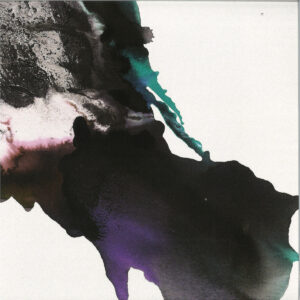
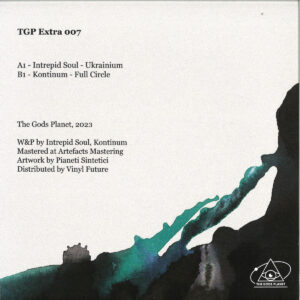
Who do you find to be exciting acts in the world of Techno right now? Are there any inspirational artists or labels you completely trust?
I have some personal favourite of mine but no one to mention, it’s not nice to leave someone out of the list :-)
Can you please tell us about your move to the off-the-grid location in Bulgaria and what life is like there? Does the closeness of nature provide a huge boost to your production capabilities?
It’s not exactly off-the-grid, I live in the mountains but I’m relatively close to the city centre and the airport within 30 minute drive, the choice of such a location was not really for boosting my production rather to have a different life experience, closeness to nature feels good for me now.
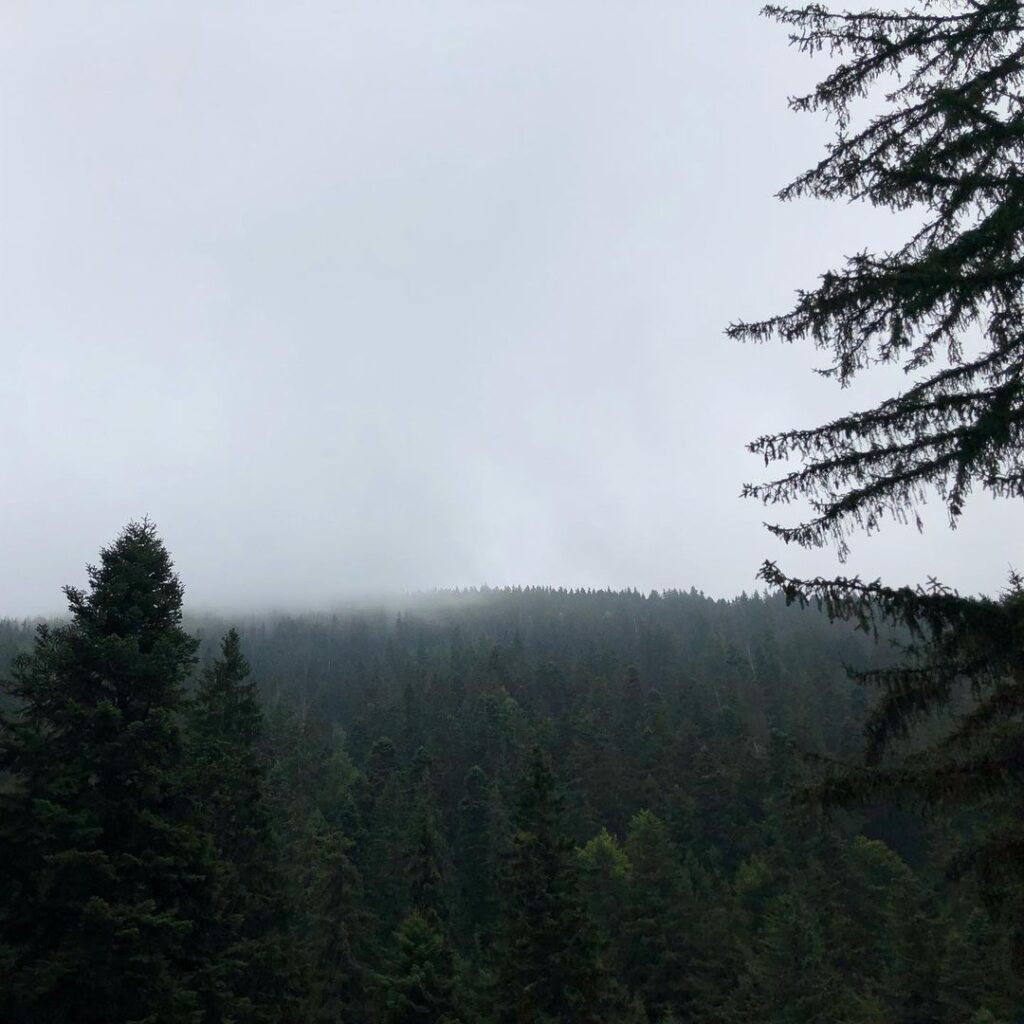
Can you talk a little bit about your music production process? Care to show us some of your favourite equipment, and talk us through your workflow?
My music productions are based on jamming with the machines, then sitting down to record them and arrange what I have so far. The entire process can take from hours to weeks until I’m satisfied with the material I have. As piece of equipment, I love the Elektron Analog RYTM, I’ve been doing the majority of my drums with it.
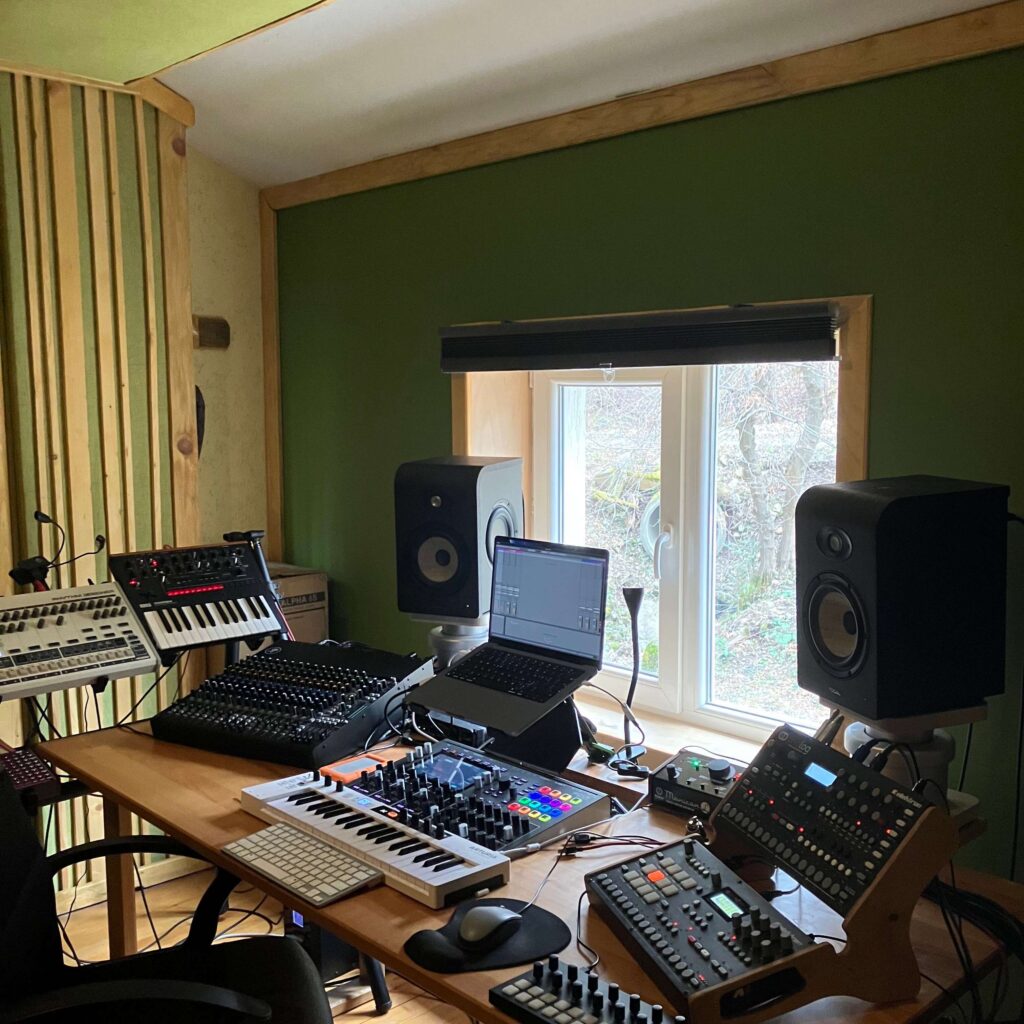
How is your schedule for 2023? Do you have a lot of releases lined up?
I have several remixes and single tracks upcoming on different labels, also I’m working to release a special record on TGP in combination with LDG (Japan)
Would you share with us a few of your favourite tracks or albums, music that you would like readers to hear?
The Source Experience - Different Journeys
Dj Metatron - Loops Of Infinity (A Rave Love Letter)
L.B. Dub Corp - Take It Down (In Dub)
Atom TM - Cold Memories
Leandro Fresco & Rafael Anton Irisarri - La Equidistancia
Technokunst asks: Sleeparchive
To start out I would like to go back in time and ask a little bit about how you got involved with
Techno and music production in the first place. I have read that you were into EBM and things
evolved from there. How did you discover the type of electronic music you were into and what
artists or sounds shaped you as a producer?
Around the age of 10 I started to listen to Depeche Mode a lot. That lead to Front 242 and Nitzer Ebb and
after that I bought an album by Front Line Assembly. It only took another couple months and EBM was
my favorite music and most of the music I bought was related to that scene. In the mid 90´s EBM started
to sound different and it was getting harder and harder to find music in that scene that I enjoyed. So I
went to check out other genres and ended up listening to Aphex Twin, Autechre, Boards Of Canada and
related. Sleeparchive was very much inspired by the music of Mika Vainio and Plastikman but I was not
much into Techno at this time. Of course I got in contact with Techno because from the mid 90’s I bought
99% of the music I listened to at Hard Wax, but I never liked Techno much when it was played in the
shop. Maybe I was never in the shop when they played Regis or Jeff Mills, but all this I discovered after I
started doing music under the name Sleeparchive because people told me to check these artists because
I might like it.
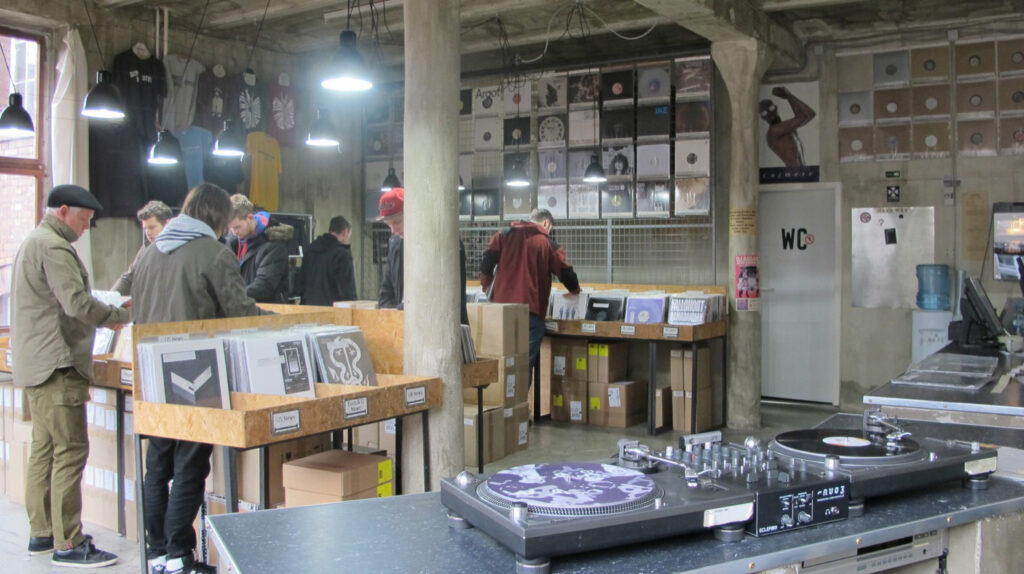
Berlin must have been super exciting in the 90s. Do you have any fond memories of events from
that era? Perhaps from Tresor - where you've also released some of your work?
I was not into Techno in the 90´s and I still do not enjoy much Techno released before 1996. The first
time I have been to a Techno club was the first or second new years eve party at Berghain. That was also
after I released my first record as Sleeparchive. Berghain was the first venue who asked me to play live,
so I thought I should check it out. My connection to Tresor came much much later. I have never been to
the old Tresor but when I have to think about a venue I enjoy the most these days when I am in Berlin it
would be Tresor.
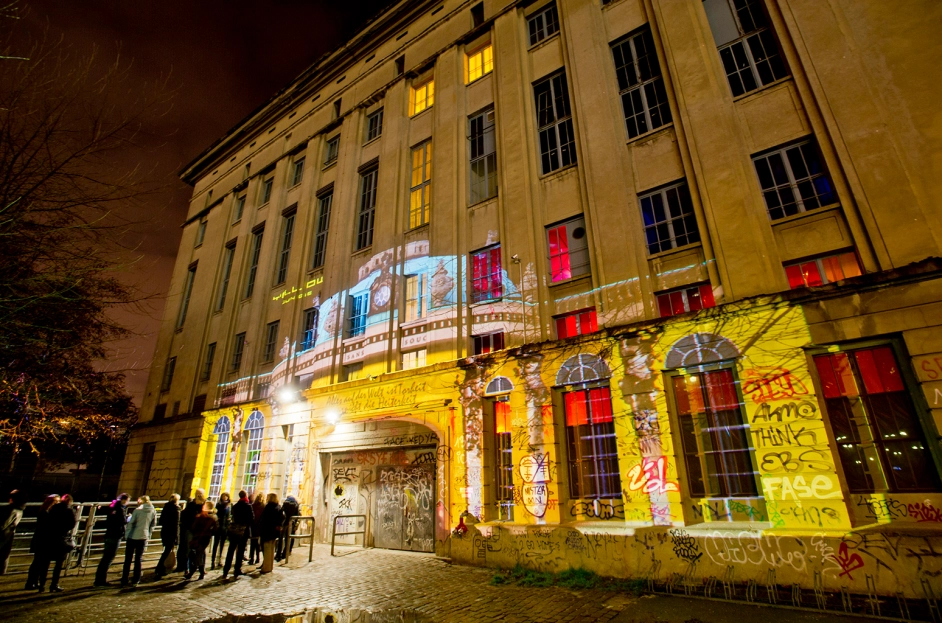
Where does the name Sleeparchive come from and how did you decide on starting your (selftitled)
label? Given that you almost exclusively release your own work, was it full creative control you
after?
The idea for the name came from a friend. But I can’t remember how she came up with that word. I only
remember that I instantly liked the sound of the word and how it looks written. When I started the label, it
was not because I wanted to release other people’s music, only my own. I find it very boring to release
music by people who already released music on other labels or have other labels they work often with.
Some of my friends do fantastic music, but nothing that would fit the Sleeparchive label.
Your releases are mostly presented as super minimal, stamped, no frills - no info type deals. This
ties in nicely with the raw/heavy but very minimalistic loopy concept of your music. Can you talk a
little bit about the aesthetic of the label and how it changed or remained over time?
I did not expect to sell many records when I pressed the first 500 copies from the „Elephant Island EP“. A
blank cover with a stamp was just the best way to save money. Of course I enjoy simple things and if I
would do printed covers they most likely would look similar but the main reason for how it looked was to
save money.
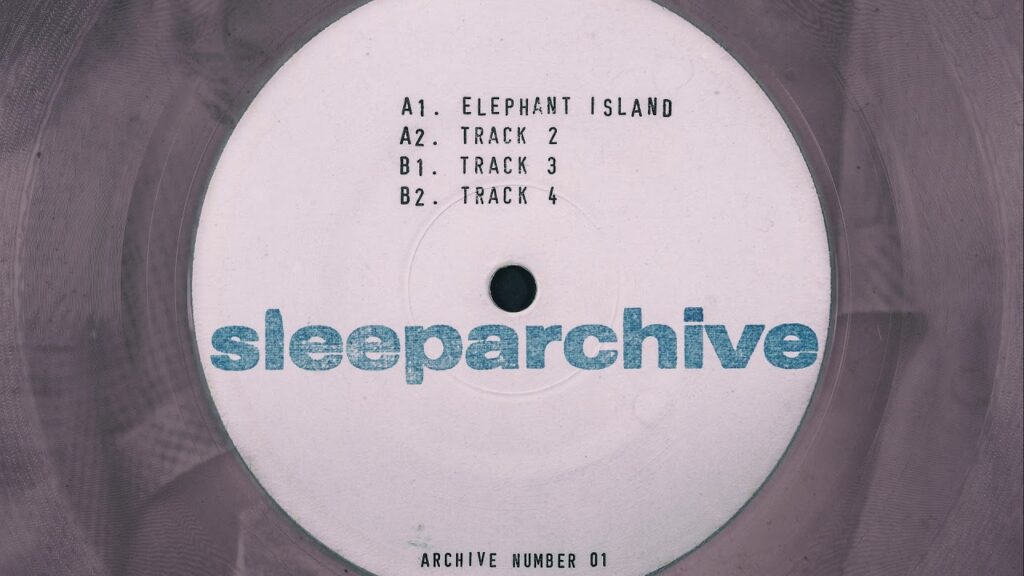
How did you come to the decision to cease operations of the Sleeparchive label and subsequently
restart releases, e.g. on your ARCHIVED series? What is the official status of Sleeparchive as a
record label today? Discogs still lists Hard Wax as your distributor. Are you still active with it?
My relation with the shop ended when I stopped working there and moved to Copenhagen. The last 2-3
years I worked in the shop I also did not buy much music from them and my records also did not sell well anymore. For around 2 months I recorded many many tracks after a 2-3 year break. Some of them ended
up on the „Trust“ album. But because I had many more left, I asked a distribution in Berlin if they might be
interested in doing a little series of records. They said yes and so all of the tracks which did not end up on
the album ended up on the Archived series of records instead.
Technokunst’s DJs are particularly interested in vinyl releases as we all play vinyl. Do you intend
to keep pushing vinyl records?
No. Record sales are to slow these days and I don’t like to wait for a finished product for 6 month or
longer. I really much enjoy to finish a track on a Saturday morning and put it up online the same day. And
I don’t have to worry if someone buys it or not.
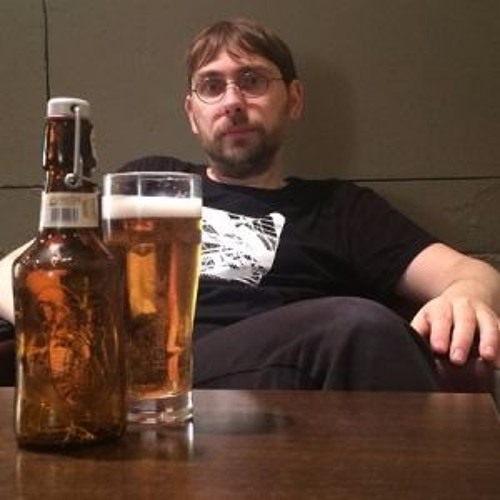
Given that you've started producing in the 90s I bet there is heavy reliance on using hardware.
Has your workflow changed by much over the course of the years? Would you ID some of your
favourite gear for production?
The first Sleeparchive releases I did with Propellerhead Reason and at that time I did the percussions
with Rebirth. In the last 10 years I do all my sounds with the Roland SH-101 and arrange everything in
Ableton Live. I also use the drums (909, 808 and so on) you get with Ableton Live.
I was never much interested in synths. Working on a computer I enjoy more... Not only because the
studio does not need much space but also because i can take the studio with me wherever I go. But I
don’t like 100 open windows when I work, so I don’t use any plug-in.
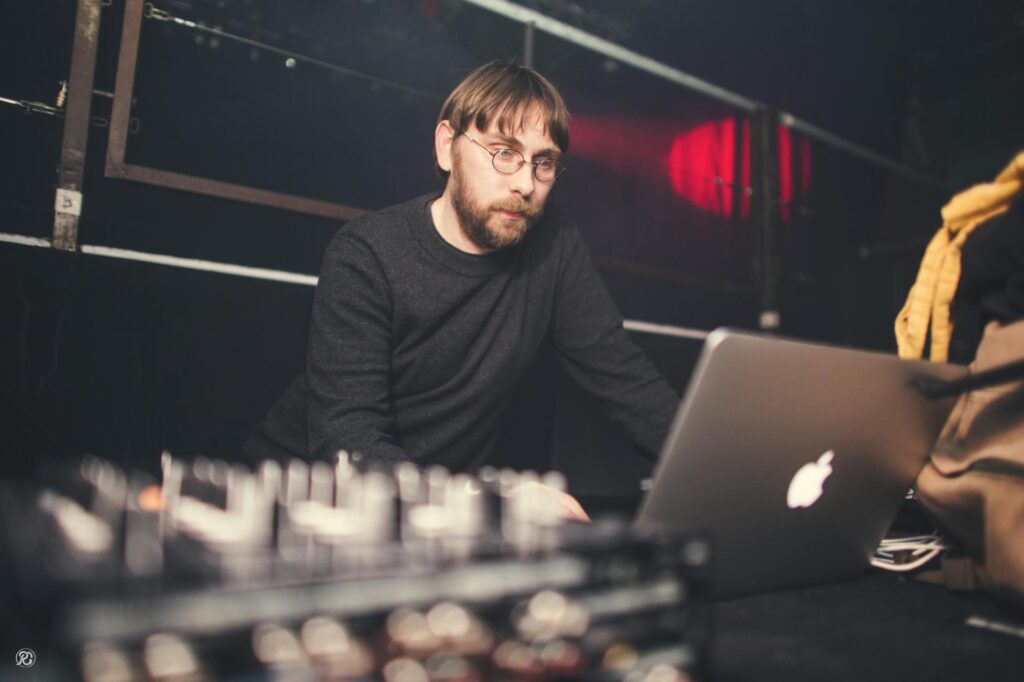
Do you ever DJ or are you purely into playing your own stems live?
I DJ’d a little while, but also with Ableton Live. But it did not take too long to realize that I don’t enjoy
playing other peoples music, so I stopped this. I have more fun jamming around with the hundreds of
loops I collected over the years.
How did things change when you became a dad? How easy do you find navigating parenthood
with gigs and production? Do you ever bring your little one on your events?
No, I would never bring my kid to a gig. Kids in that age should sleep at night. Our kid is also more into
guitar music and a bit bored by the the kind of Techno I do. I also have a regular day job these days, so
there is not much time to make music because I also started reading again. But over the years I lost the
interest in doing arranged music anyways. Most of the time I record little loops and if I find time on the
weekends or evenings I jam with them to see what fits in case I get booked somewhere.
Are you exploring music production in areas other than Techno, or are you purely into this genre
for now?
Its very rare that I listen to techno at the moment and if it is always the same 10 records by Regis or
Stanislav Tolkachev. Most of the time i listen to Indie guitar music and very quiet contemporary classic /
jazz related music. But I can find in mostly every genre of music something I like. Except metal music,
which I did not like when I was a kid and still I haven’t found anything I enjoy in the genre.
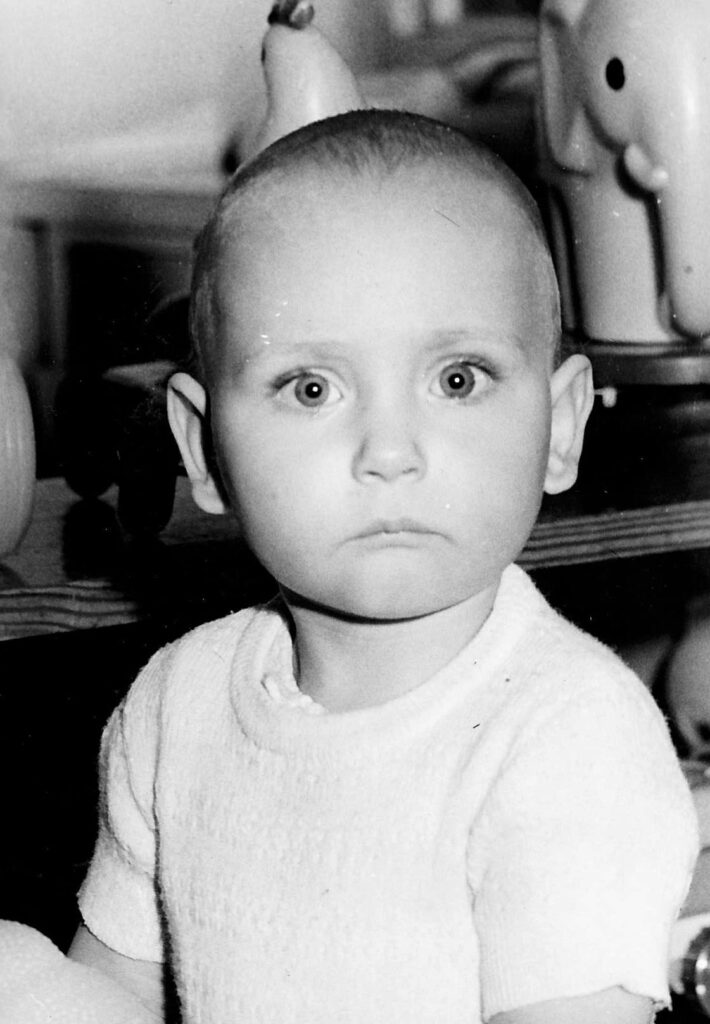
Technokunst asks: Daniel[i]
I would first like to ask you a little bit about your youth and starting out as a drummer for a band. How did you end up doing it and what kind of music were you playing?
As a teenager, I was very much into Radiohead, Mogwai, Explosions in the Sky, the so-called post-rock era. I was in love with these progressions and repetitions. Playing the drums was my first calling. After some time drumming, I put a lot of harmonic ideas into the music the band played. I found myself revolving around melodies, searching for sweet spots that dictated emotions. I don’t have a background in studying classical music or playing instruments, so I just learned things as I went. I do have a strong musical vein in my family though as my father has been a saxophone player all his life, while my mother is a tenured piano player and teacher. Before starting out in a band, I learned to play the drums by myself while listening closely to that music and learning the drum patterns from there.
What brought about the change from instrumental to electronic music, and specifically Deep Techno? Did this change coincide with you moving from Belgium to Germany? Were you able to take advantage of the skills you learned playing instruments, and have you incorporated anything from playing live - into your digital workflow?
The band separated at some point due to differing interests. I wanted to dive in deeper and compose, but did not have the funds to acquire all the necessary tools, like hardware synths at the time. Software seemed like a great alternative for this. It has just been a couple of years ago that I started putting together some analogue gear. I was initially influenced by the Jungle / Drum & Bass scene. We participated on a lot of raves in Belgium and Netherlands and ended up in Techno parties as well. Artists like Len Faki or Miss Kittin were playing all the time. Initially it was a bit too “soft” but then I ended up enjoying it slowly but surely. As I aged, I found myself drawn to it even more. The parties educated me in a way and I started to understand what made people move, what triggered their bodies’ inner expressions. I initially made Jungle inspired beats and more breaky stuff and transitioned to Techno from there as I got more mature. The 4/4 calmed me down somehow. As to incorporating things from playing live instruments to electronic music production, I think the experience just helped me to be able to put my thoughts and ideas down quickly in a raw form.
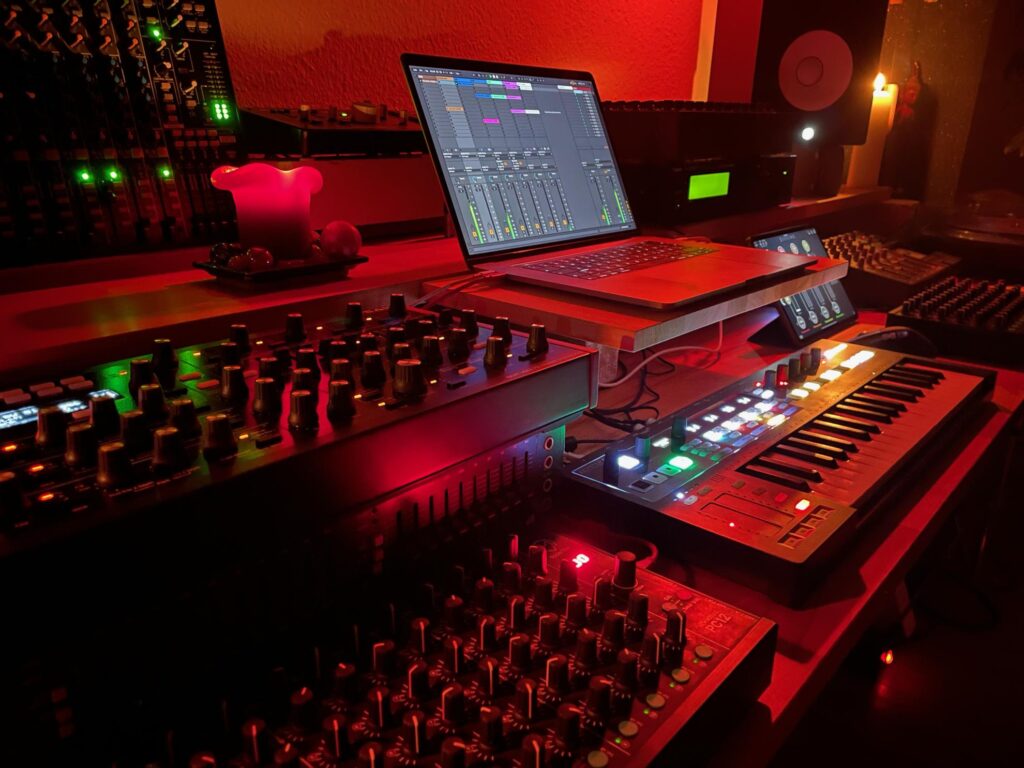
Can you talk a little bit about your production process? We are also interested in some of the artists that really influenced your output as a producer. Is there anyone you really looked up to when you were starting out, and ended up working with?
I have to be at peace to be able to start my machines and jam. Then the production process for me is kind of rough and simple, if I like how it sounds, and will not care about forgetting an EQ here or there. It is completely okay for me not to fill the frequency spectrum all the way up. Sometimes it needs a few months before I’m retouching a jam or idea, working on more detailed EQ or processing. I found that a lot of times, accidents make the best ideas in my tracks. Obviously, I had occasions where mastering engineers would tell me that some things need to be changed. Most of the time they observe details I don't hear in my home studio so I will change them of course. But sometimes things that others want to change are just part of my creative process, such as not having a high attack on kickdrums.
As to electronic music inspirations, originally Squarepusher, Aphex Twin, Bogdan Raczynski, Boards of Canada, Max Cooper, Minilogue (even more Sebastian Mullaert as solo artist), were my first triggers and producers I would try to “imitate”. Later one of the biggest influences became Rod Modell aka Deepchord. He as an extremely subtle way of expression and mixing harmonies. Marcel Bosscher has also been one of my big inspirations and even more a kind of mentor. In terms of playing DJ sets or infusing my personal taste even further, Aachen and promoters like “Solid” or “Transition” were game changers in my mind.
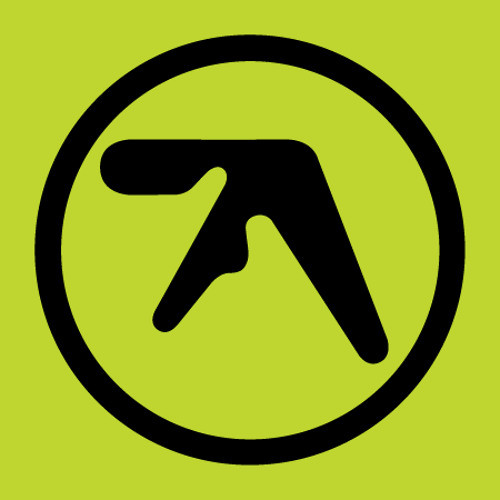
You are releasing productions under a few different aliases. What is the production ethos under “d162” and your other aliases “In A Left Place” or “Leinad”?
In A Left Place is a bit more melodic, less conceptual than my current alias. I don’t really have a plan with these names, I sometimes do jams and feel that some output could fit one or the other name better. d162 is a group with some close friends who come from a different place music-wise, and we actually have an album ready but not released yet. Leinad is a more forward leaning and rougher techno project. I might do a bit more of these but then I never made up my mind whether having this released under my Daniel[i] alias, which would be easier to follow for the listeners. Only the future knows…
When did the idea of launching your own label take root? Can you tell us a little bit about the A&R ideas behind Whispering Signals? Is this only an outlet for your music, or do you plan on releasing EP or LP material from other artists?
The concept started through my connection with Aachen, the city I live in now. The city and the people, many of my friends have influenced me deeply. It is a concept that I think is the result of a maturing process, and originally started with a track I named Whispering Signals, but ultimately changed as I felt that that name was meant for something bigger than just one jam. The label is basically a type of attentiveness, put to music. The love for the background and the subtle. I feel like having a musical output that is whispering to you and giving you the space you need to imagine more stories on top of it... hence the name. It could be Techno, Ambient, or even Jungle and Breakbeat, there is no restriction in my head.
I am very protective with the output of the label. I am working on a solo EP with all originals, no remixes. WHS04 is planned with Zemög, a Colombian artist. South America has amazing producers, and it is quite hard for them to release anything on vinyl. We in Europe are very privileged in this regard. Zemög sent me a few tracks and I immediately chose one of them as the starting point of his EP. I’m much looking forward to put this EP on Wax. There is no rush or time constraint here, there is plenty of patience for the label. Also, I am open to all kinds of “models” for the releases. The first one for example was an original from me with 3 remixes, then we had 3 originals and 1 remix, then 4 collaborations with my dear friend Purl. 04 is going to be 3 originals from Zemög with one remix made by myself.
Technokunst’s DJs are particularly interested in vinyl releases as we all play vinyl. Do you intend to keep pushing vinyl records on your labels? We hear from friends in the business that vinyl pressing has very long waiting lists, both for mastering, lacquer cuts and manufacturing. Does this affect your personal release schedule?
The label will continue to have releases on wax for sure, but the process is long – although I did not feel the pressure up to now as hard as maybe others did. I work with Rand Muzik since the launch of my label. They hear me out, they respond pretty fast. Haven’t had much issue with the cuts either, and when I had something (for the first one), they changed it immediately. Same feedback goes for the mastering studio Enisslab in Rome or the distribution Word&Sound in Hamburg, it fits all nicely together.
Can you talk a little bit about the releases that you have lined up?
My latest EP was released with Pyramid Blood in late August. I have recorded 4 ambient pieces that came out in digital and tape format. The EP is called “Loops for Now”, I guess another introspective release of mine. I also have something ready for Alpenglühen and Huinali (both planned for 2023), it will be soundscape and pad focused but still on a subtle 4/4 pattern. We have a new vinyl-only project with Rambadu called “oooooooo”. The first release will be around 112 BPM, one long track, A sided only. The records are finished and ready to see the light in mid October. I am also working on something faster for Counterchange (run by Inland), which is definitely dance-floor oriented, showing a different side of my character, inspired by a lot of raves.
We at Technokunst are always interested in touring artists’ studios. Care to show us some of your favorite equipment, and talk us through your workflow?
I always have a different approach. Sometimes I start with the beats, sometimes it’s the harmonic ideas that come first, or just the whispering moods from the background to give me a first layer of sounds to work with. I recently bought a Novation Peak, and I have to say, this synth is a true beast of sound design, in polyphony, definitely a keeper! I program my beats with Ableton and using a Faderfox PC12 to control as many parameters as possible, such as volumes, attacks, decays and pitches plus some effects for the hi-hats to make them more organic of course... I use an old Ibanez RM80 Mixer (used for drums initially) for some extra processing. I feel the character of this mixer is giving the necessary saturation to my layers. Another nice tool would be my Tascam 414, I’m always surprised by how the layers sound when pitching them down to the right tuning through a tape. I just love it, it gives those little particles that I often miss, the dusty side of music that I couldn’t live without nowadays, it became an important part of the process for me. Thank you Markus Offerman for initiating this need in my head. Last but no least, my Roland JV-2080 which I mostly use for extra soundscapes. I love how the synthesis (PCM based) is working and giving my tracks that little sparkle from out of space.
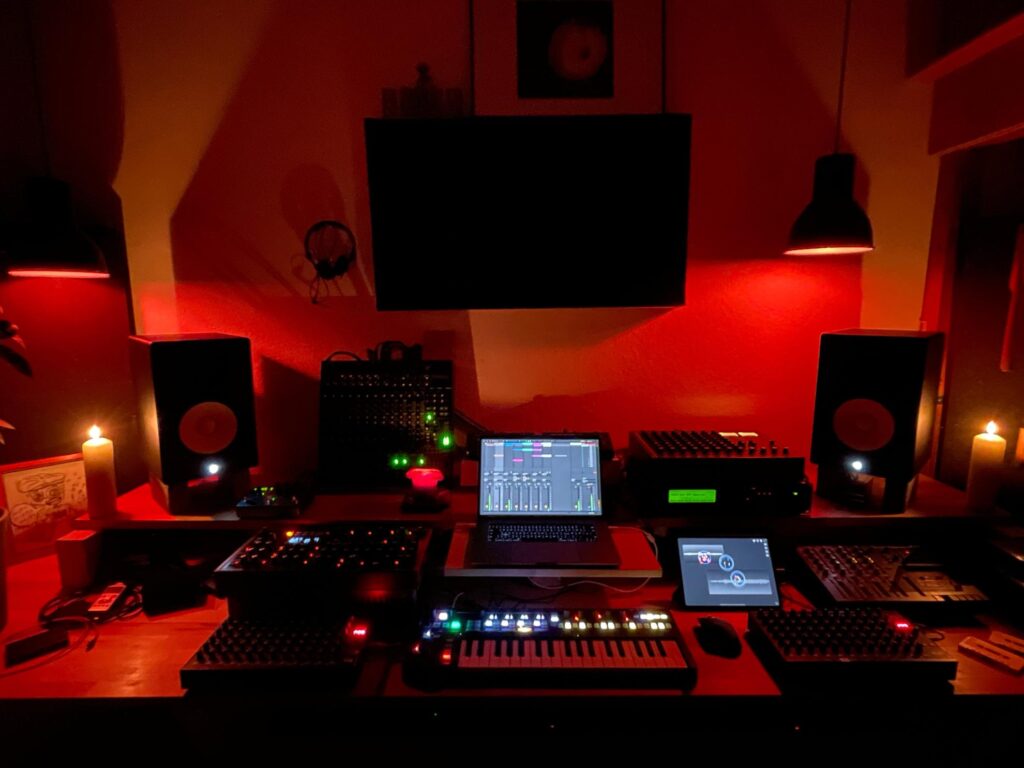
Are you planning on DJing at any point, or are you focusing more on a live set? If you are playing live, do you actually create material on the fly in your sets, or is it more a combination of stems and effects?
I love to DJ and play sets that make people move in an elegant way! I love to create new tracks on the fly with “tooly” music as well as samples and loops from my own library. I always give a more personal character to my sets with this. I feel my best DJ sets are the ones where I surprise myself with those ideas and loops. I’m a fan of the fast BPMs when it comes to Techno, ruff or deep, I can handle it both ways. I’ve learned to use an EQ as an instrument more than just a parameter to bring in and out... The whispering side of DJing came to me while playing on sound systems that were too pushy, so I always felt to play the EQ around 10 or 11 o'clock to make tracks sound smoother and softer even though they weren’t... Giving the 12 o'clock EQ, the original parameter, became something rare in my warm up sets. About live sets, I've played a few in the last couple of years. It’s something special for me and not standard. I like to keep that part as pure as possible. It’s improvisation for me when I’m playing live, I wouldn’t want to know what there would be 5 minutes later, that’s my vision of a live set. Let’s see when the next one will be ready to be explored.
We usually ask producers to tell us a few of their favorite tracks or albums, music that they would like readers to hear. Would you show us some of your favorites?
My 5 favourite albums of all time are:
- Deepchord - Ultraviolet Music
- Sebastian Mullaert & Eitan Reiter - Reflections of Nothingness
- Biosphere – Substrata
- Aphex Twin - Selected Ambient Works II
- Chi - The Original Recordings
Technokunst asks: Volster
Hey Marko, thank you so much for talking to us!
I would like to go back in time a bit and ask about your past. Your path on Techno music seems to be really interesting, given that you are from Croatia, where - similarly to Hungary, the scene was not always a given.
How did you end up listening to Techno and what are some of the initial influences that shaped your taste in music?
My first introduction to Techno music happened way back in 1999. It was through a local event organized by one of the beat DJs and promoters from Osijek, DJ Sly. And as a matter of fact, underground subculture of every kind at that time had quite a support from the city officials and this event was no exception. So, through my high-school teacher that also was my drama class teacher I managed to get tickets for the event as we did a lot of performances for city council too. So that was a very interesting way of getting into techno music I always thought. That drama class really paid off, haha.
When did you start DJing and producing? Have you had any help in the process? What are your preferences while playing? A more intimate club setting, or larger venues and festivals?
Not long after just attending events, someone from my friends got some turntables and couple of house records. So, we kinda mixed with those for a while until I got couple of techno records bought for me from Vienna I think. Some friend of a friend went there regularly for shopping and so I put up some $ upfront and asked to get something good. I didn’t know what I’m going to get and it was a pure luck to get Oliver Ho – Mutate and Survive and couple of Primeval records. It was all very naïve, almost ignorant but very fun.
After that I mostly started playing in clubs, few open airs but not much of the festivals at first, mainly because they weren’t so predominant in my area at those times. So that shaped me mainly as a club dj and I will always be faithful to the club dancefloor.
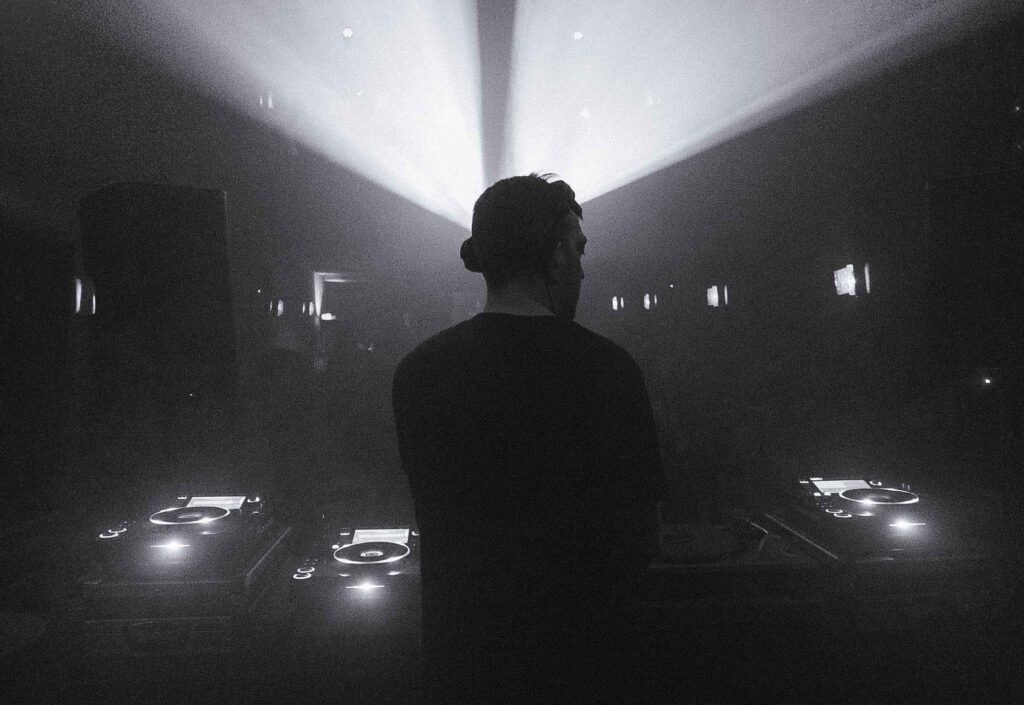
You have not only been producing, but also promoting. You have your own series “Traum” you were running together with your colleagues in your hometown, Osijek.
How did you end up promoting, and what are some of the hardships you’ve had to live through while doing the events?
The idea of promoting came just from necessity. We wanted to do things we enjoyed while visiting many European cities, mainly Berlin, over the years. So, we premiered over the years a lot of underground artists from Paula Temple, DJ Deep, Etapp Kyle, Antigone, Amotik, Lewis Fautzi, Anthony Linell etc... It wasn’t easy at first but eventually we got the trust from the audience. Unfortunately, Covid - like everywhere, made unrepairable damages and most things seem like they are one square one. Just like with TRAUM series, at the moment it’s on a hiatus and who knows if it’s ever gonna be back and in what form.
It seems that the recent resurge of the ‘90s trance sound has not made a mark on your output. What do you think about the global state of affairs of Techno at the moment?
Well funny thing is that first event I attended was named something like Techno vs Trance, so I was exposed to that Trance sound at the start and I kinda get why it’s getting popular again. It’s an easy way in for people to get into electronic music and partying in general. It’s all very cyclical and best music is always made and listened in those mid points, in those small windows when things are just about to blow up and before it gets so popularised that you need all sorts of gimmicks to get more and more people into this machine that is supposed to be underground electronic music.
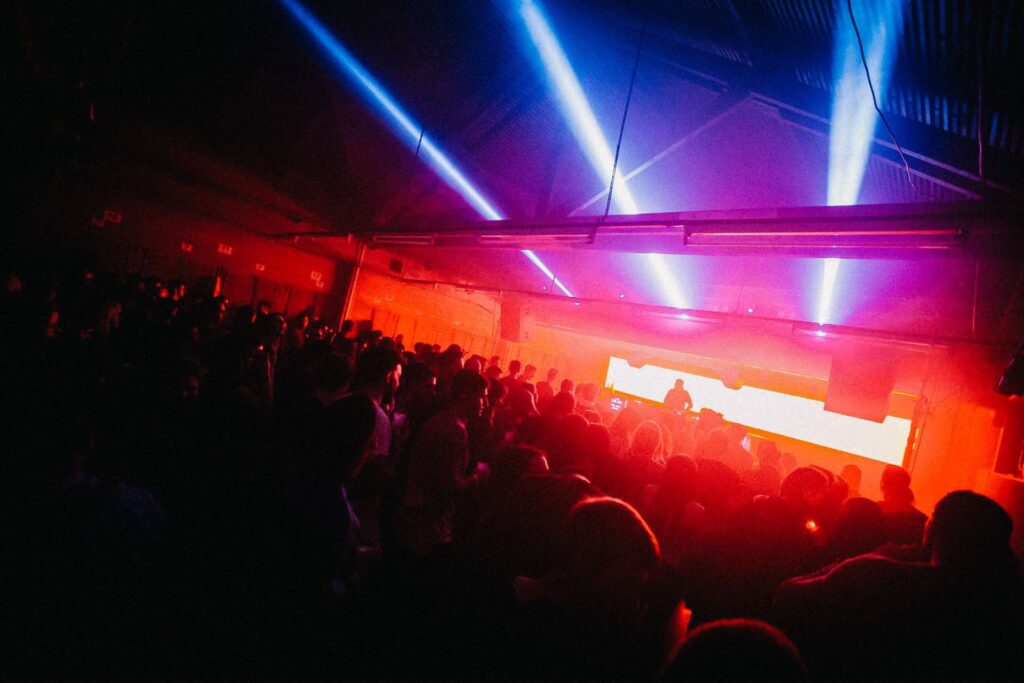
Let’s talk about your label, Secession. You seem to be really active with it on Bandcamp. At the same time, you have already released three 12” vinyl EPs. What is the thought behind the aesthetic of the label and what are your plans with it? Having your own label means you get to curate your output. Do you have a strict direction in mind? How about the other label you were affiliated with - Out Of Place?
Out Of Place is the first label I started with my ex-partner Insolate that I’m not a part of anymore for a lot of reasons. Simultaneously, I started Secession records to push myself into the direction I wanted. Collaboration is nice but you really learn a lot about yourself when you are the only one behind the driving wheel. Secession in its name already had the term withdrawal from a larger entity and it also represents an art movement closely related to Art Nouveau that is very prevalent in my hometown Osijek where I grew up. So, this was a very natural and easy choice for me especially in terms of aesthetics since all the visuals are coming directly from my hometown.
In terms of music and medium, Secession started as a vinyl & digital label but with the steady rise of vinyl releasing labels and stagnation or even a decline in number of pressing plants, the time to press a record went out of control. So, last couple of releases on Secession went as digital only and to be honest they made as much, or even better, impact as their vinyl counterpart. It probably has to do with the way I’m handling those, the same I would treat a vinyl release. High standards and a quality curation. Not only for myself but for the artist themselves. I want to release good music for the artist itself just as much as I want it for the label.
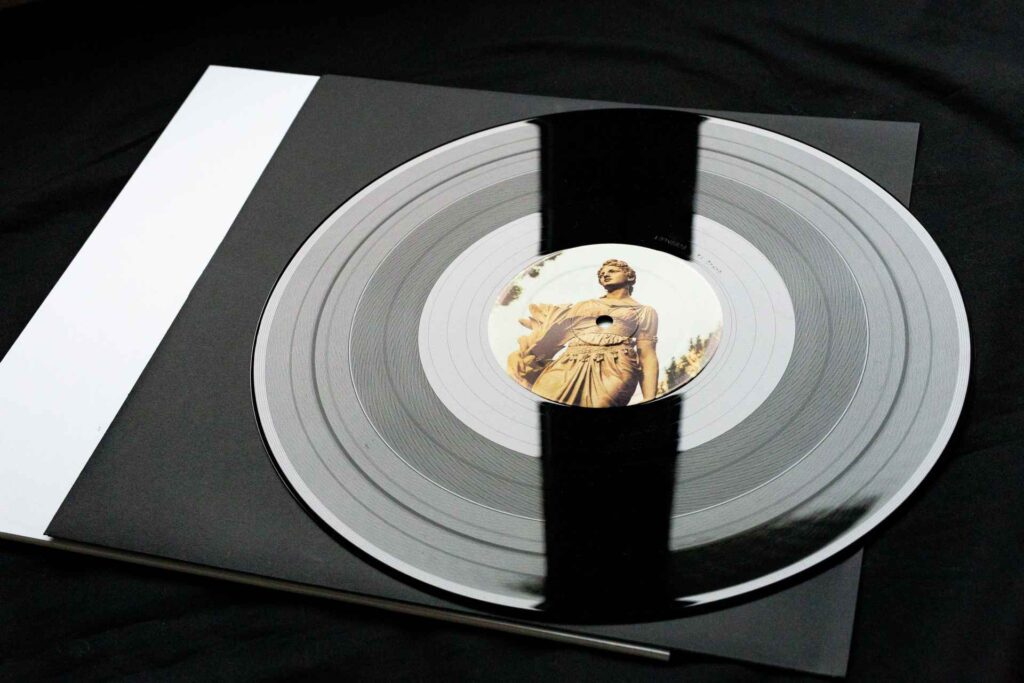
We at Technokunst have a strong focus on vinyl as a carrying medium for music. We are also glad to see that you keep pushing vinyl releases. What are your thoughts on vinyl as media and how do you see the future of releasing records? This is especially interesting now that digital distribution seems “easy” while we hear vinyl releases may end up getting delayed on multiple stages of the process and by as much as 6 months.
Of course, but I’m a firm believer in logic and if keeping certain medium delays everything and actually has more cons than pros I will back off from it for a while until it starts to make more sense. Nothing in my life was chosen based on what’s easier… quite on the contrary, rather what is more logical at the moment. So, vinyl will still play a big part in Secession but in a way that has more sense and there is a plan for the next 12” ready to be executed.
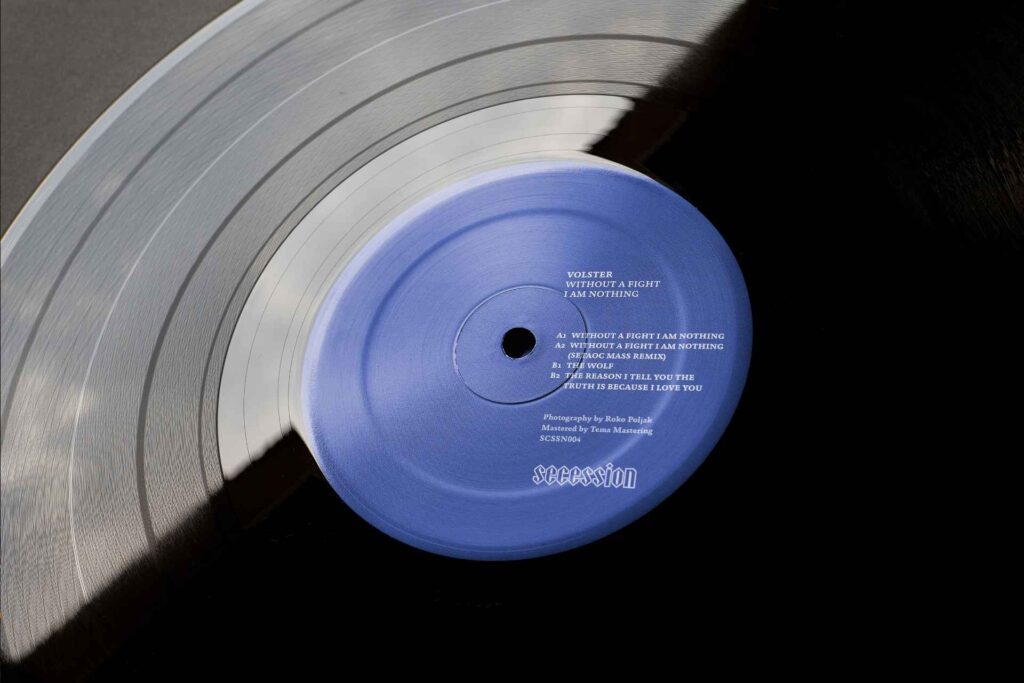
What is your method of production? Do you use a mixture of analogue and digital or instead focus on either of them? How does your workflow look like? Care to share a few photos of your studio and favourite gear?
It started primarily as digital only but then it evolved into a mixture of digital and analogue with couple of rhythm machines, synths and pedals. But lately due to different reasons I found myself doing almost everything in DAW. I just went into this rabbit hole of plugins that are fantastic at the moment and this is where I feel comfortable now. Elektron still plays a part of it, with Digitakt as my main rhythm machine.
What is in focus for the Volster project right now? Promotion, production, or playing?
I always did a lot of things at once which worked ok but now, I’m planning to get in the studio more and dedicate my focus there.
Can you share some of your favourite music – current or past, that you wish readers of this
interview heard?
I listen a lot of different kind of music and there may be days without me listening to anything Techno related. The last thing that I’m in awe of and that I regularly play in my car is the new Kendrick Lamar album, which is so honest and truthful that is very inspiring to me. Also, you can check out my Home Selection playlist for Oecus on Spotify to get a feel of what I usually listen to.
Technokunst asks: Orbe
Hey Fernando, thank you for accepting our interview request! Technokunst is a collective of artists
who embrace events with the tradition of vinyl dj-ing as well as of modular live sets. Orbe as a project
therefore has been on our radar for some time now - we really resonate with the work you’ve been
putting out.
Can you tell us a little bit about your background and how you met with techno? What are
some of the initial influences that shaped your sound? Is there anyone out there that helped
you grow and learn, or did you pick it up all by yourself?
It is my pleasure to participate in your project, thank you! I was born in a town called Algeciras in
southern Spain, in the Andalusia region. I started listening to electronic music through my older
brother, mostly Breakbeat and Drum & Bass.
When I moved to Seville to study audio engineering, I met a guy called David – still a good friend to
this day - who was the one who led me into Techno music for the first time. When he showed me a
Richie Hawtin set, I was blown away.
Later I continued my sound engineering studies in Madrid, and met Ruben De Felipe and Eduardo De
La Calle, who both greatly influenced the type of sound that represents me today. They would always
bring home new music from Drexciya, Juan Atkins, Jeff Mills, and then I would lock myself in the
studio influenced by all those sounds that were new to me.
The Iberian techno scene has been at a constant high point for some time (at least until covid hit)
How is your connection to your fellow Spaniard and Portuguese producers?
The relationship has always been good and healthy. In Madrid, - where I live now - there are fantastic
producers with good record labels that bring very positive things to the Techno scene. We are all
good friends with Ocktawian, Tadeo or Psyk, and we share projects.
The same thing stands with Portugal. They are humble people, wanting to work toward contributing
positive things to the scene. I would mention the guys from Hayes Collective, Pedro Rebelo 'Ruuar'
or Gustavo, the promoter of Neopop.
photo credit: Pablo Gallardo
Some of your fellow producers from the Spanish scene left their homebase and moved to Berlin
(Refracted and P.E.A.R.L. to name two of them). Have you remained in Spain and do you have
any plans to move around?
I love Spain and I don't want to move abroad :)
How do you feel about the current state of affairs in the world of techno? It seems that the 90s
has made a comeback and lots of labels shift their sound towards higher bpm to accommodate this.
Yet we can see hear that the tempo of your releases has remained in the lower 130s.
I don't think justice is done to artists who work well in the studio, who make good music, who have
good labels that bring positive things to the scene. Basically, an unresolved imbalance exists. Some
with very little input achieve a lot, and others, with a lot of work, achieve little. It is clear that the
industry evolves, the networks, the image ... okay, I respect it, I understand it and accept it, but I
believe that there are certain values and pillars that should not be ignored. The industry has to evolve
from a basis that in my opinion is immovable.
Regarding the BPM, I think it is a trend that will soon end and it will go down again, and then it will go
up again, it is a continuous cycle.
With the release of Transhuman EP on TOKEN, it caught our eye that you were referencing the work
of Fereidoun M. Esfandiary - a transhumanist philosopher. Does futurology interest you as an
intellectual movement or is this more of a stylistic choice that complements techno well?
I have always been attracted to the afterlife, and to the thought of what the future may bring in terms
of technological and other advancement. For me, Techno and modular electronics are a way of
contacting the future, the avant-garde. The EP on Token Records is called 'Transhuman' for this
reason.
Token 102
We see that Orbe Records is mostly a means to release your own music with full creative control, but
we also see some guest appearances - such as Spanish techno veteran Eduardo De La Calle. How
did you arrive to the decision to start your self-titled label, and how do you curate the output
of Orbe Records?
After many years of making music and maturing my sound, I was confident enough to launch my own
label with my own concept. I tried going this way to be able to develop a catalogue without an A&R
assessing what was good and what wasn’t. It was a little over 6 years ago that I launched it as a vinyl-
only label. This is a concept I ultimately decided to change in 2019, since there were almost no
Techno DJs left that played vinyl. I apologize to the followers of the label but I had no other choice to
keep things going.
I am already preparing the next release, number 012, but all pressing plants have waiting lists until
next summer... :(
Your most recent release on Orbe Records – “Psy Visionary” was released as a lengthy LP on a span
of 4 x 12” vinyl records. This is becoming increasingly rare and seems like a bold move. Can you tell
us a little bit about this album and how you see the market for further releases like this? Do
you see this as a concept album like “Interplant” or more of a collection of tracks that describe
your type of sound well?
The idea of releasing this record came during lockdown. I took some machines home and it all went
from there, I made a lot of music that I knew had to see the light of day. It is rare to see a 4x12 album
in the current market, - it is very risky - but perhaps this encouraged me to do it even more. It was a
way to differentiate myself from others. The concept is different from 'Interplant'; in that 'Psy
Visionary'; is more focused on the dancefloor, all written and created using modular synthesis.
How does your production setup look like? Do you prefer using software, hardware, or a
combination of both? Can you show us your studio and your favourite tools for production?
In the studio I do everything hardware-based during sound creation and recording. Once recorded in
the multitrack, I can use dynamics plugins for correction, be it an EQ or an exciter.
My favorite tool is modular synthesis. I also love sampling my own sounds, and do so either with the
Digitakt or the Morphagene synth module, by sending any sound from the mixer through an auxiliary
group output. I love using the Bark Filter Processor by Verbos Electronics and also the Elektron
Monomachine synthesizer. I also use an old harmonizer DSP, the Eventide H3000.
As for gigs, what is your preference, performing live or through dj-sets? More intimate clubs, or
larger venues such as festivals?
I prefer live performances on big festivals and DJ sets in a more intimate club setting.
What is next in focus for the Orbe project? More gigs or more production?
Always both. To have gigs it is necessary to make records. :)
Can you share some of your favourite music – current or past, that you wish readers of this
interview heard?
In would choose Boards of Canada or Brian Eno, music always to relax to.
Technokunst asks: Desroi
Hello Frederic, thank you for this interview with Technokunst!
Hey Marton, thanks for the interview and your interest in me and my music!
How did you career with techno start and what are some of the influences that shaped you as
an artist?
I get this question in almost every interview hehe.. but I guess that just happened very naturally. When I got to that age where I started going out, Techno and Clubmusic caught my attention more than anything else. Since I was into music ever since (I played guitar in a Rock band before) it wasn’t long before I started buying synths and took my first steps into techno music.
You have studied composition at the Folkwang University of Arts. How do you incorporate the curriculum in your daily production methods?
Having a deep and profound understanding about synthesis, music theory and production for sure helps me with all of my work I’m doing.

How does your production setup look like? Do you prefer using software, hardware, or a combination of both? Can you show us your studio?
Usually a good mixture of both is my way to go. I use loads of hardware as I use lots of digital stuff and plugins as well. I wouldn’t want to be restricted to only one of them.

How did the idea come to set up your own label? How do you decide what to release on established labels such as Avian - and your eponymous label?
Setting up my own label was THE way to put out music quickly and whenever I want. Without being depended on anyone else.
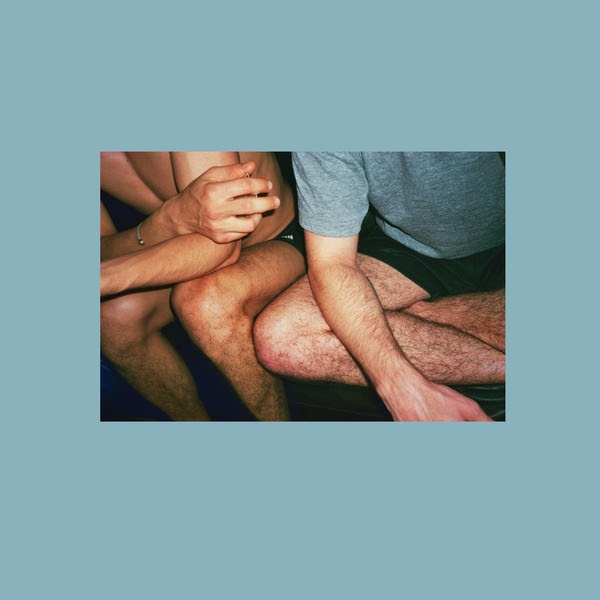
Technokunst strongly focuses on vinyl as a carrying medium for dance music. We are glad to see that you keep pushing vinyl releases. What are your thoughts on vinyl as media and how do you see the future of releasing records?
For me personally vinyl is still important, as it ever was. At least within the genuine techno scene. Honestly I lost hope in vinyl sales recently, but then my last record “Vermillion Border” sold out in only 4 weeks which gave me new confidence to continue vinyl releases. To date I haven’t put out any EP or album that was digital only, and I won’t.
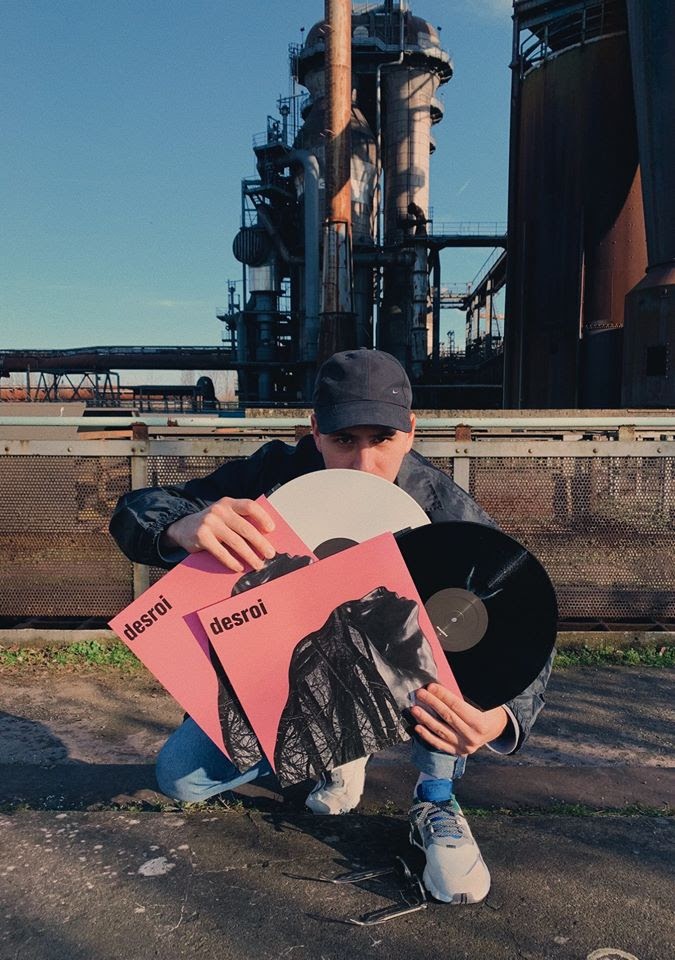
Looking at your Label’s artworks, it seems you have a keen interest in physical artforms, such as sculpture. Many labels tend to release vinyl with blank sleeves. How have you approached the visual aspect of a record release?
Well when I go record shopping, the first thing that I’ll notice when I go through a bunch of new and unknown records is their cover/artwork. Thus it was clear for me that I want something more appealing than just a plain black/white sleeve. That also correlates with my big interest in graphic art.
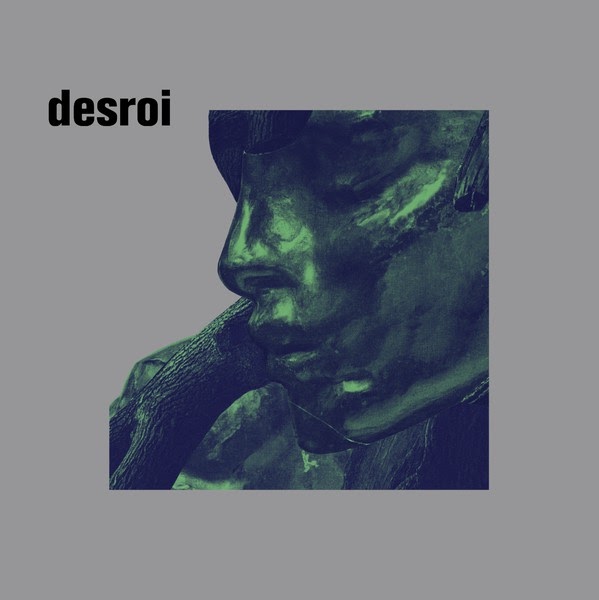
In parallel to this interview, you have also recorded a podcast for us. What decisions did you make with regards to the tracks and arrangement?
When I record a new mix to be streamed online, I usually select tracks that I wouldn’t necessarily play out in a club. Most people will listen to it at their homes, or travelling. So I want to create something to take one onto a nice journey.
How do you feel about the ongoing CoVid crisis and what do you think about its long-term effects on club culture?
To be frank, I have no clue. It could be anything. At least I hope that the techno scene will become more club focused again and less festival focused. But I don’t see that happening. Most lineups from this year will simply be postponed to summer 2021 and things will probably just go on as they’ve stopped. But I might be mistaken (hopefully haha).
Could you please tell us 3 tracks that you've recently added to your set and like to play?
Pascal FEOS - Omychron
Reeko - Street Tool #2
Fatal - Indoleent
Technokunst Podcast 197
